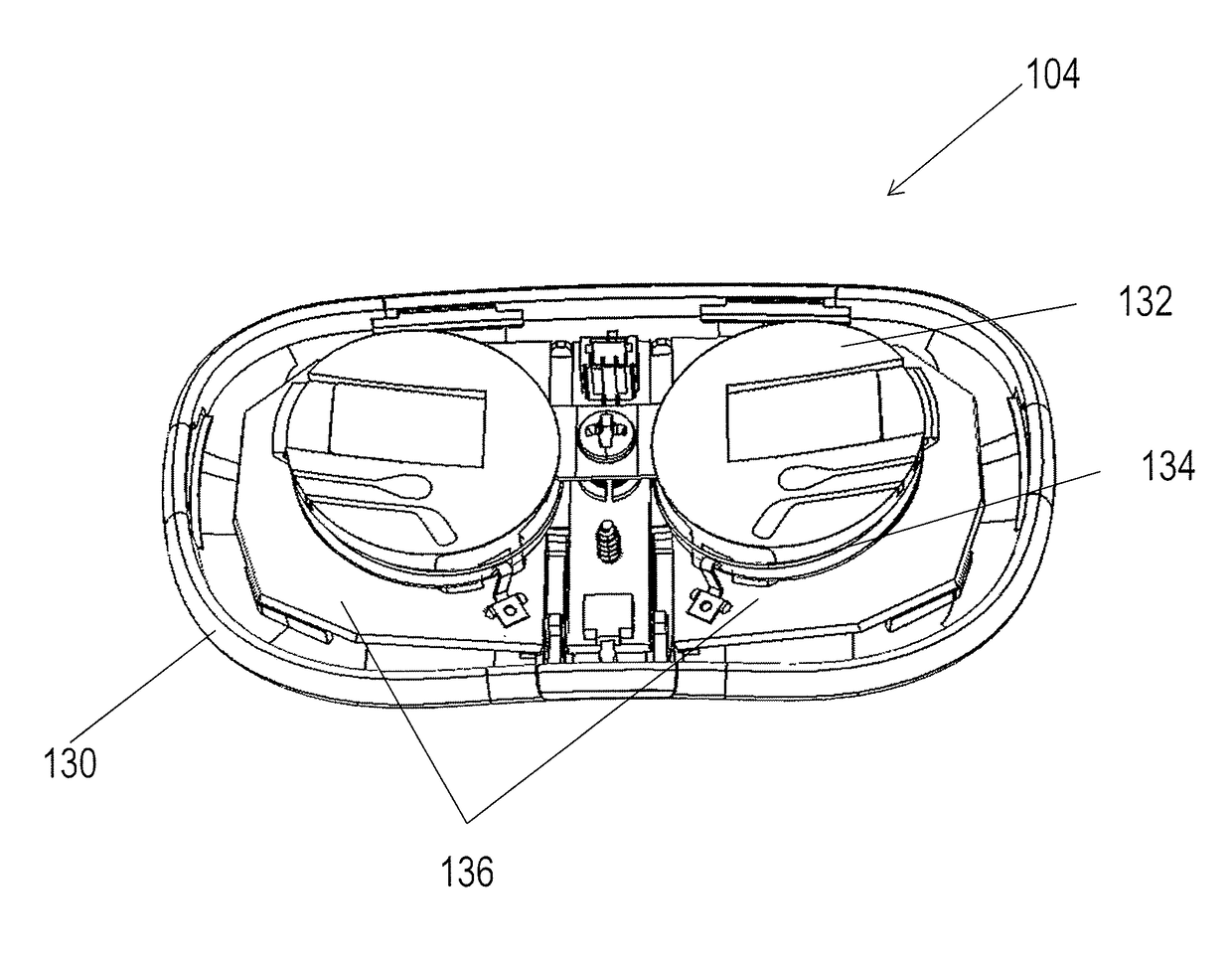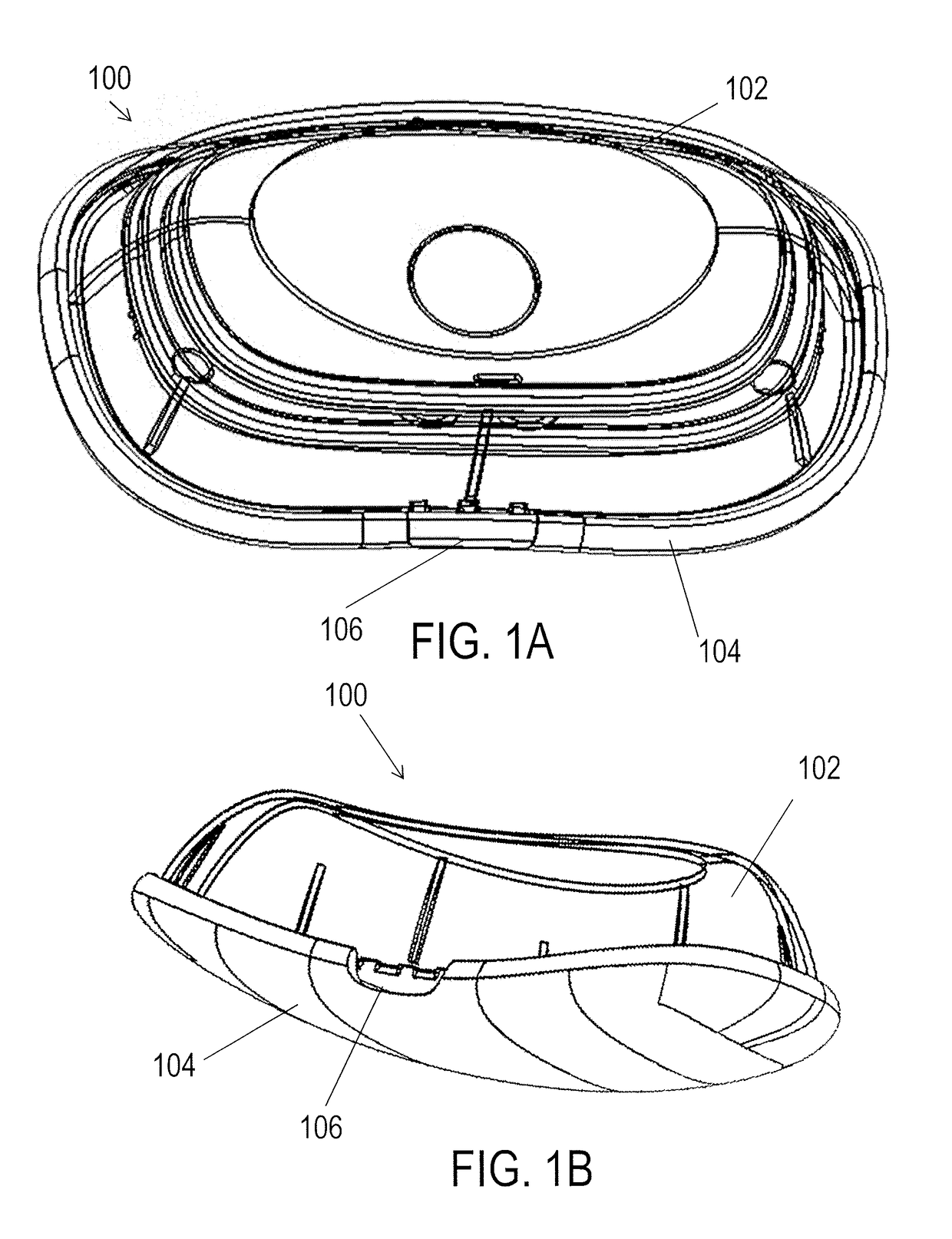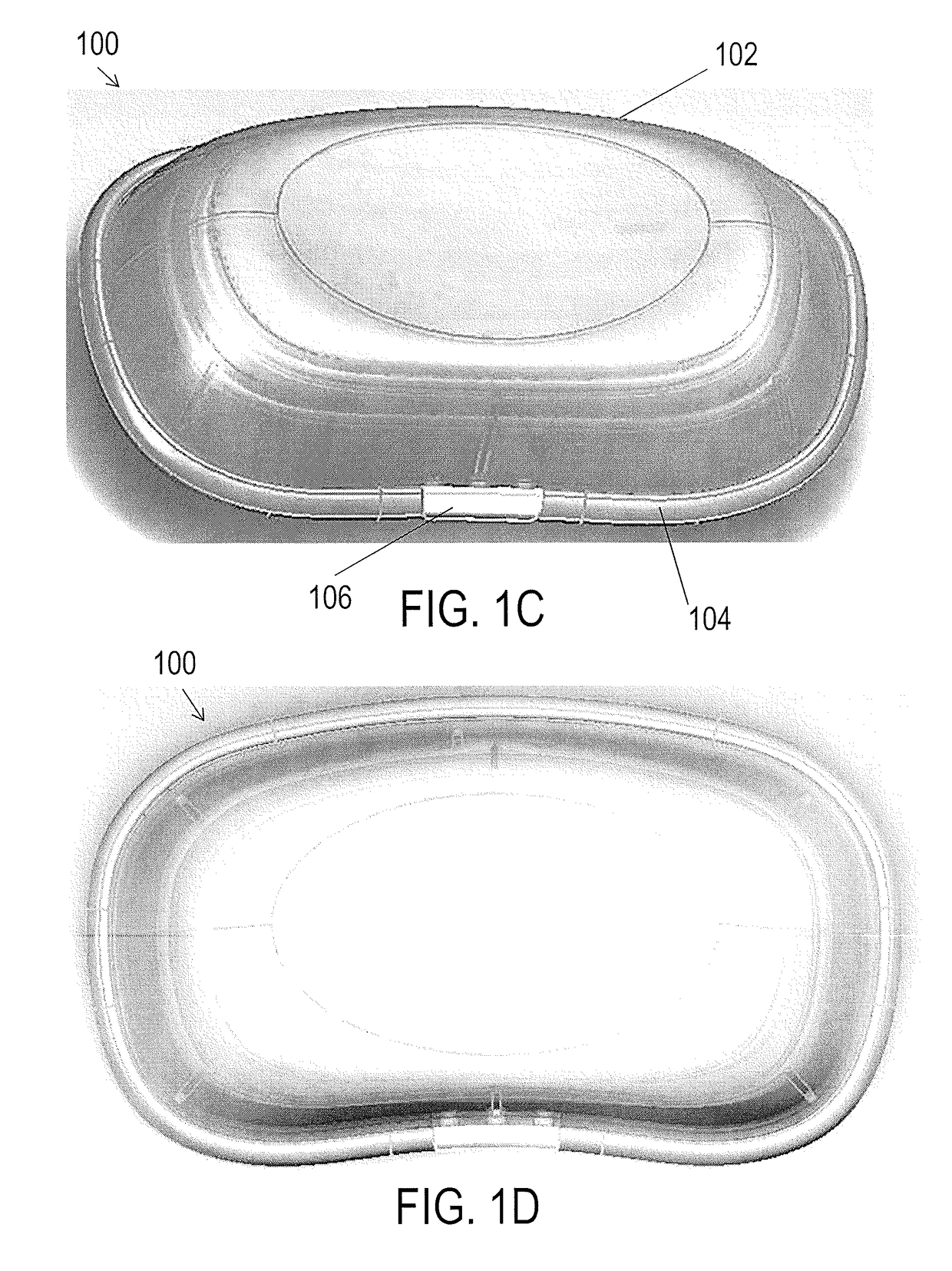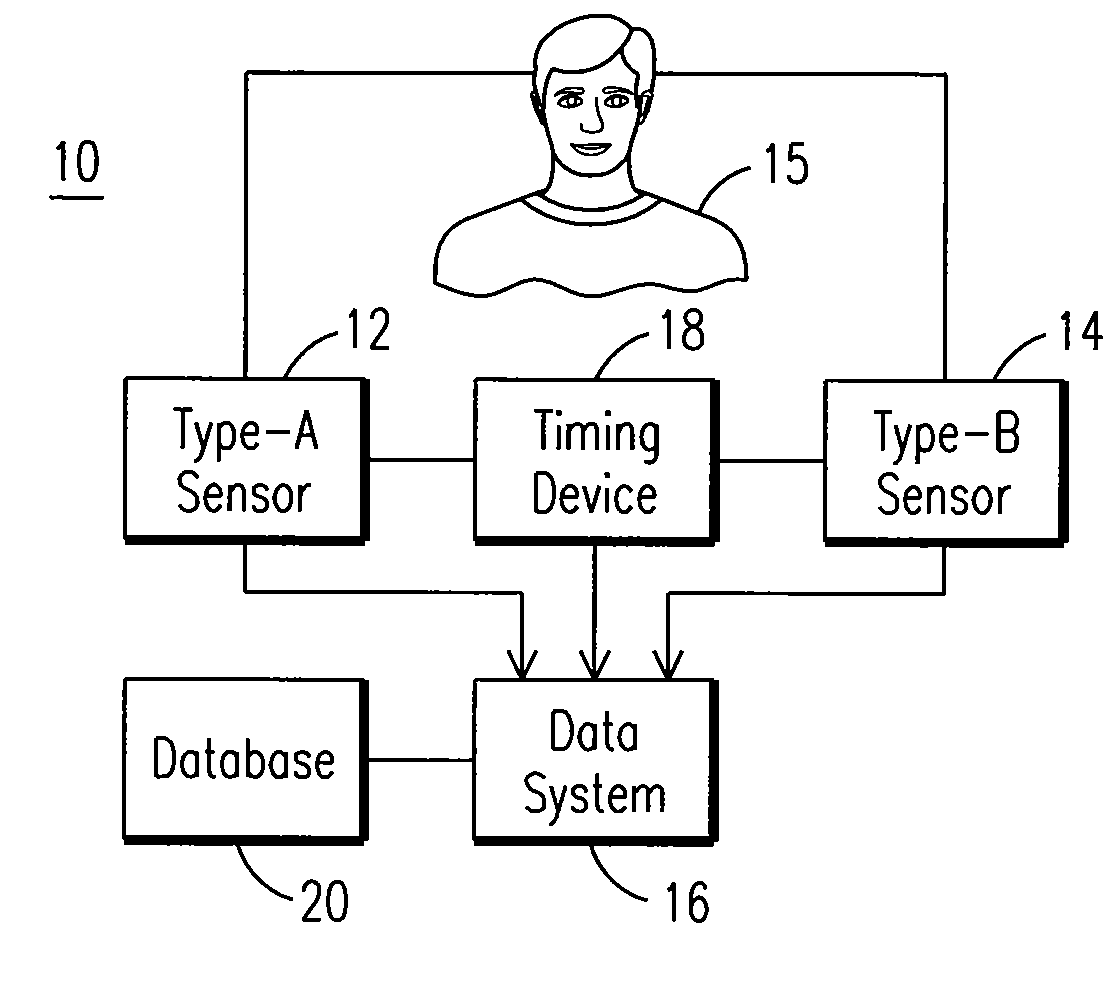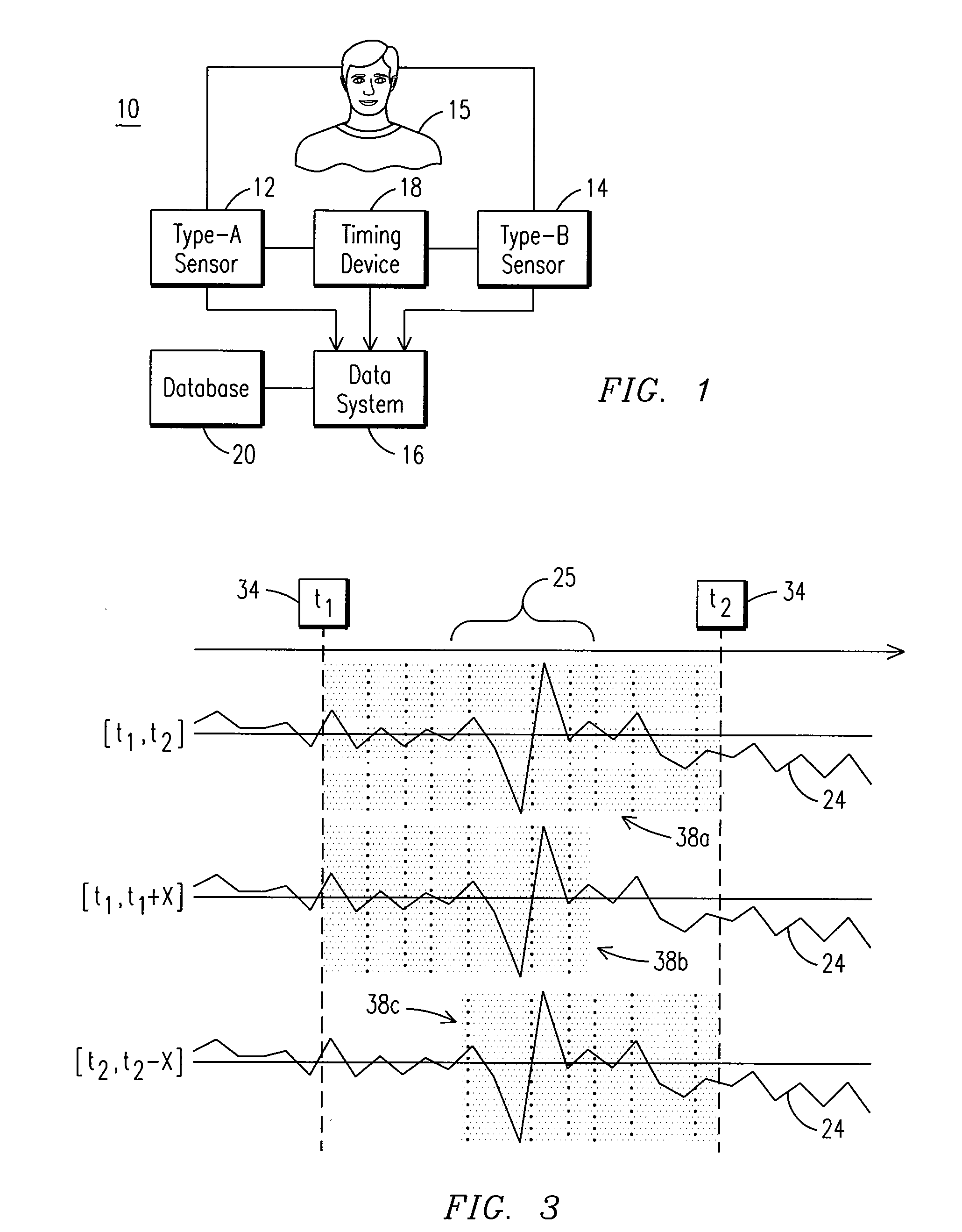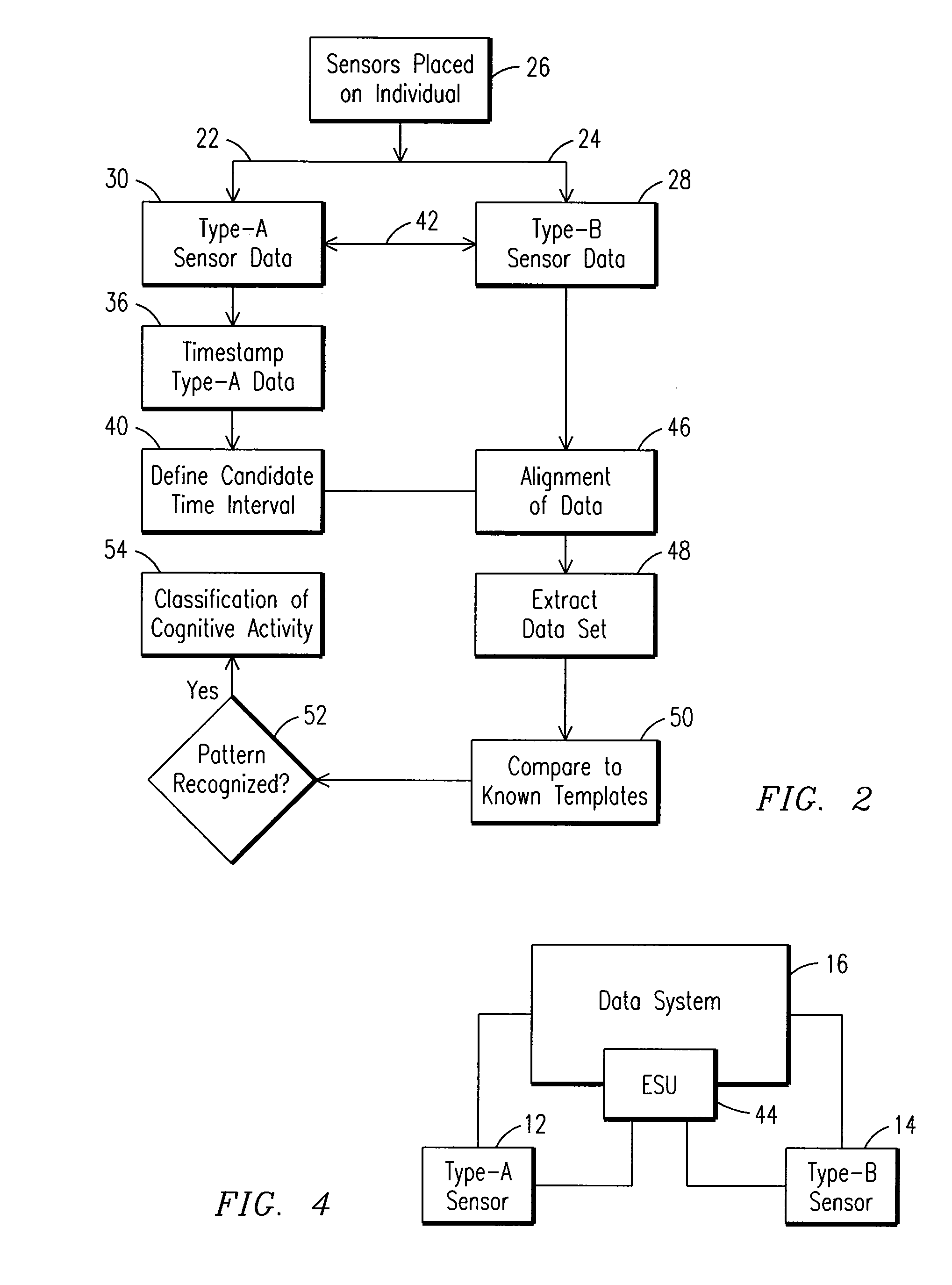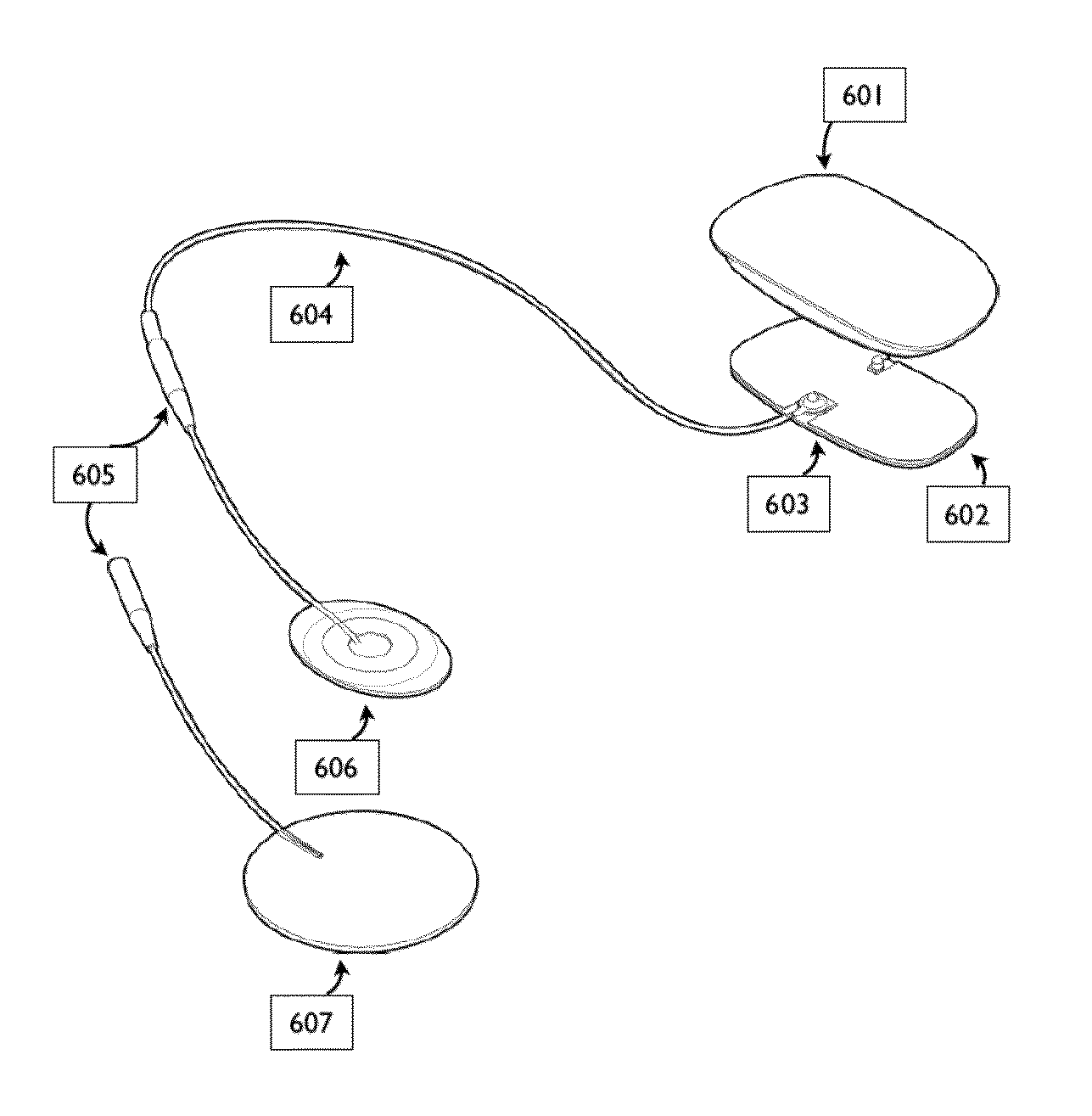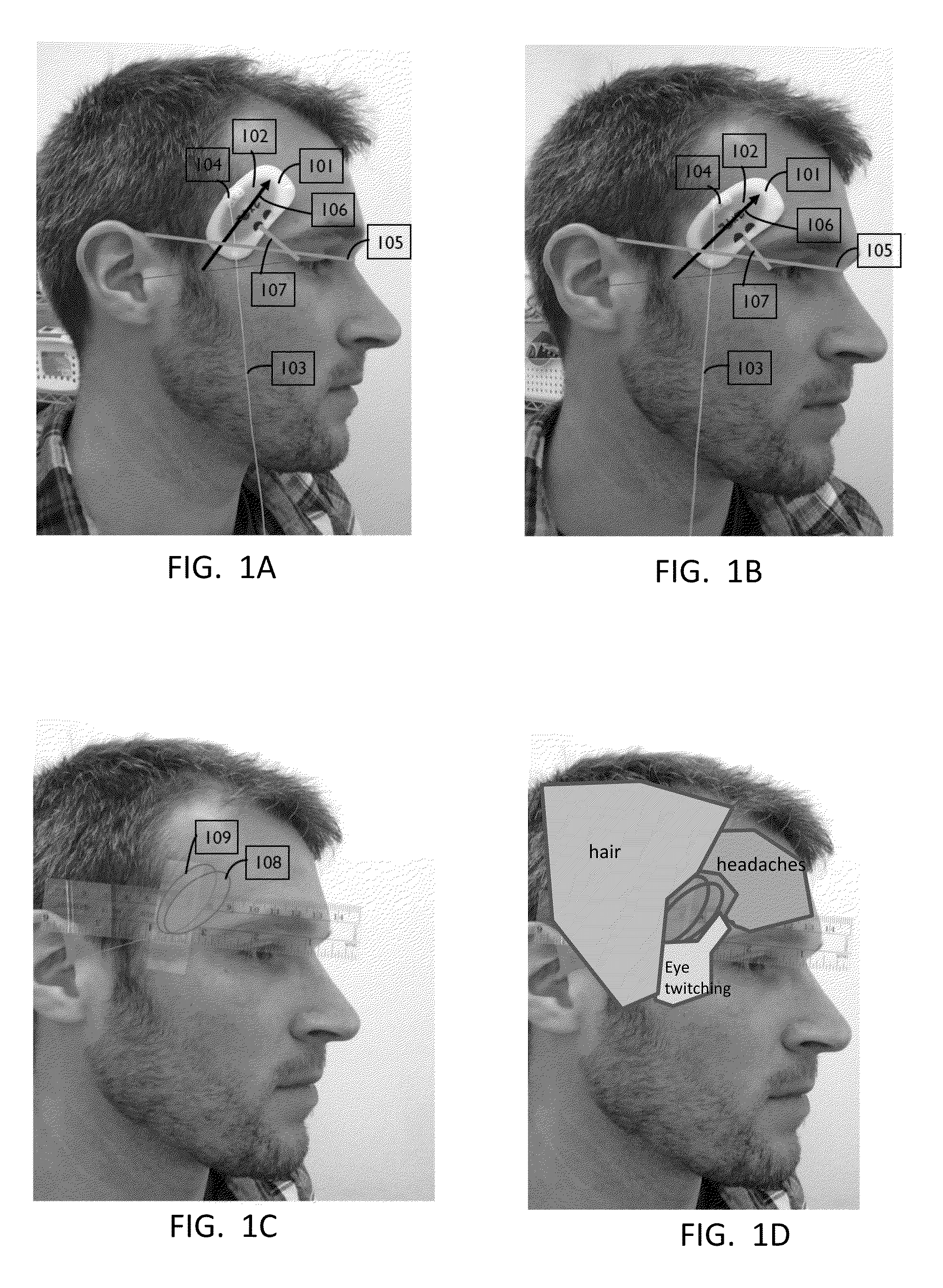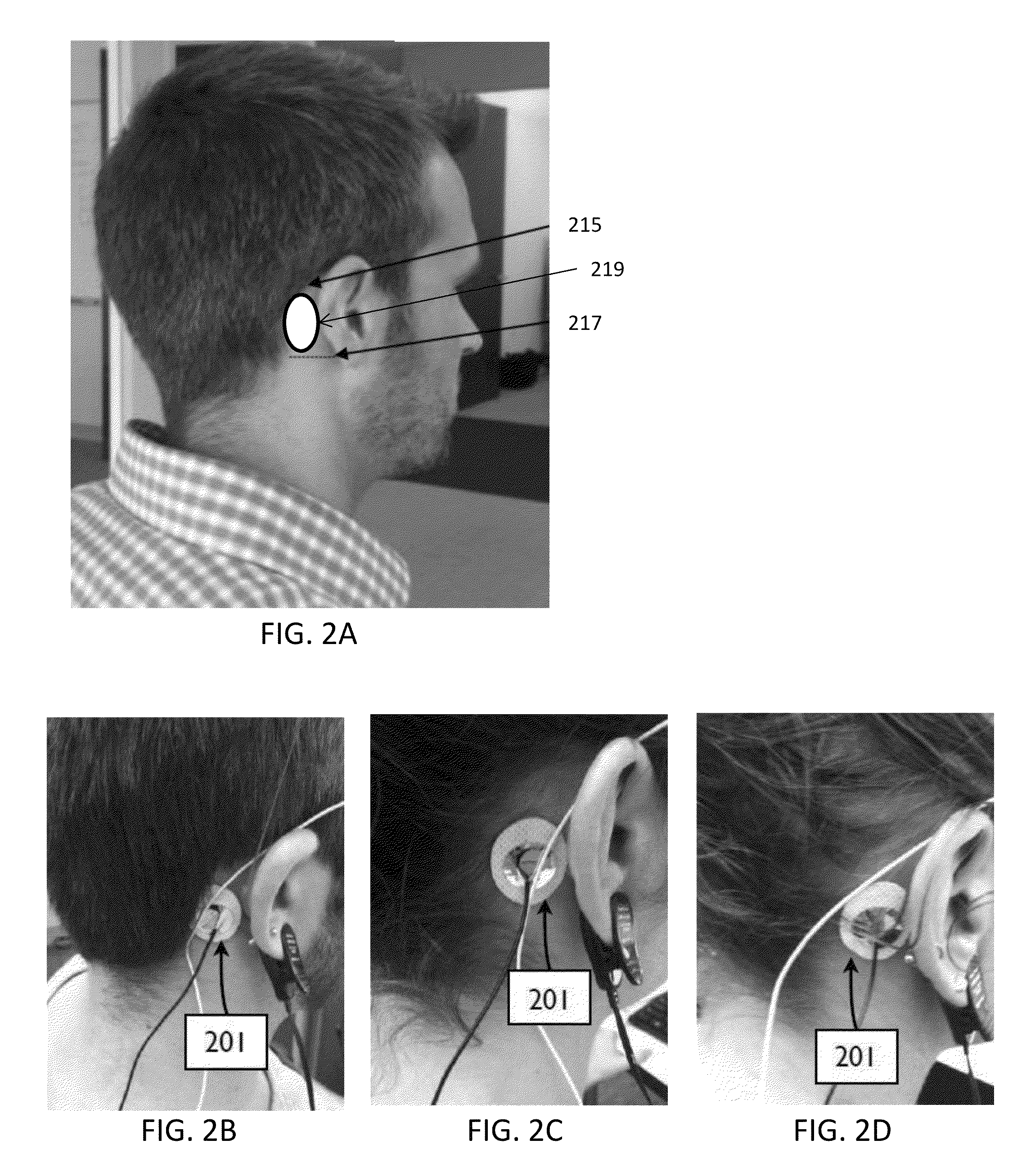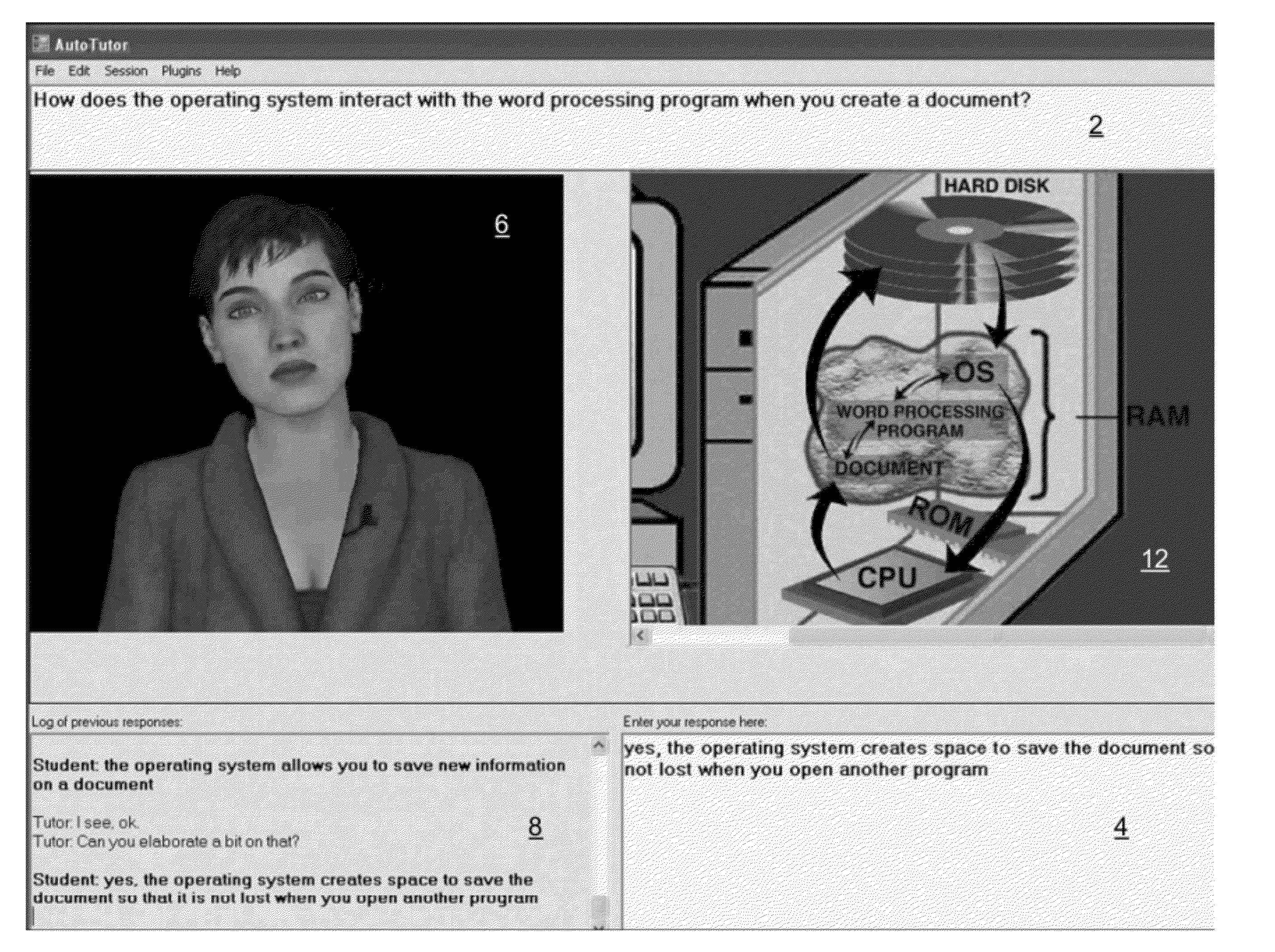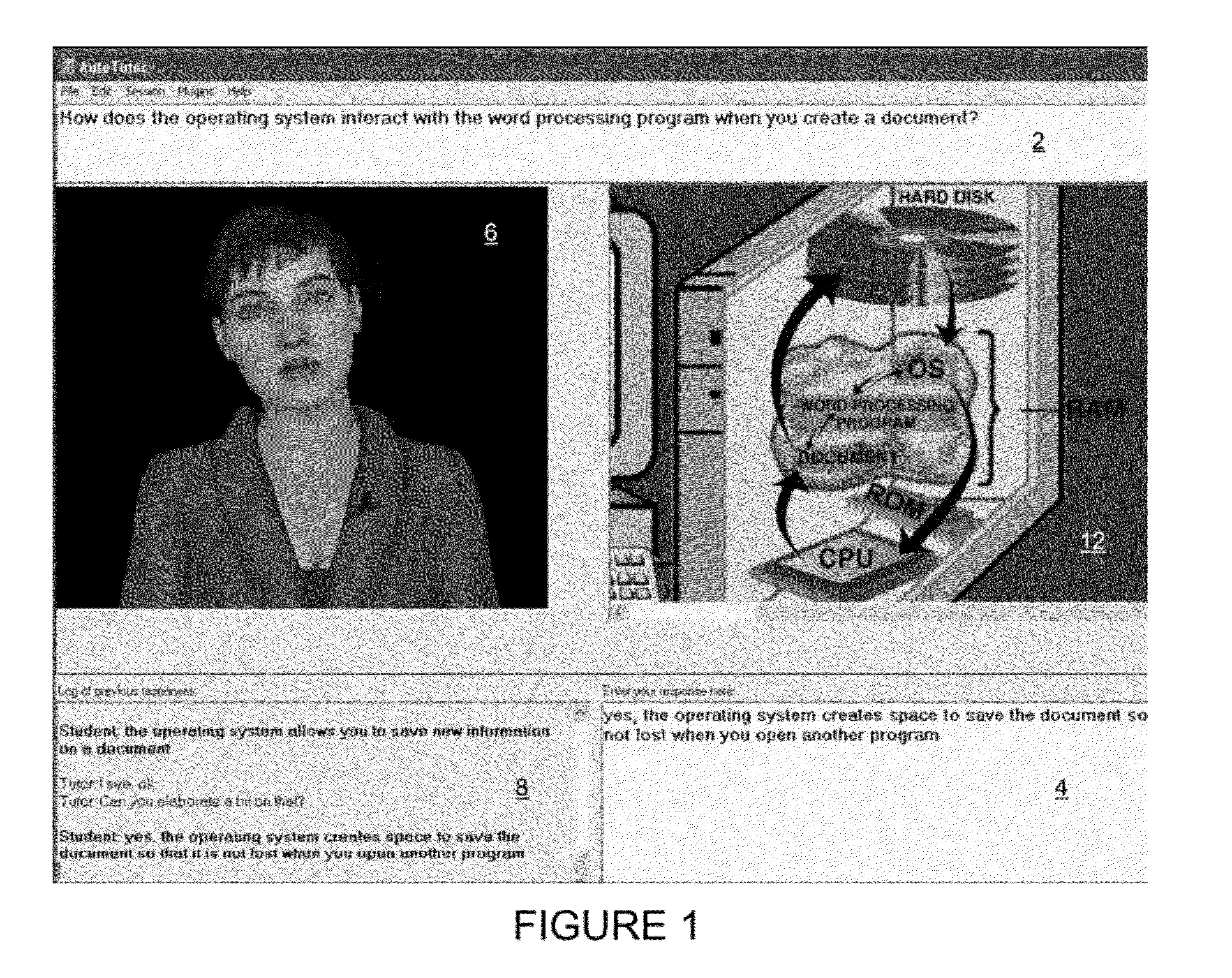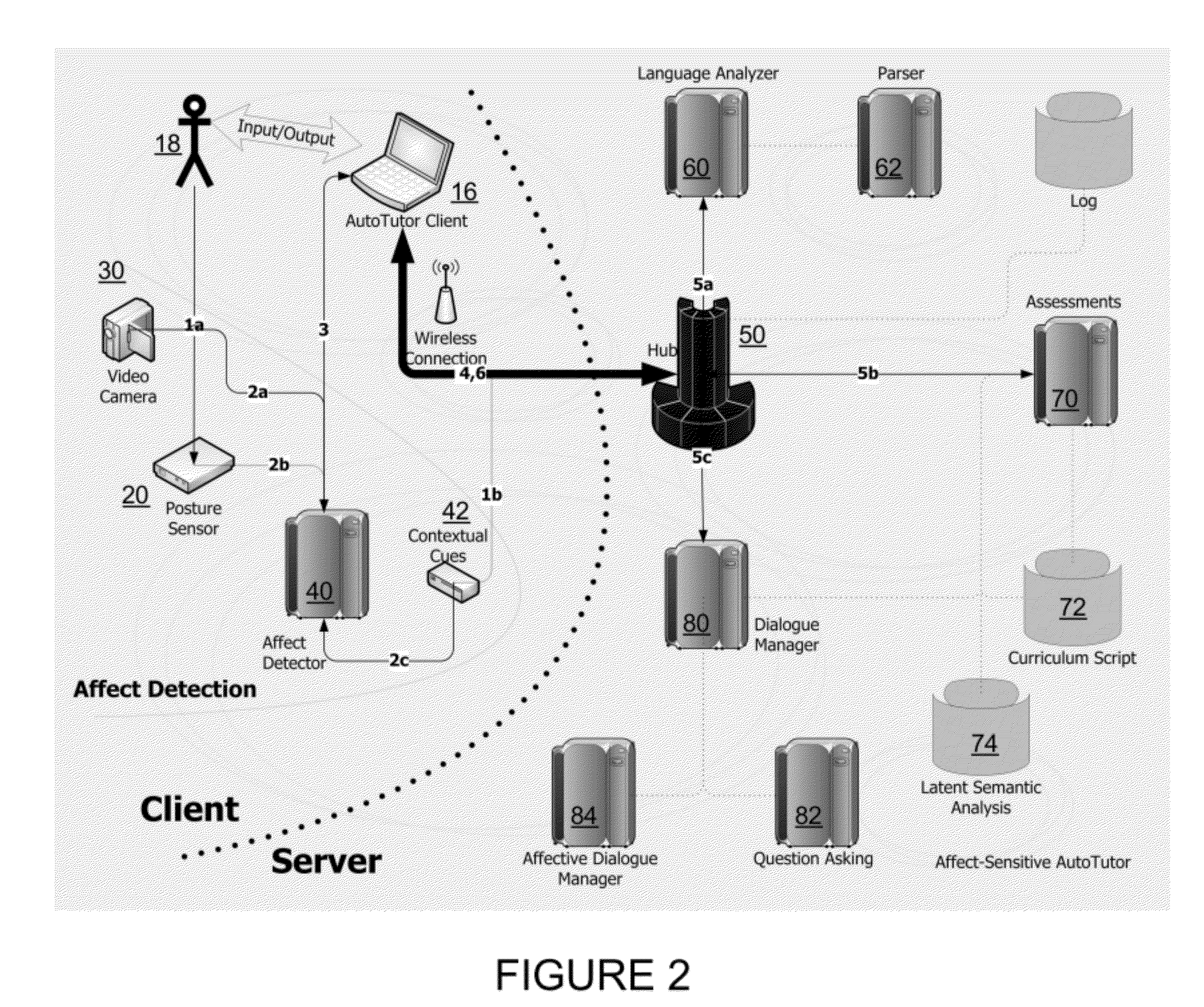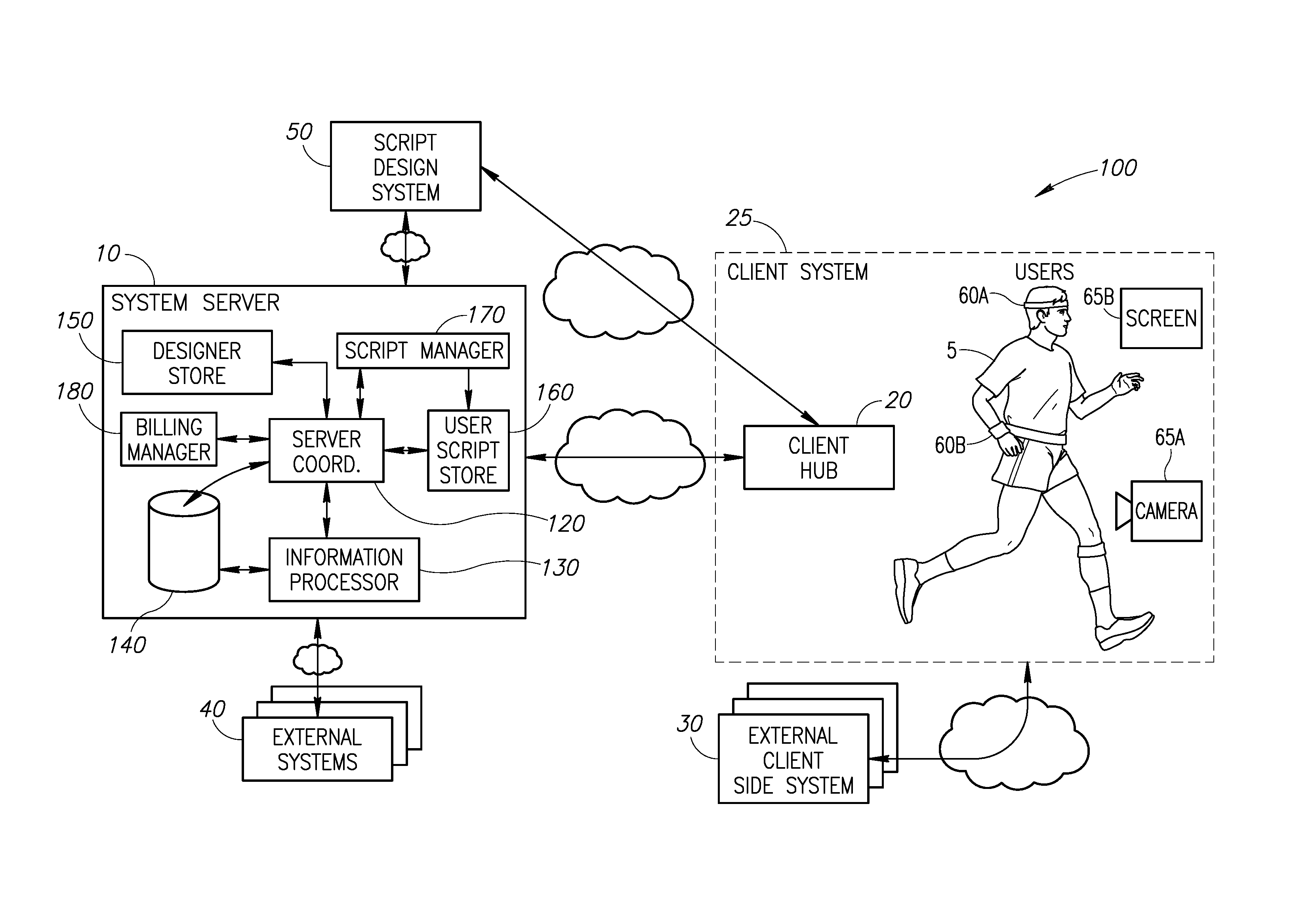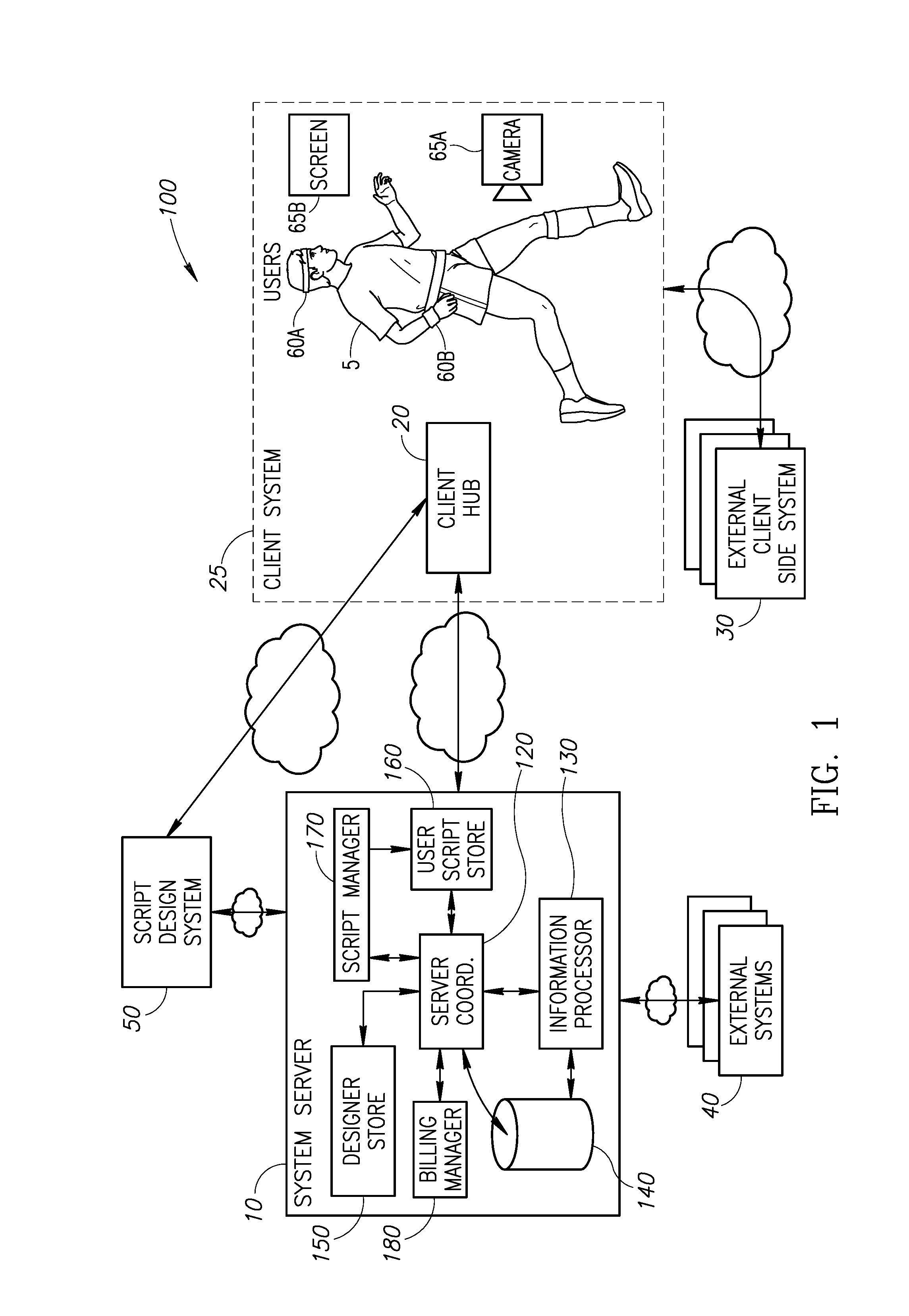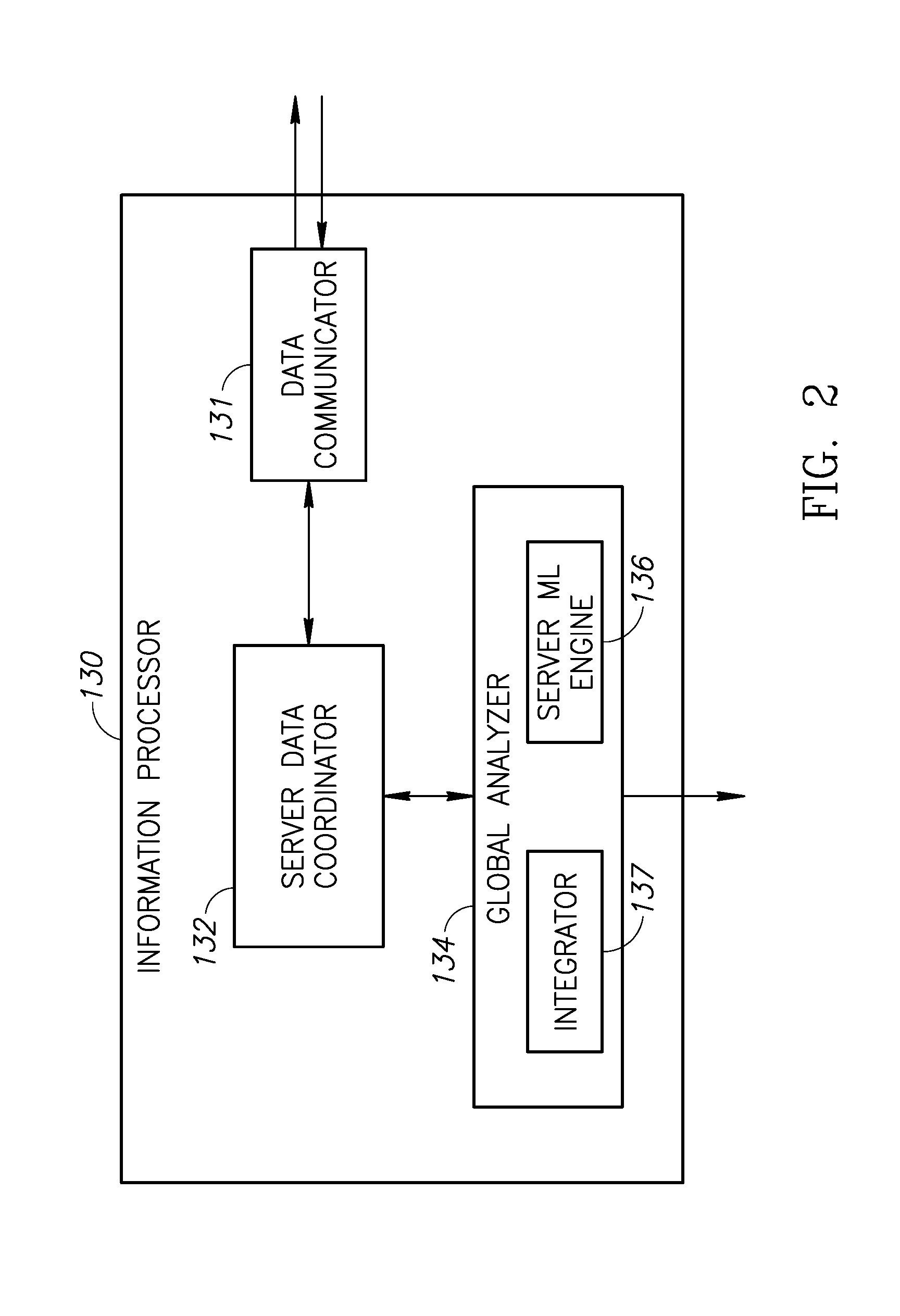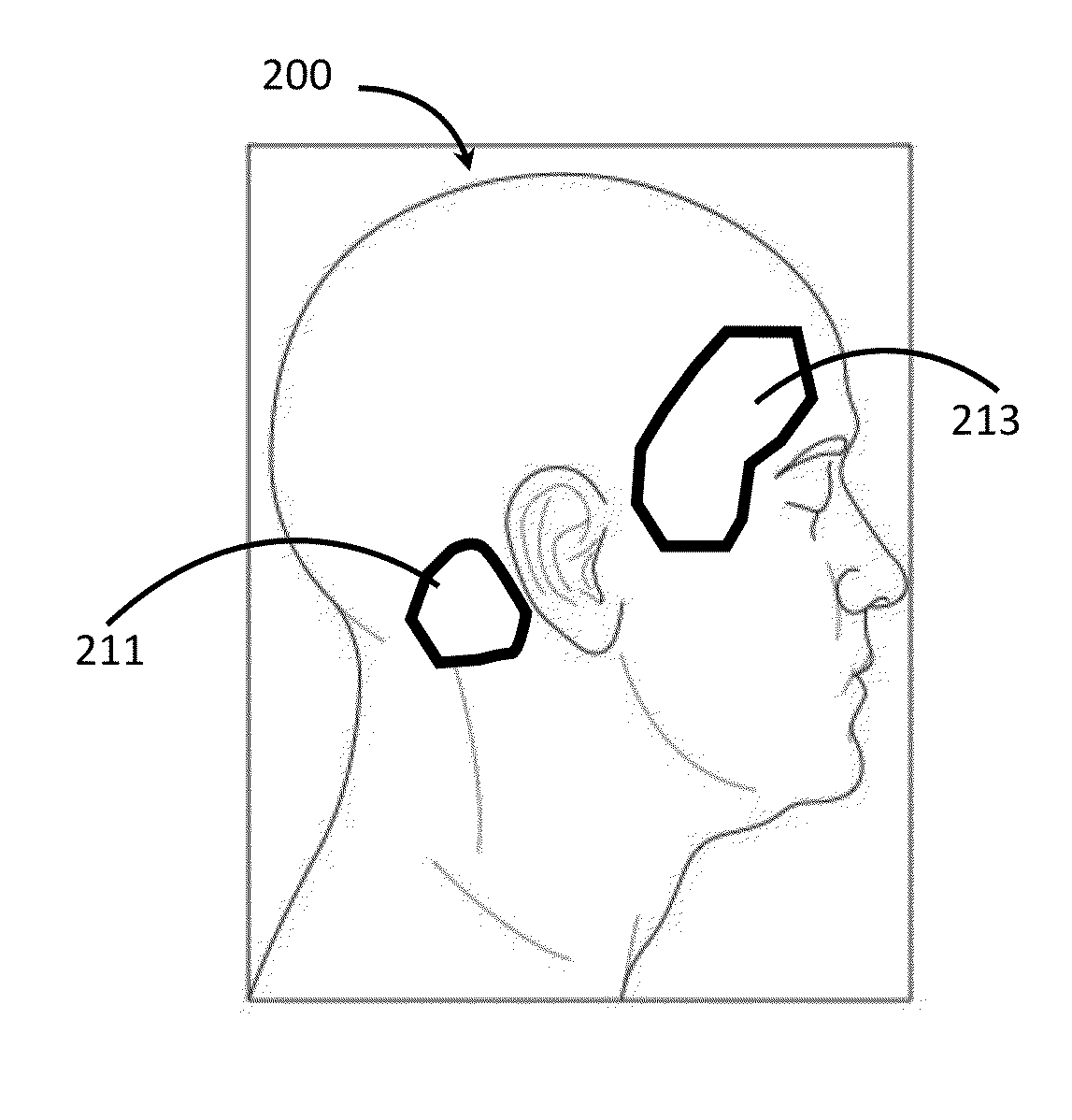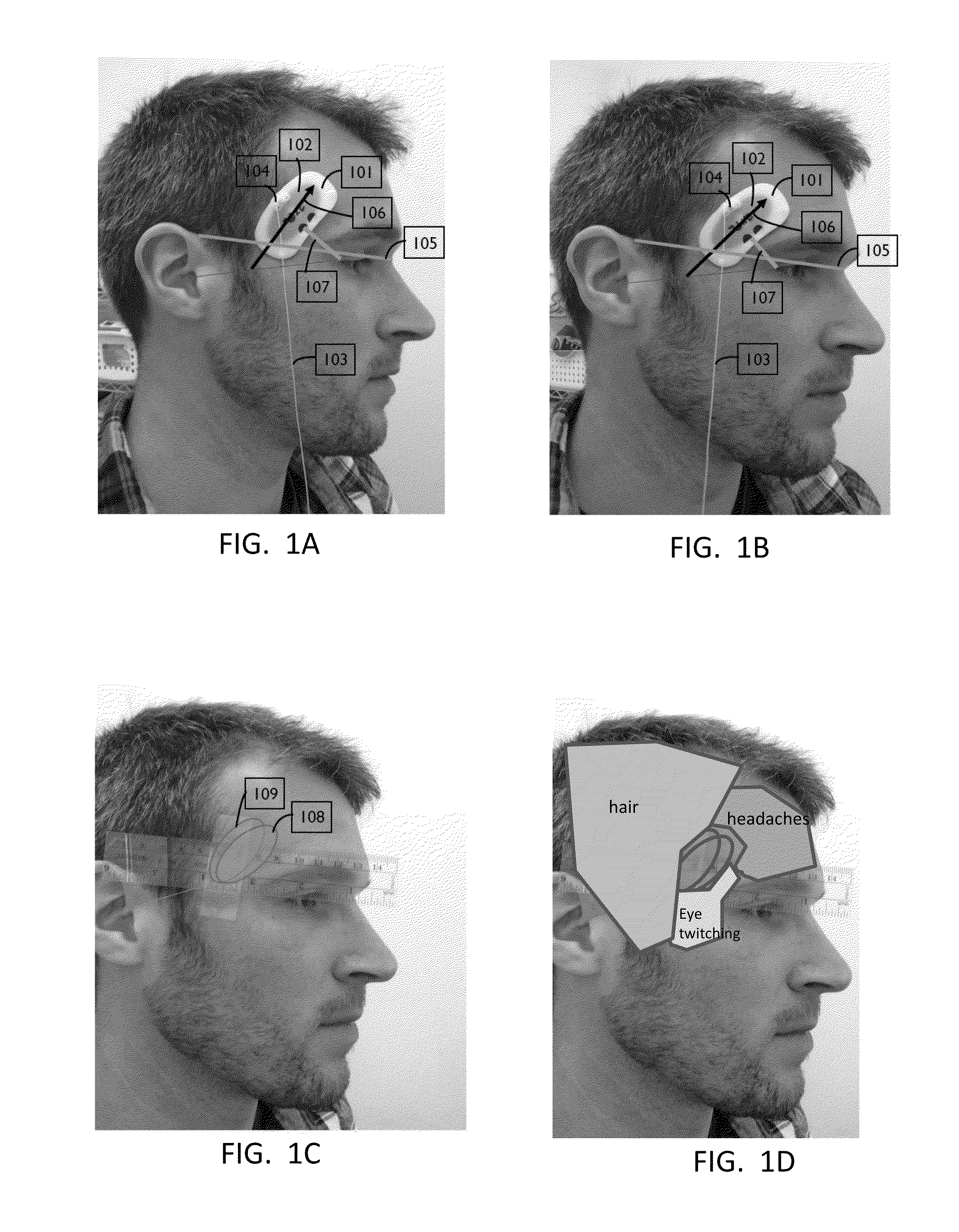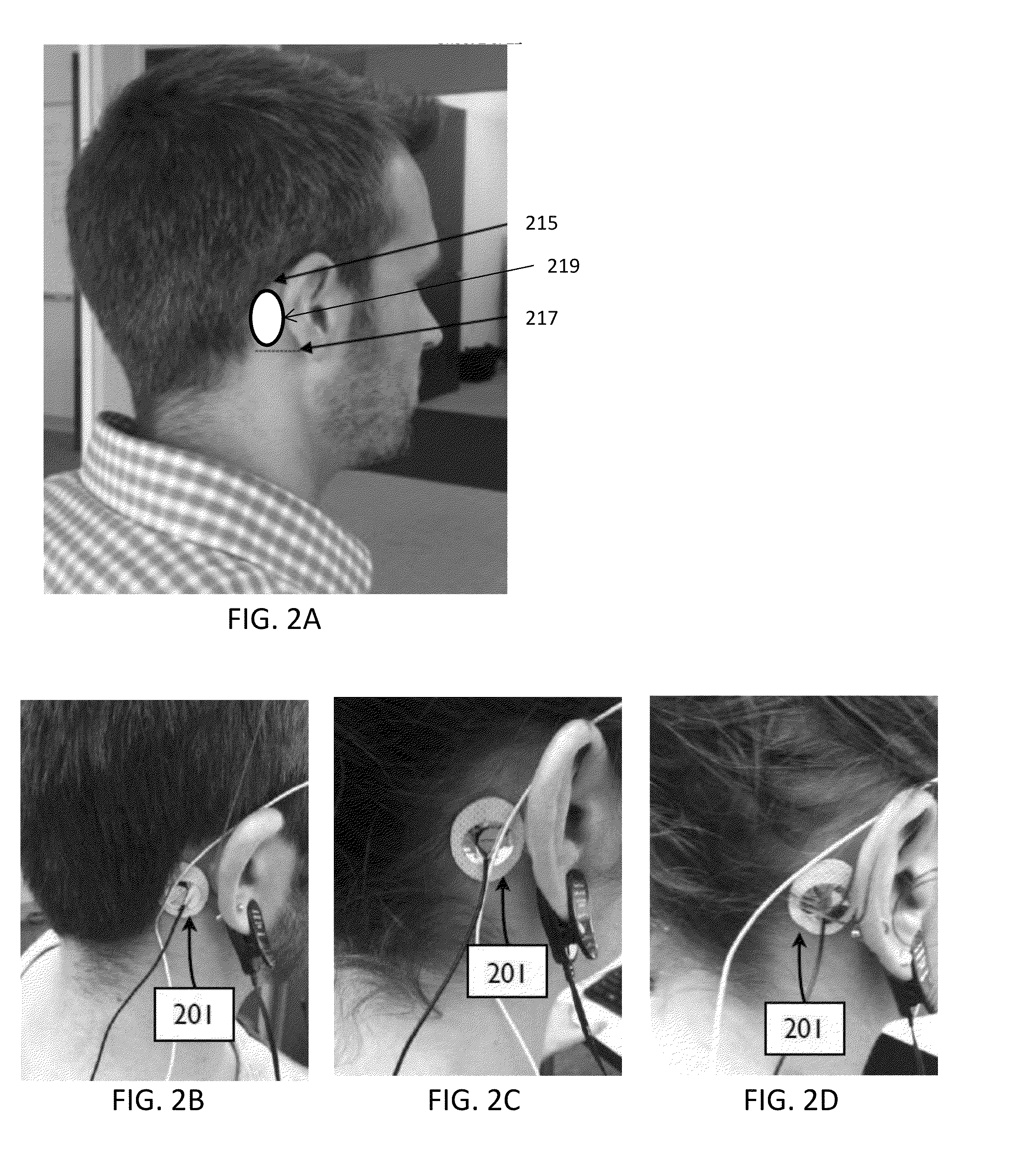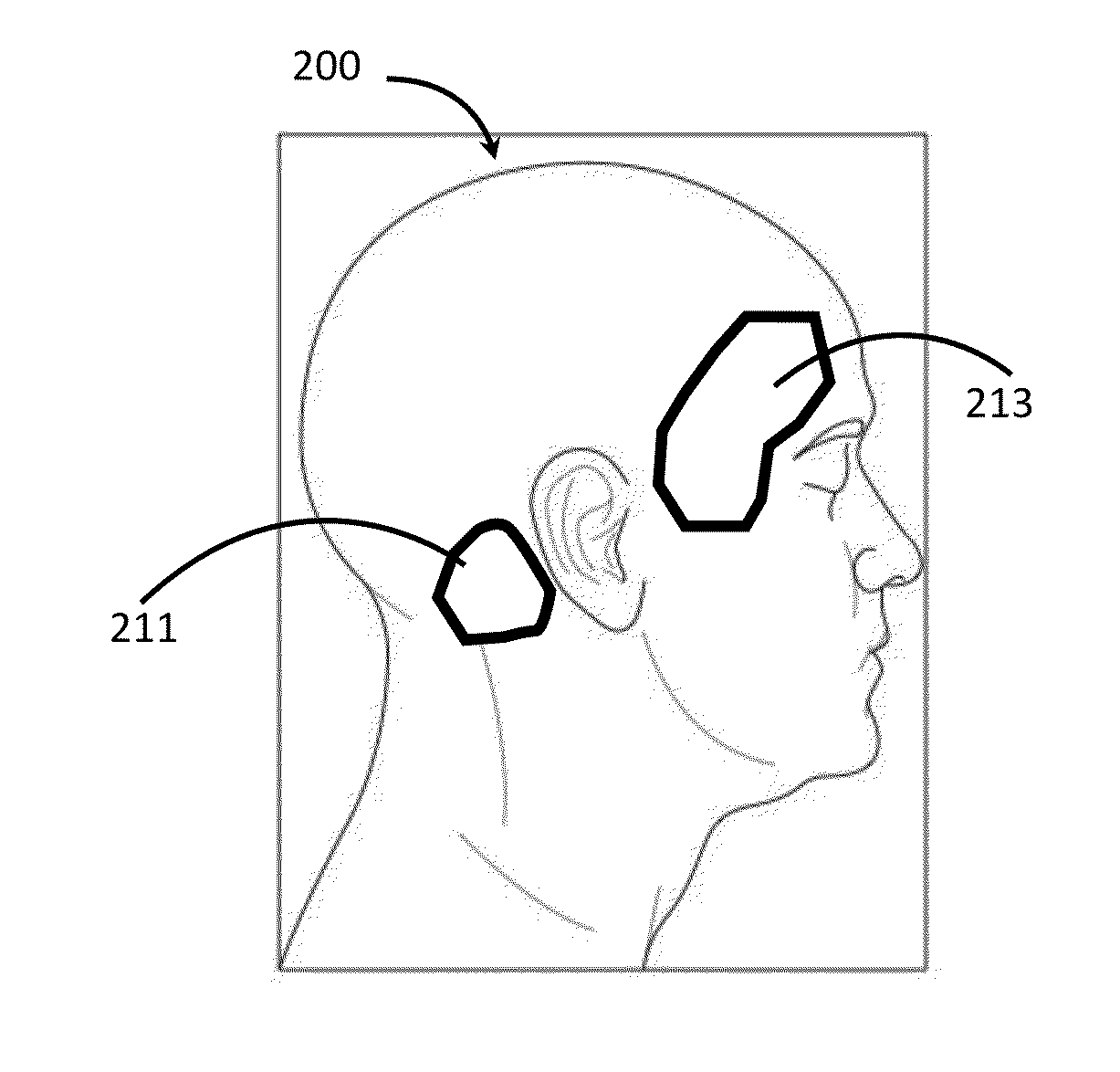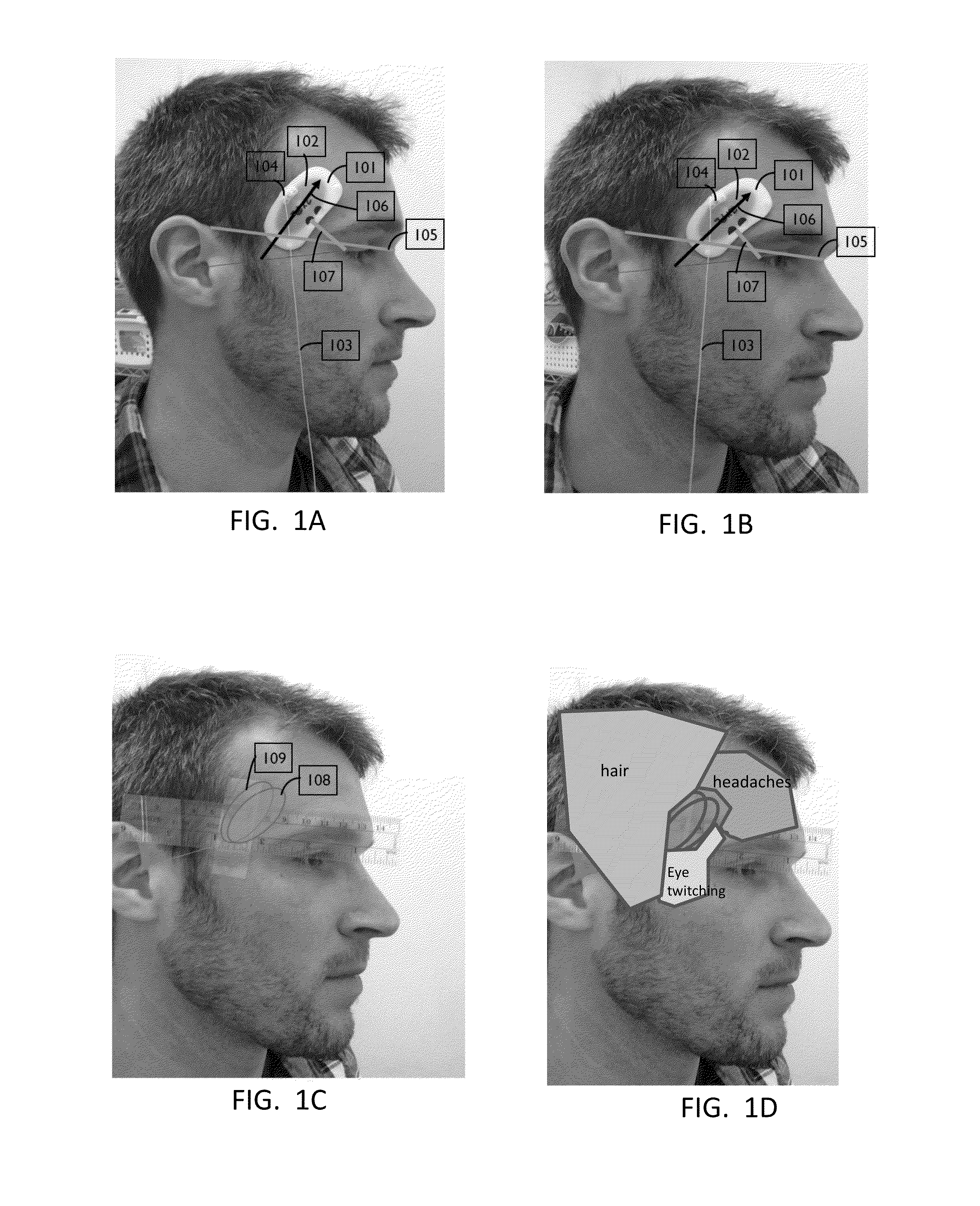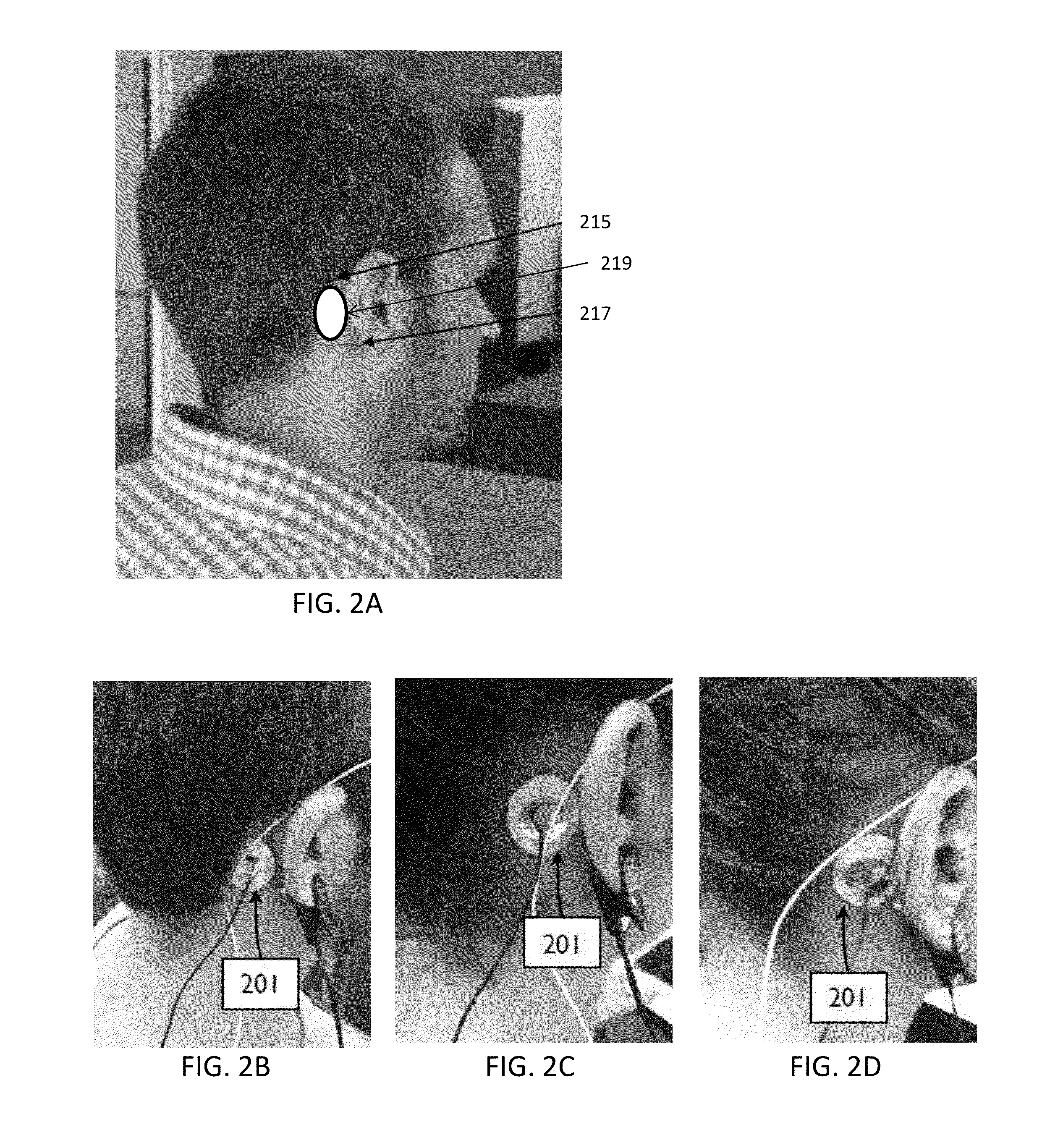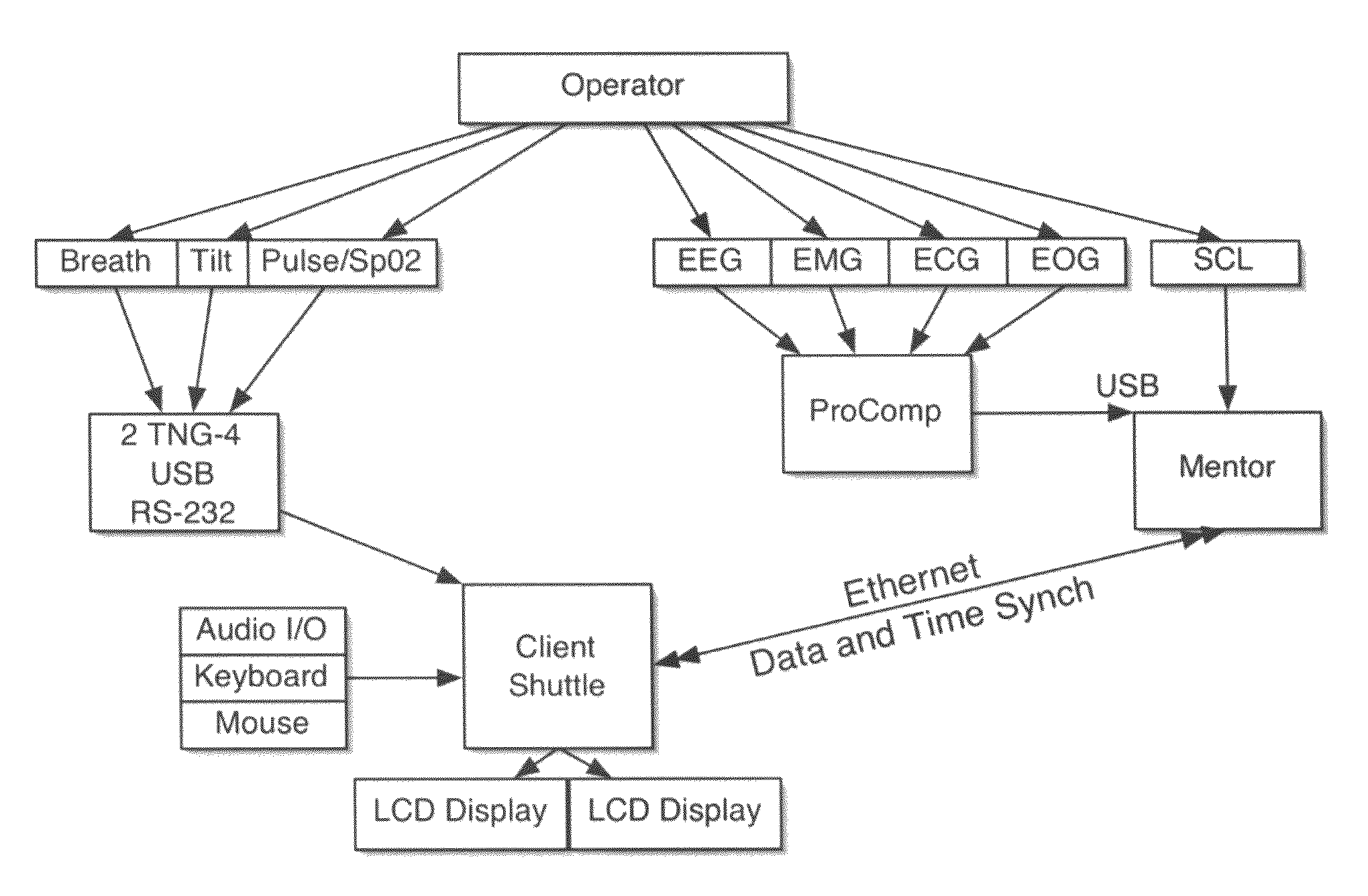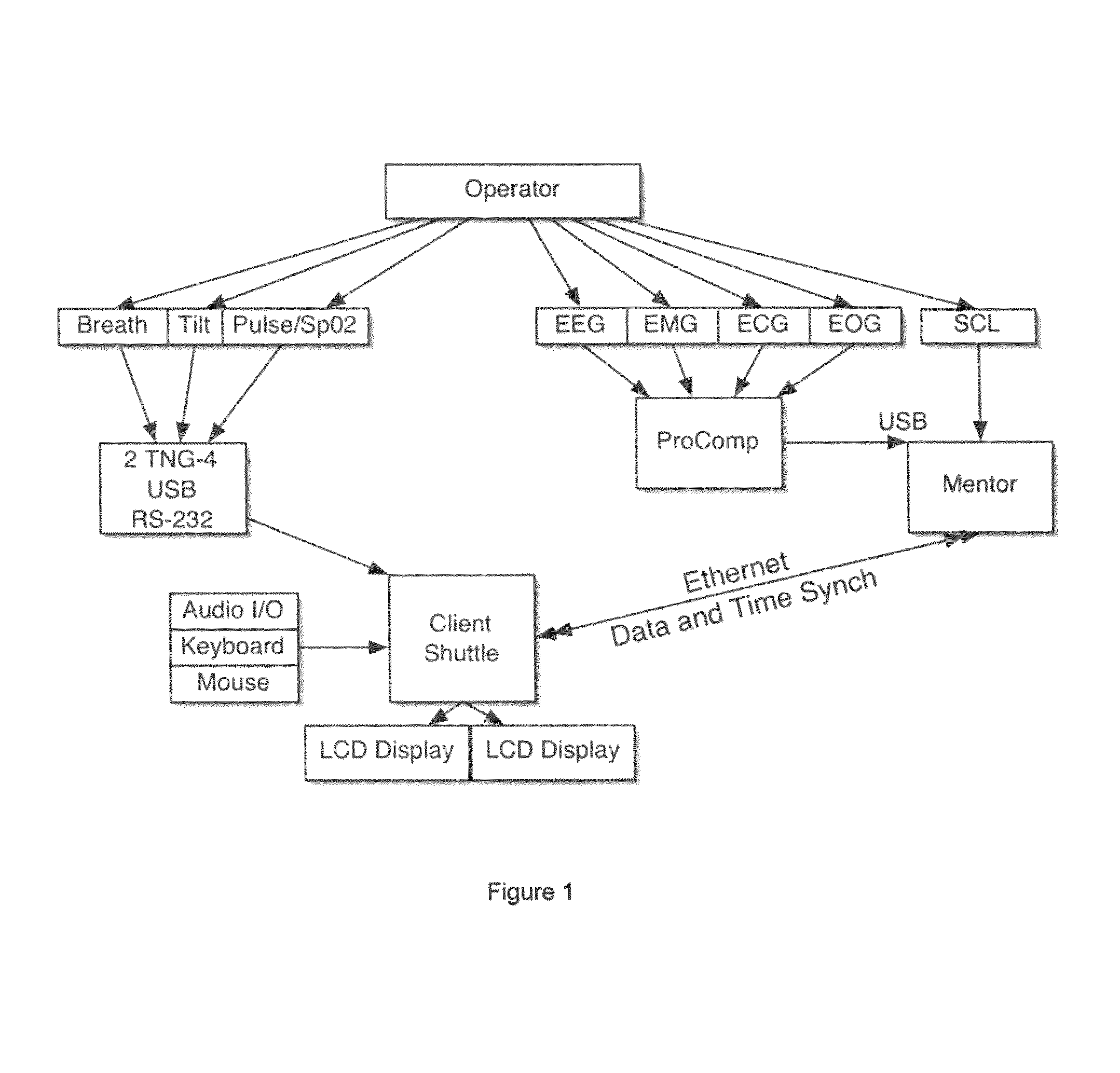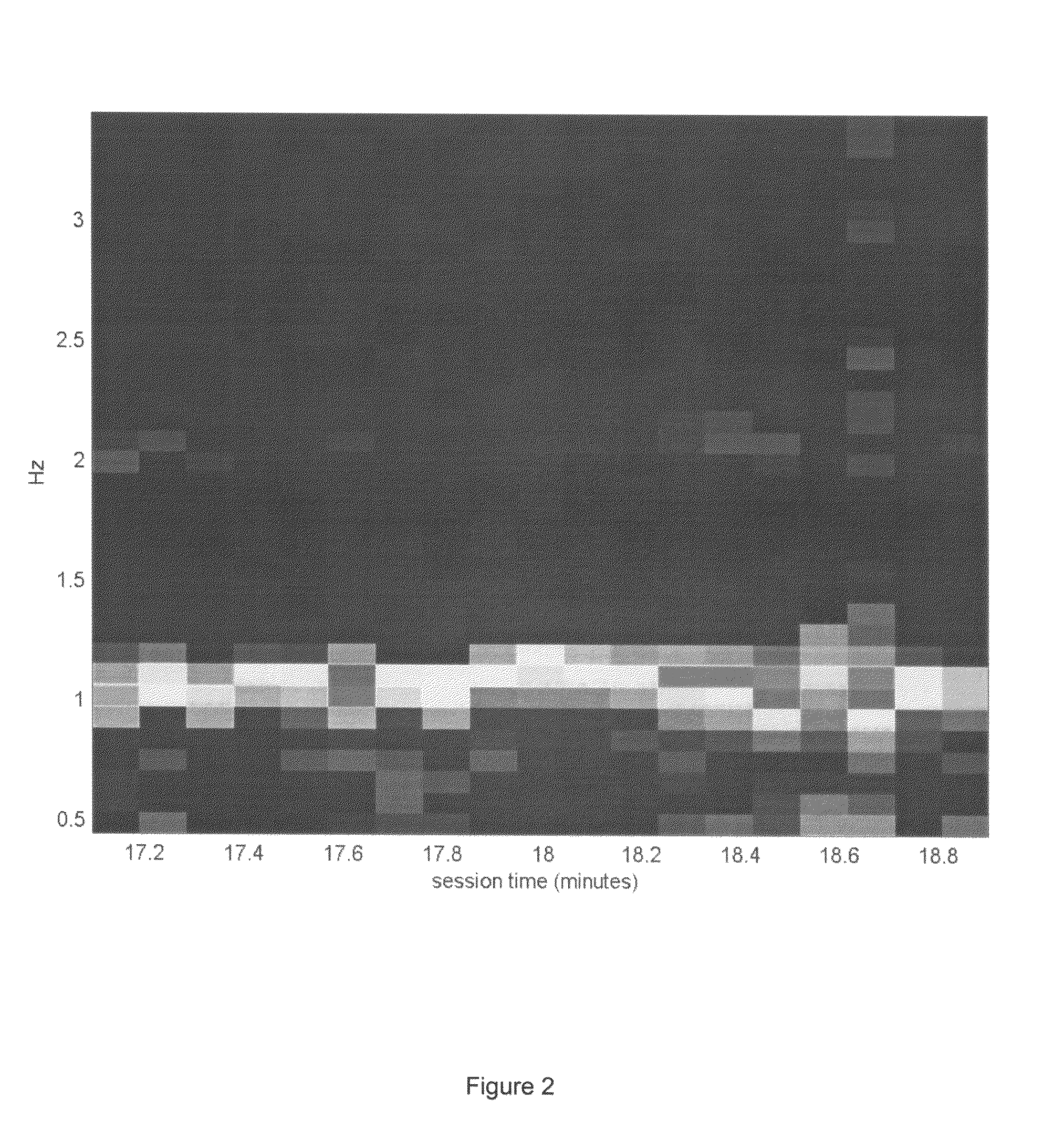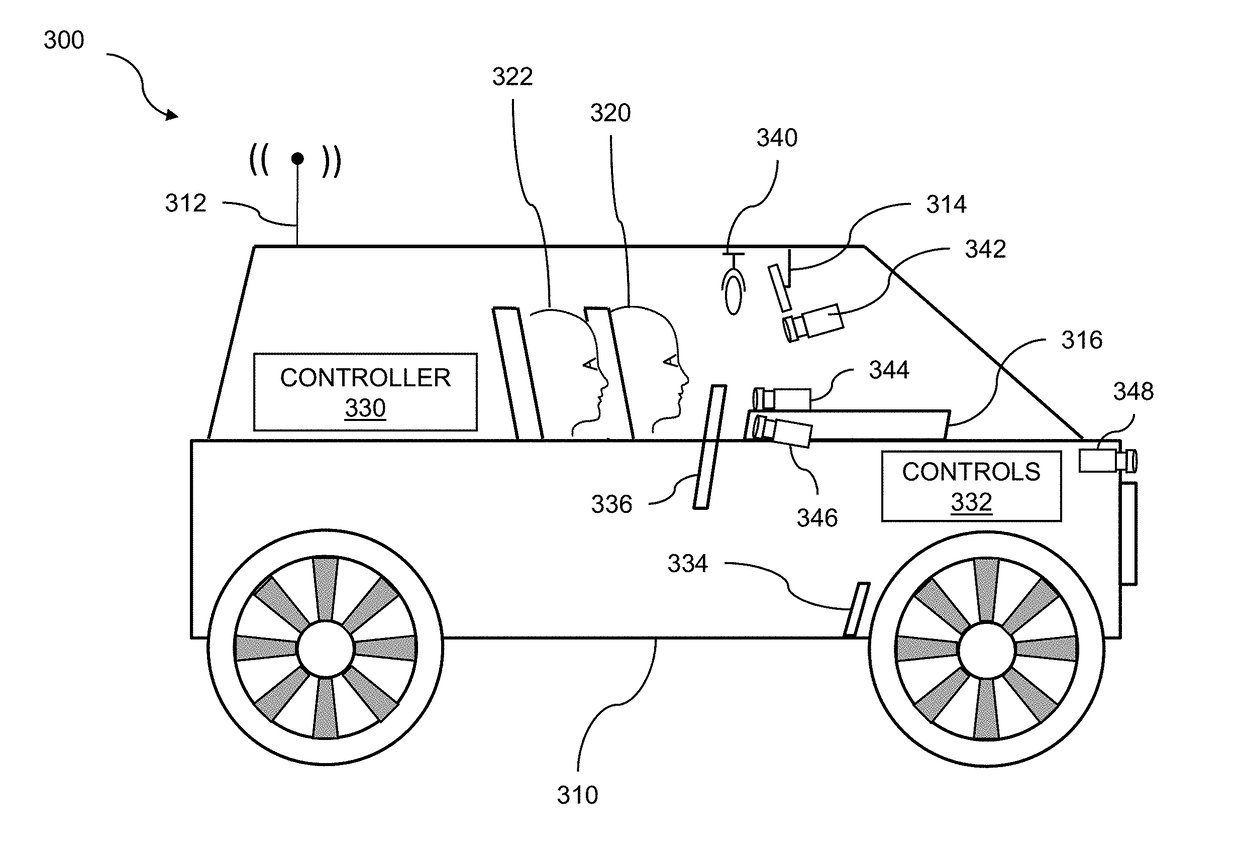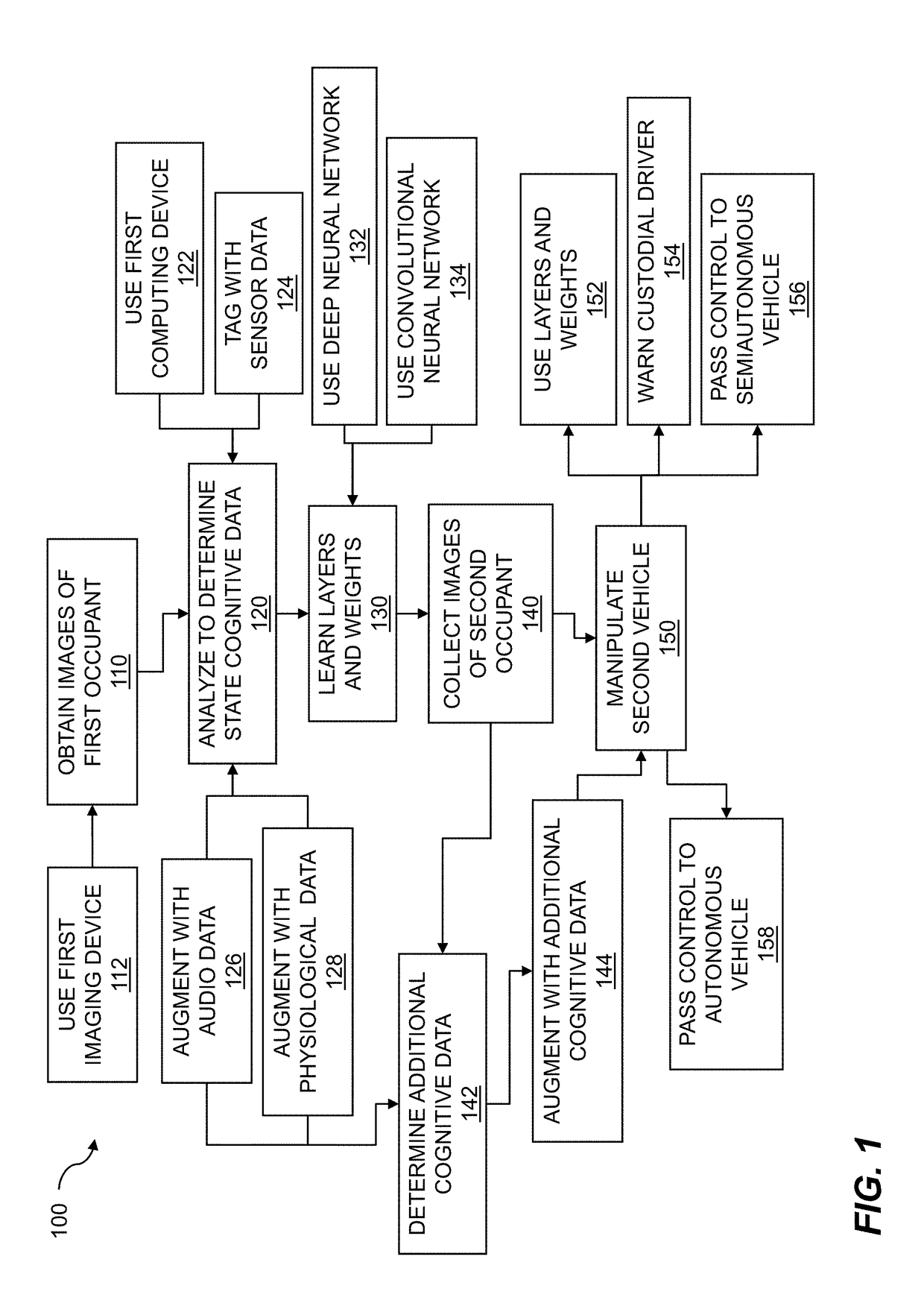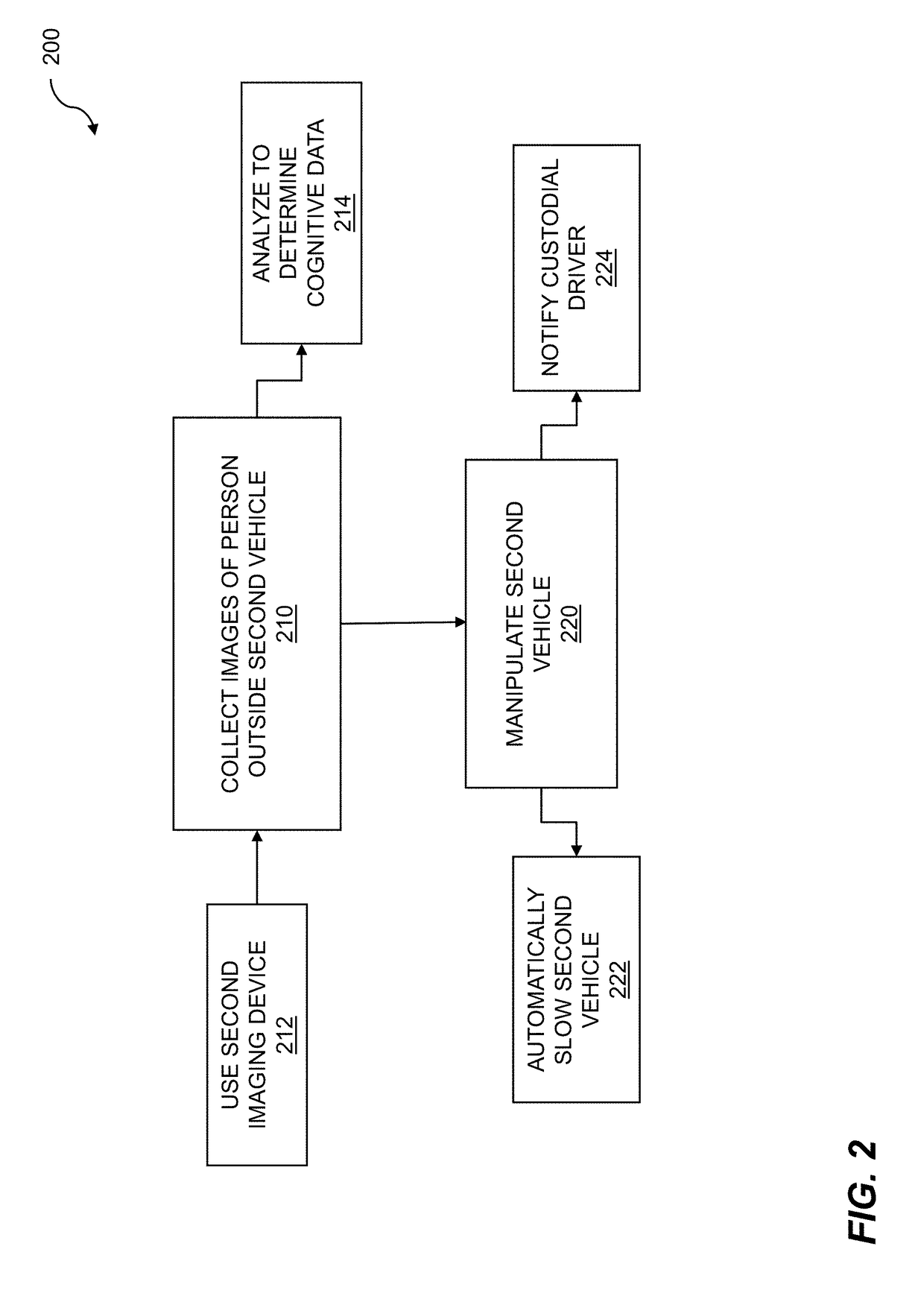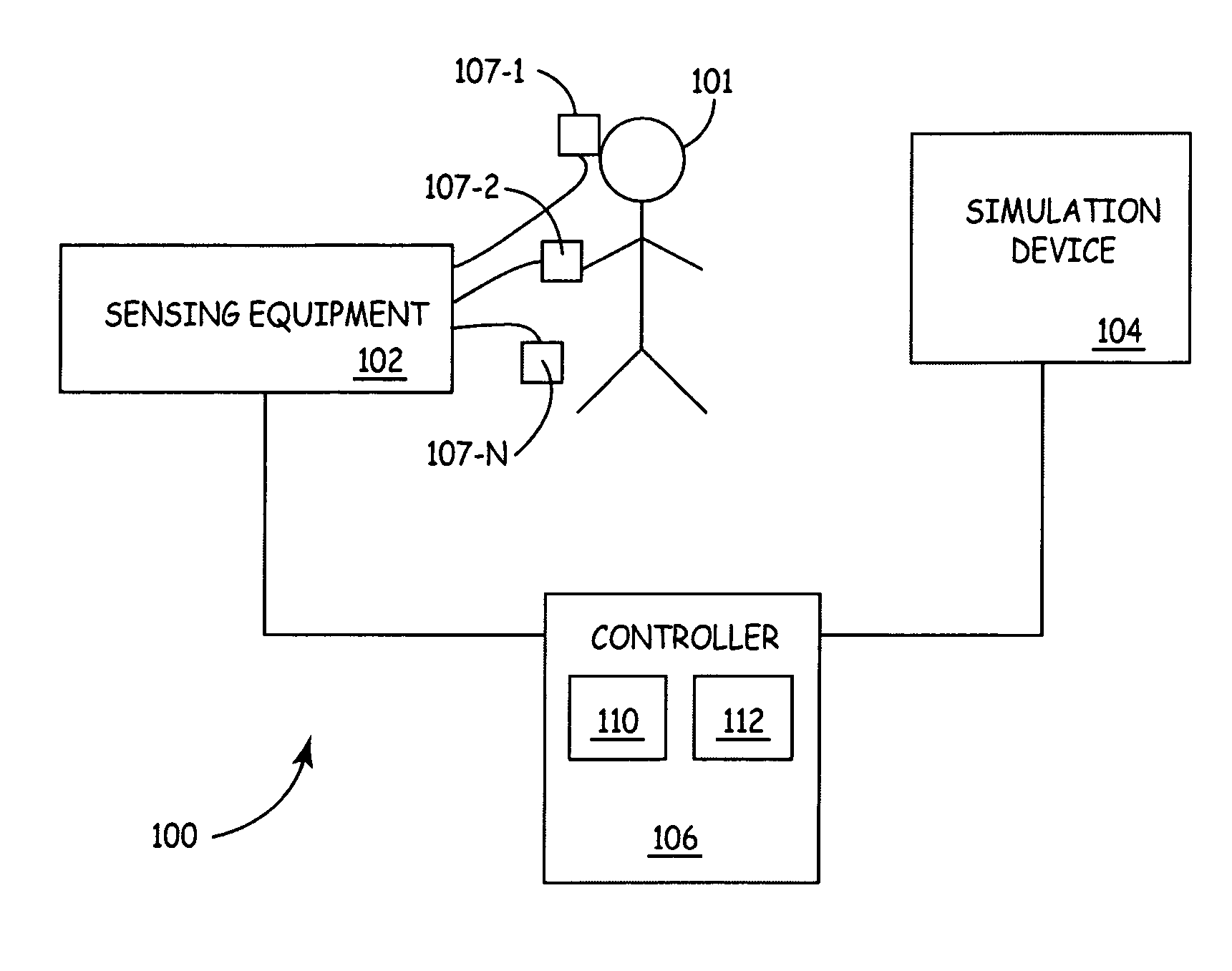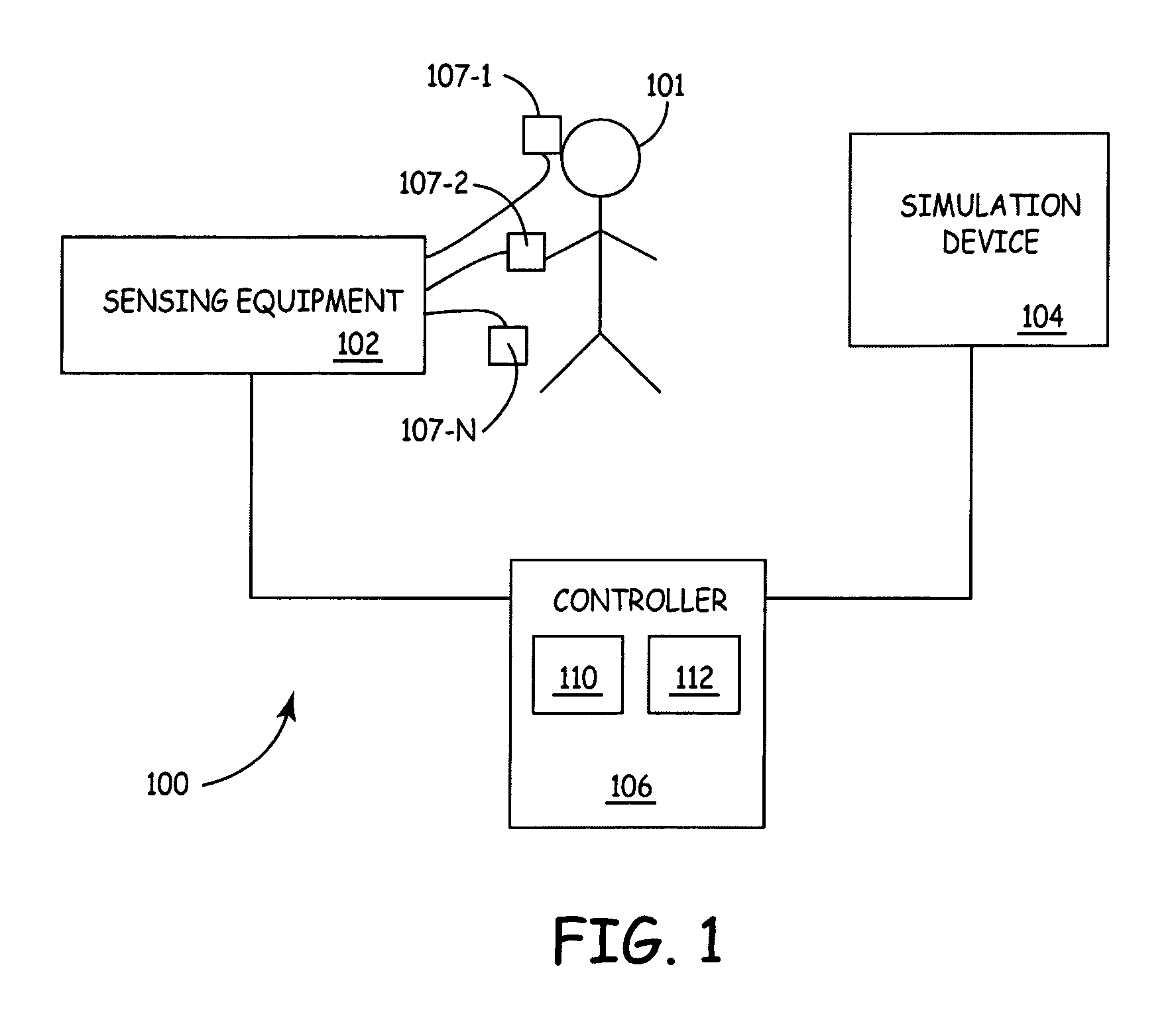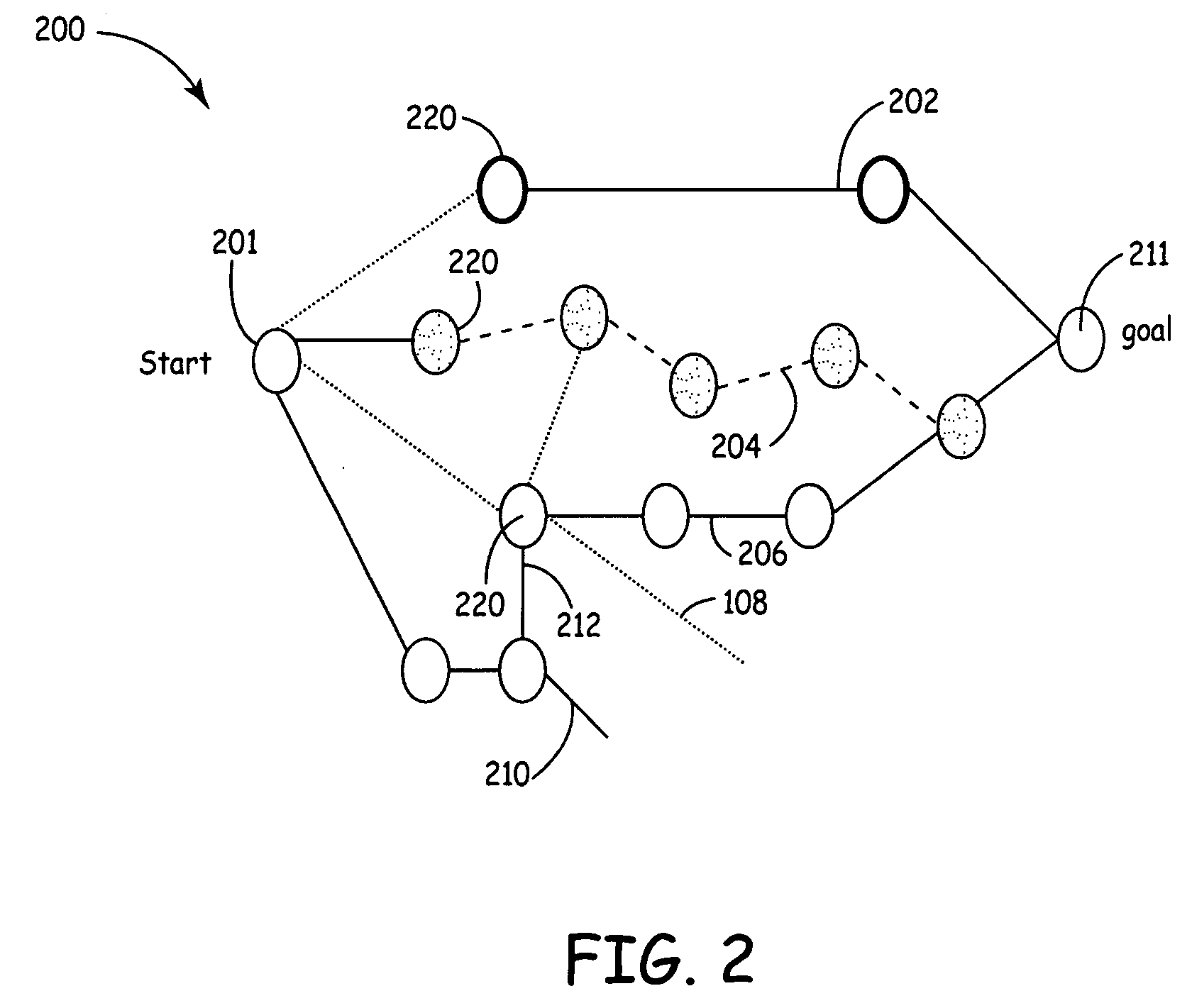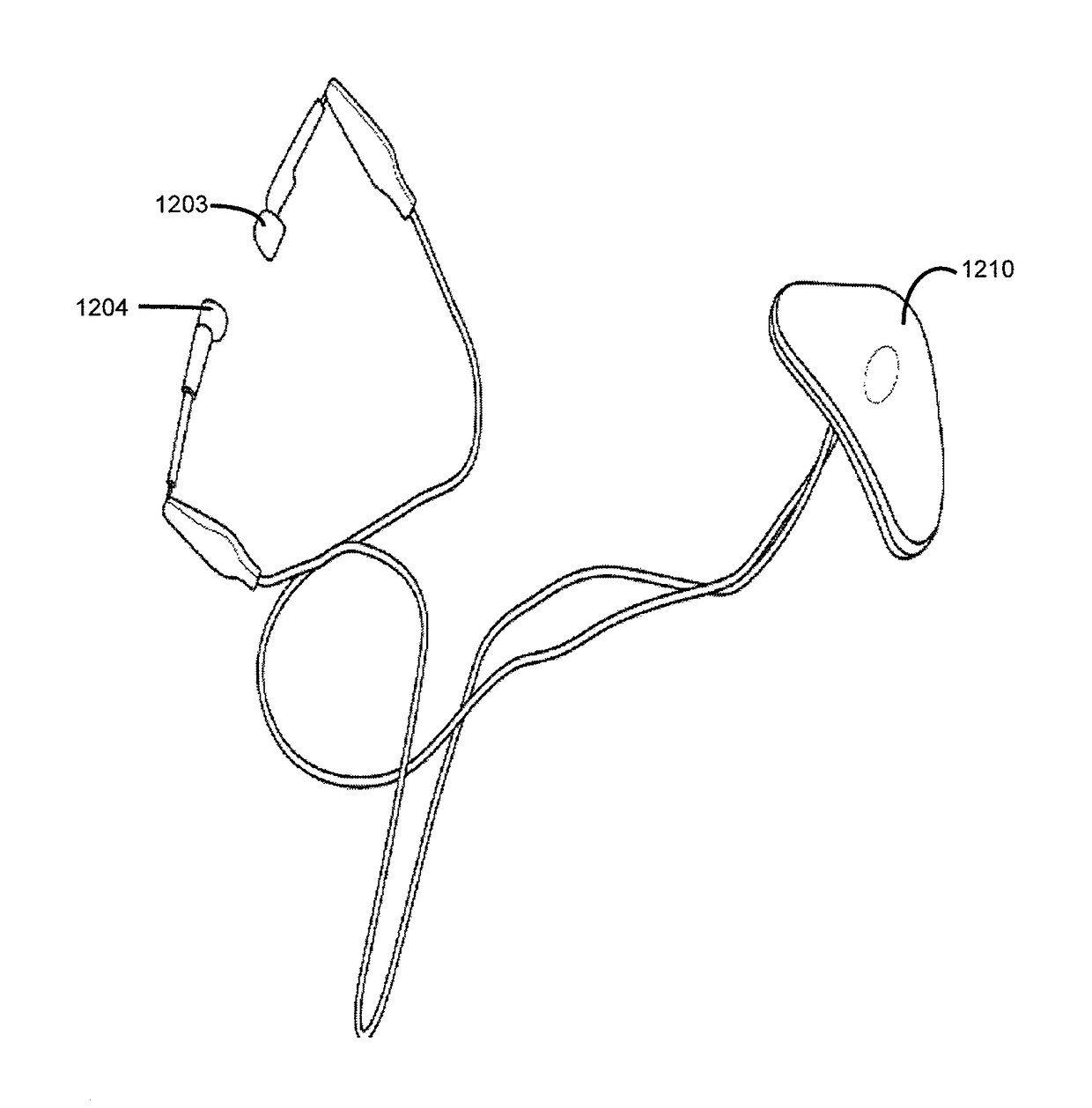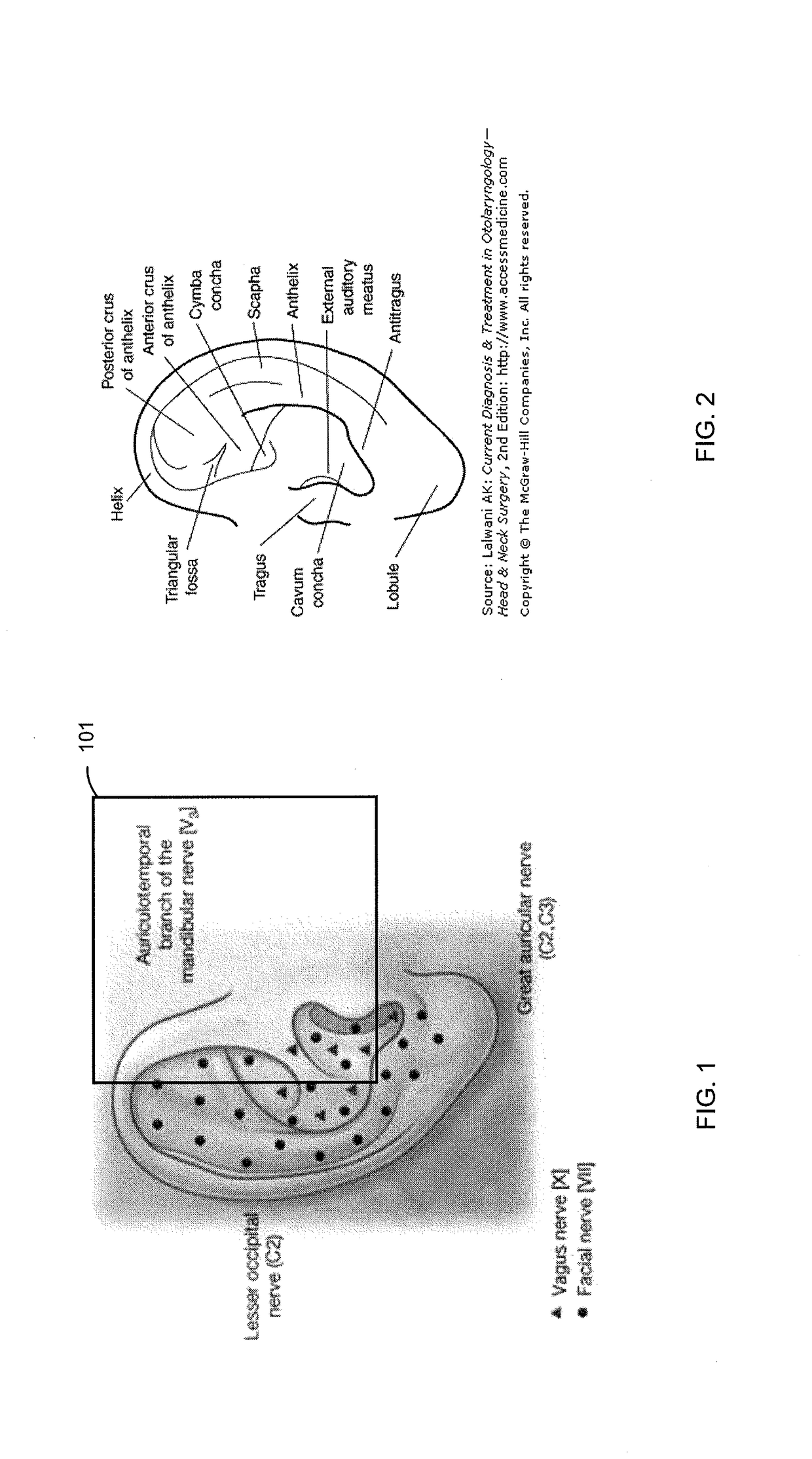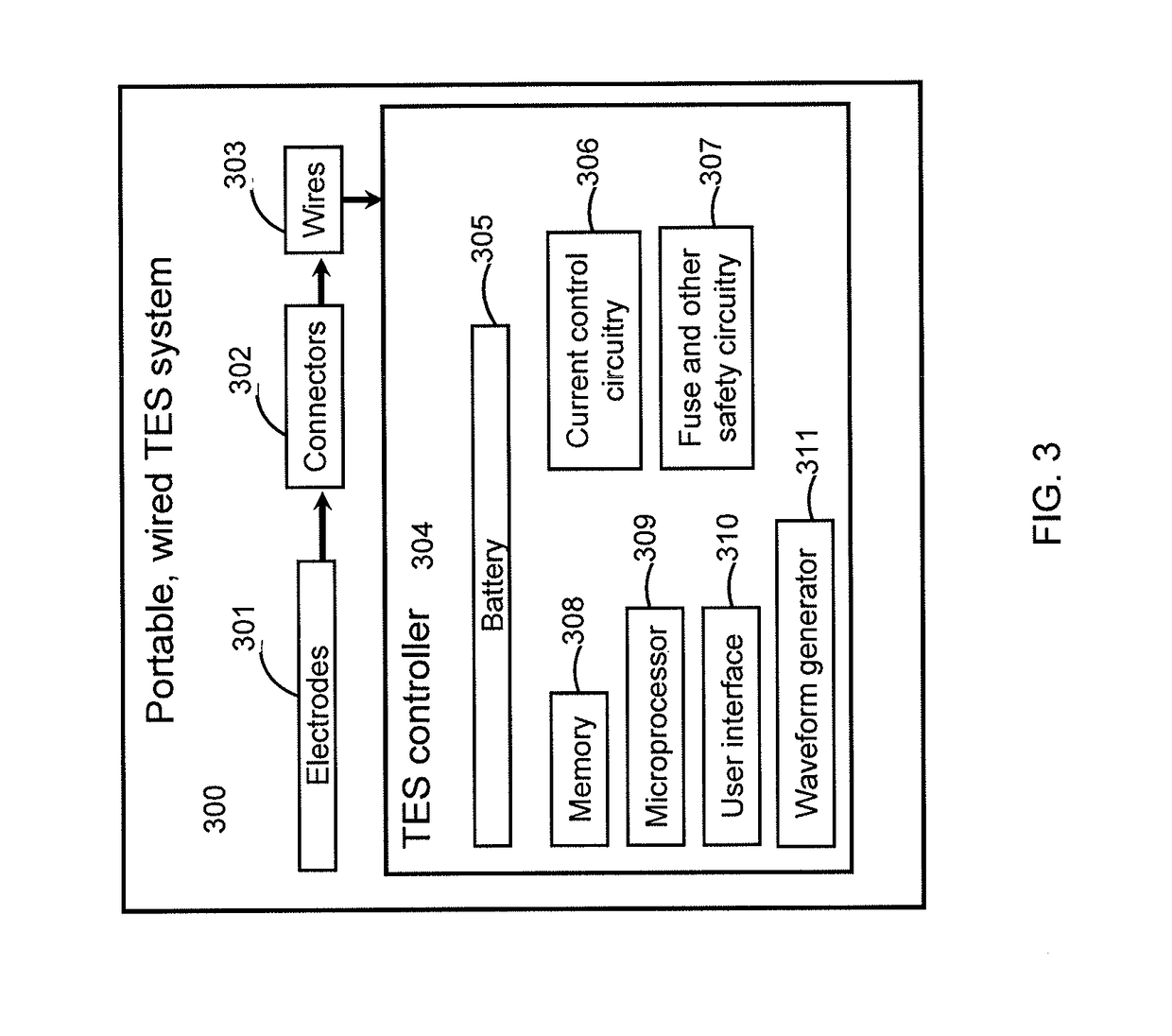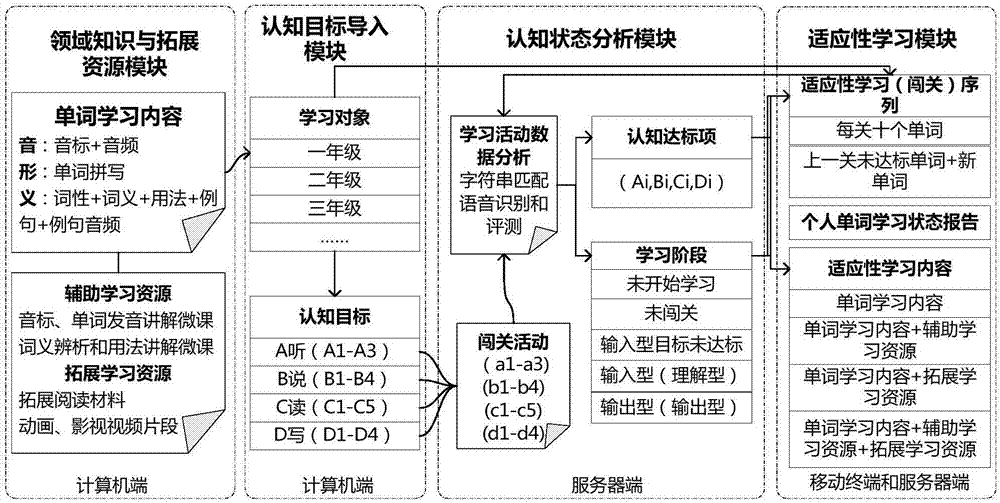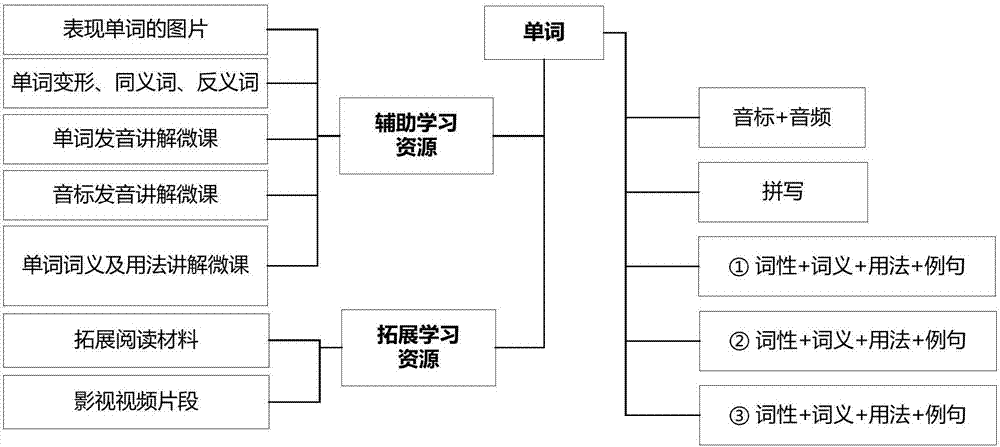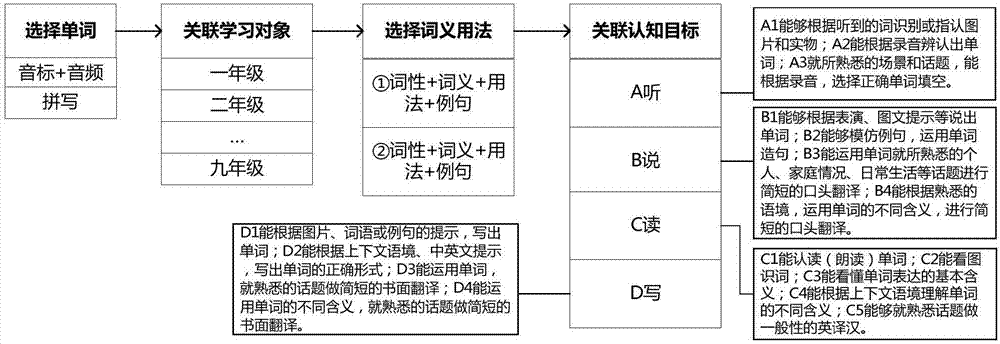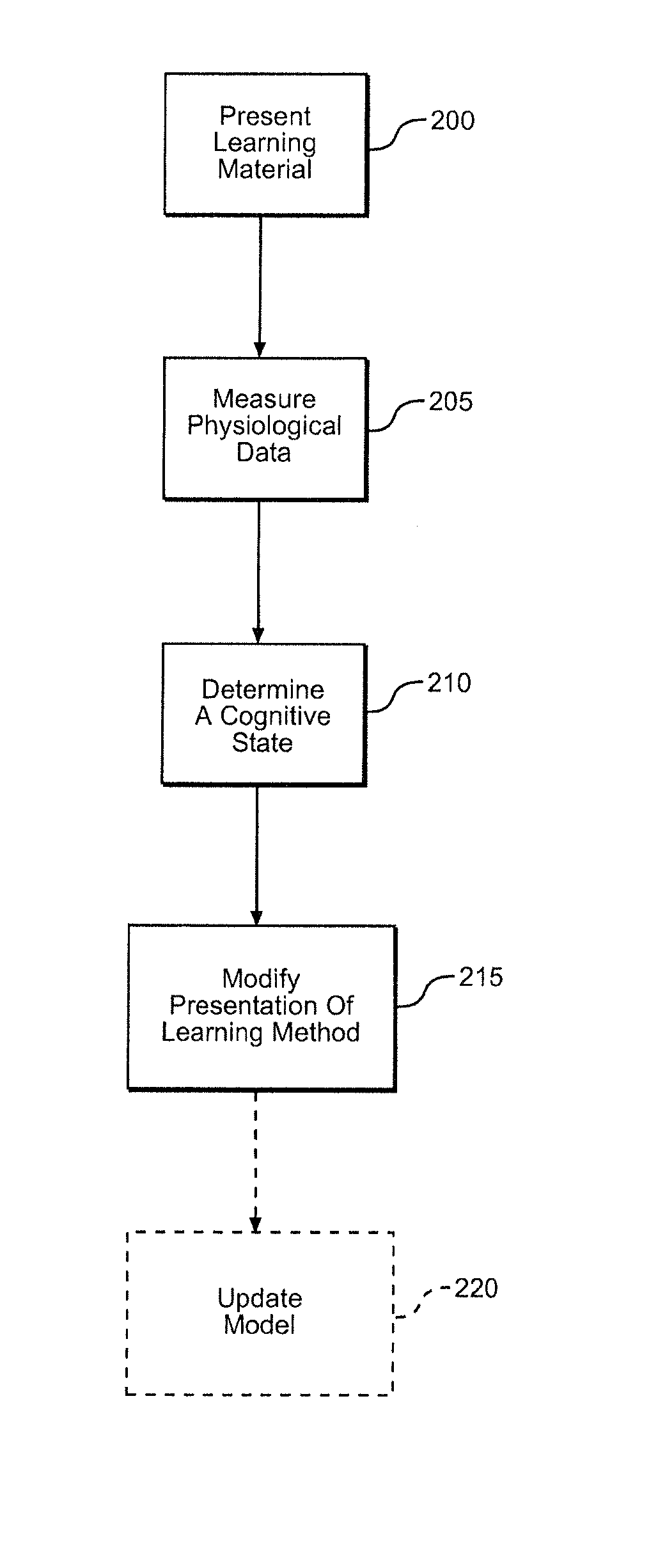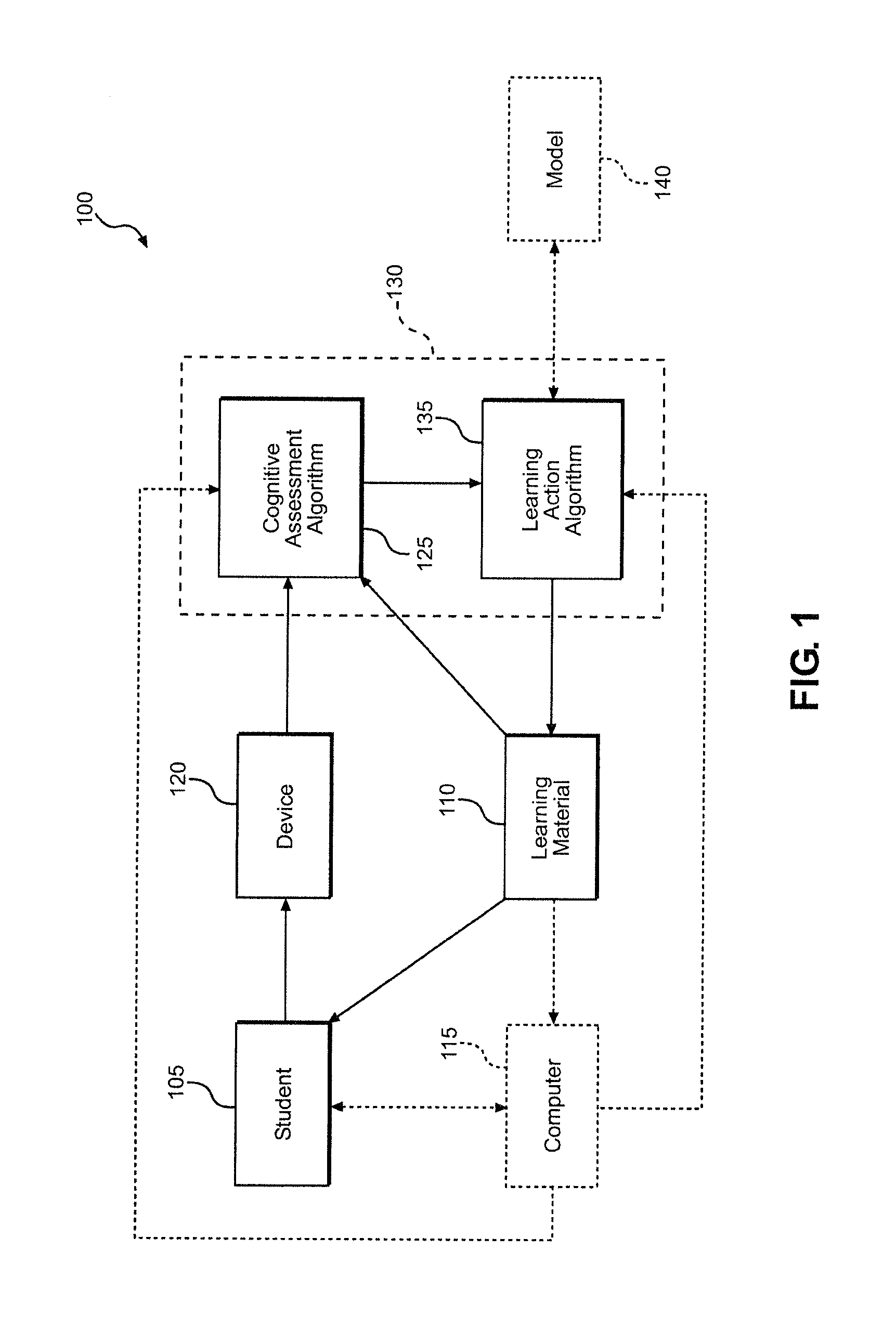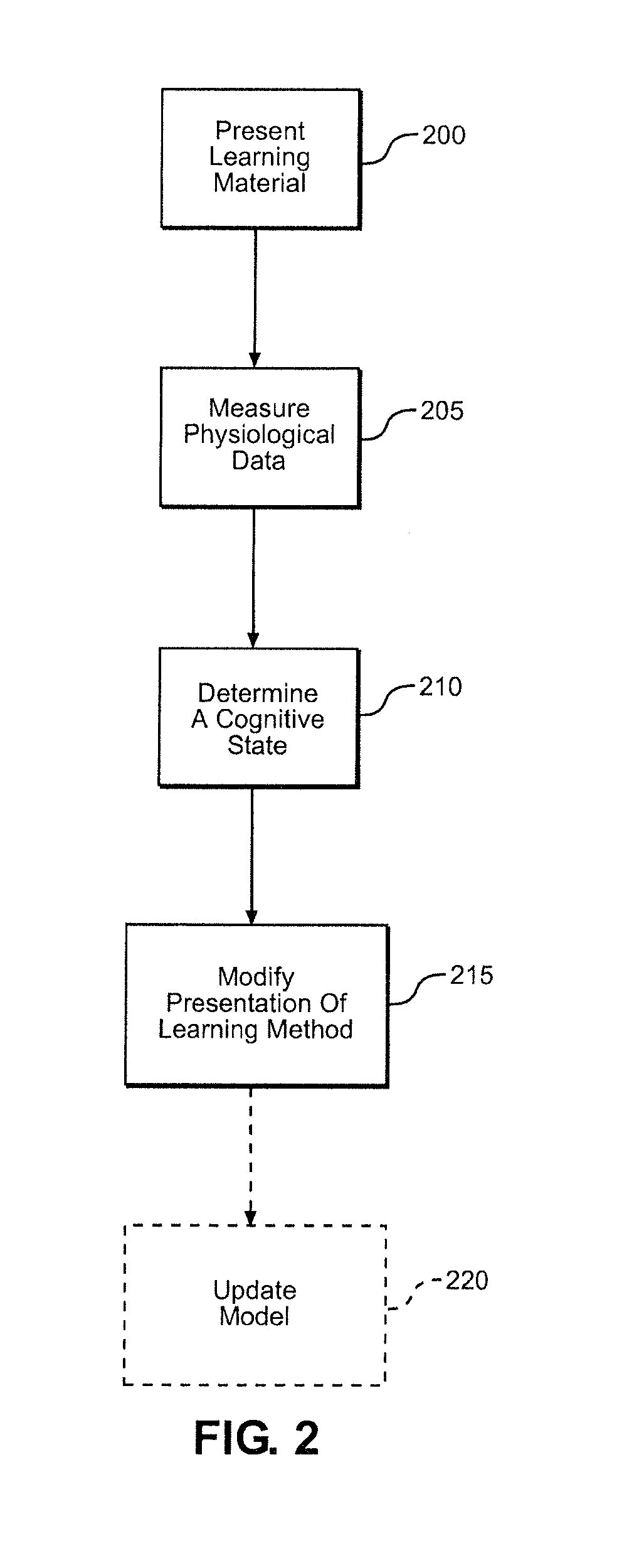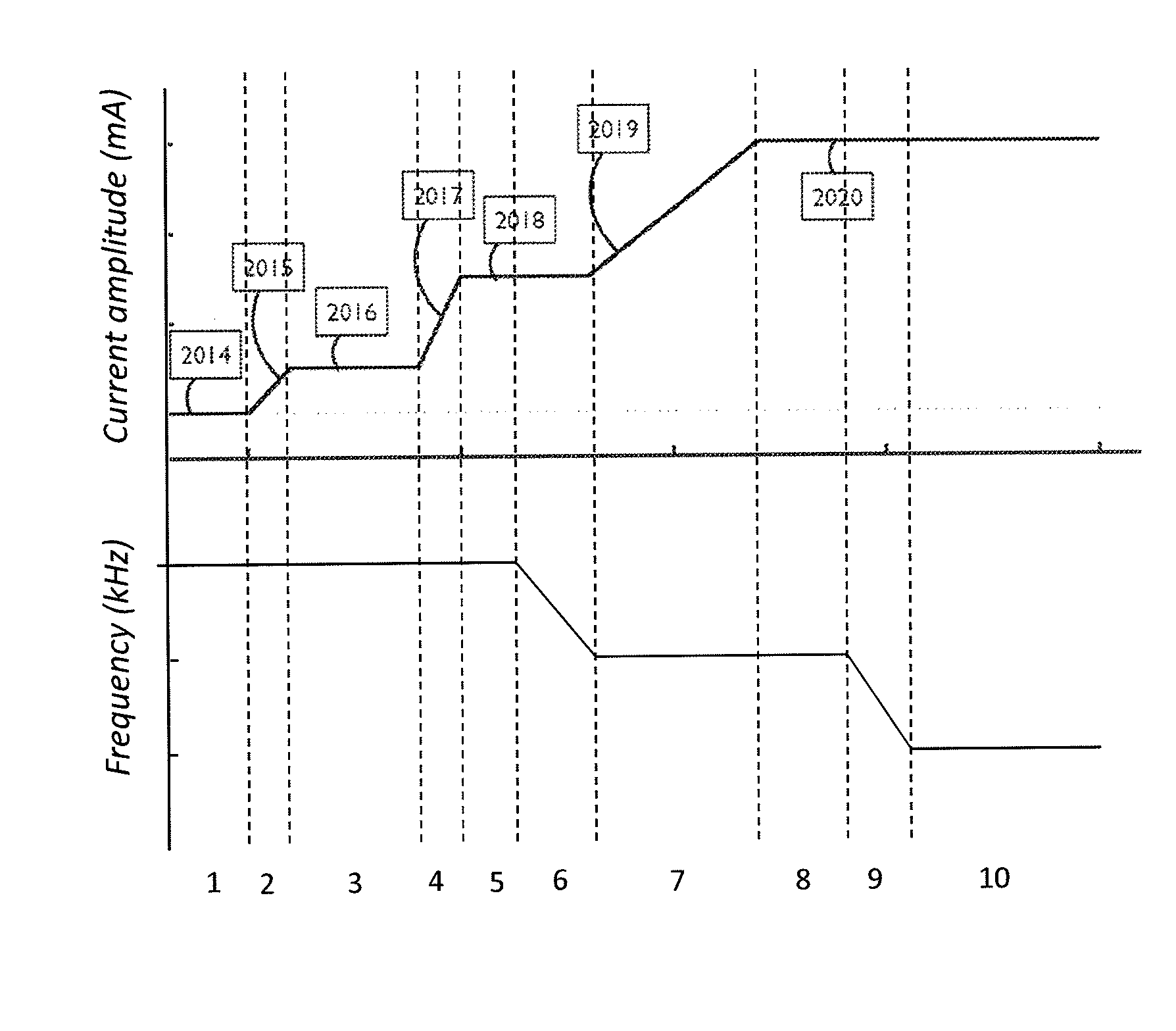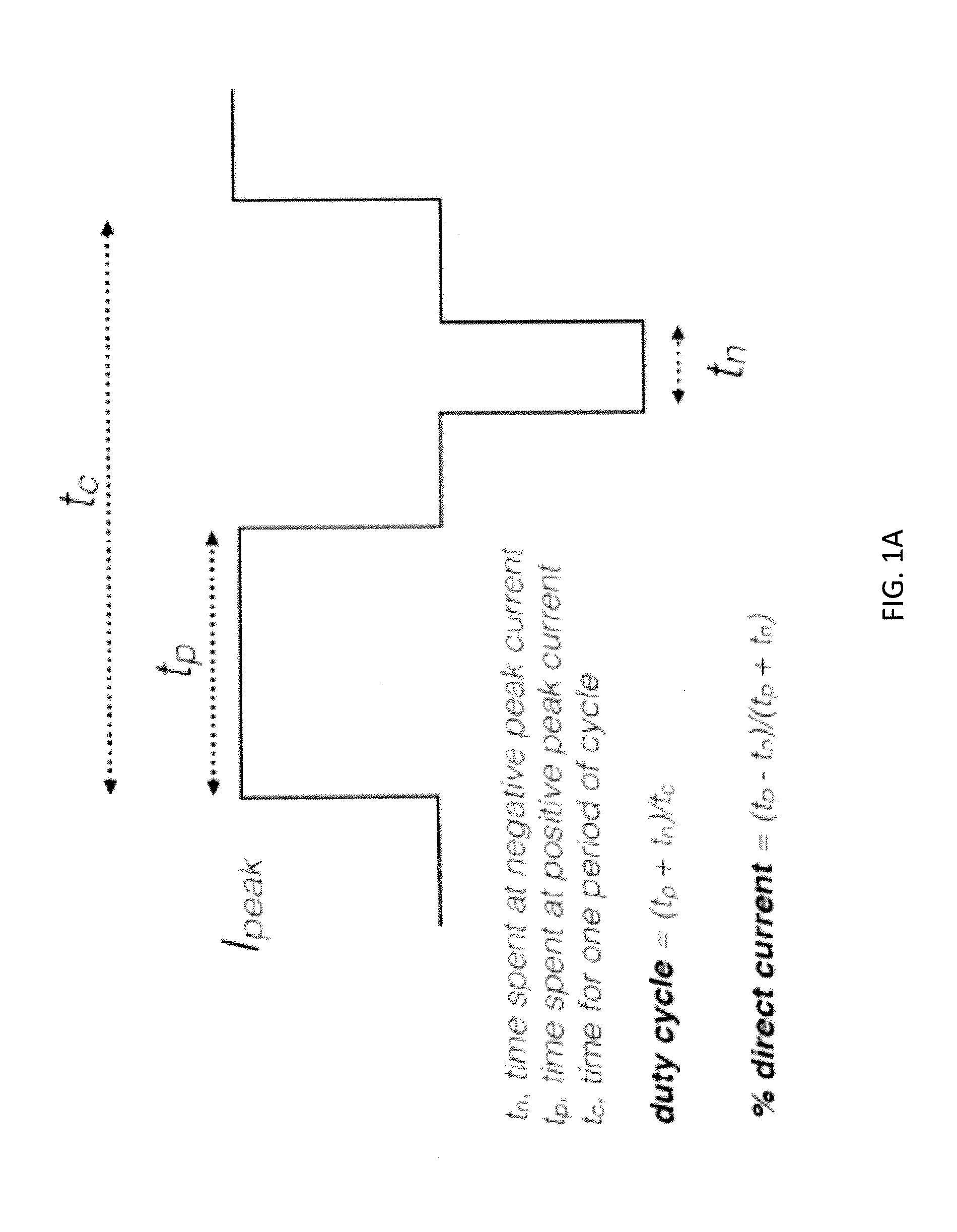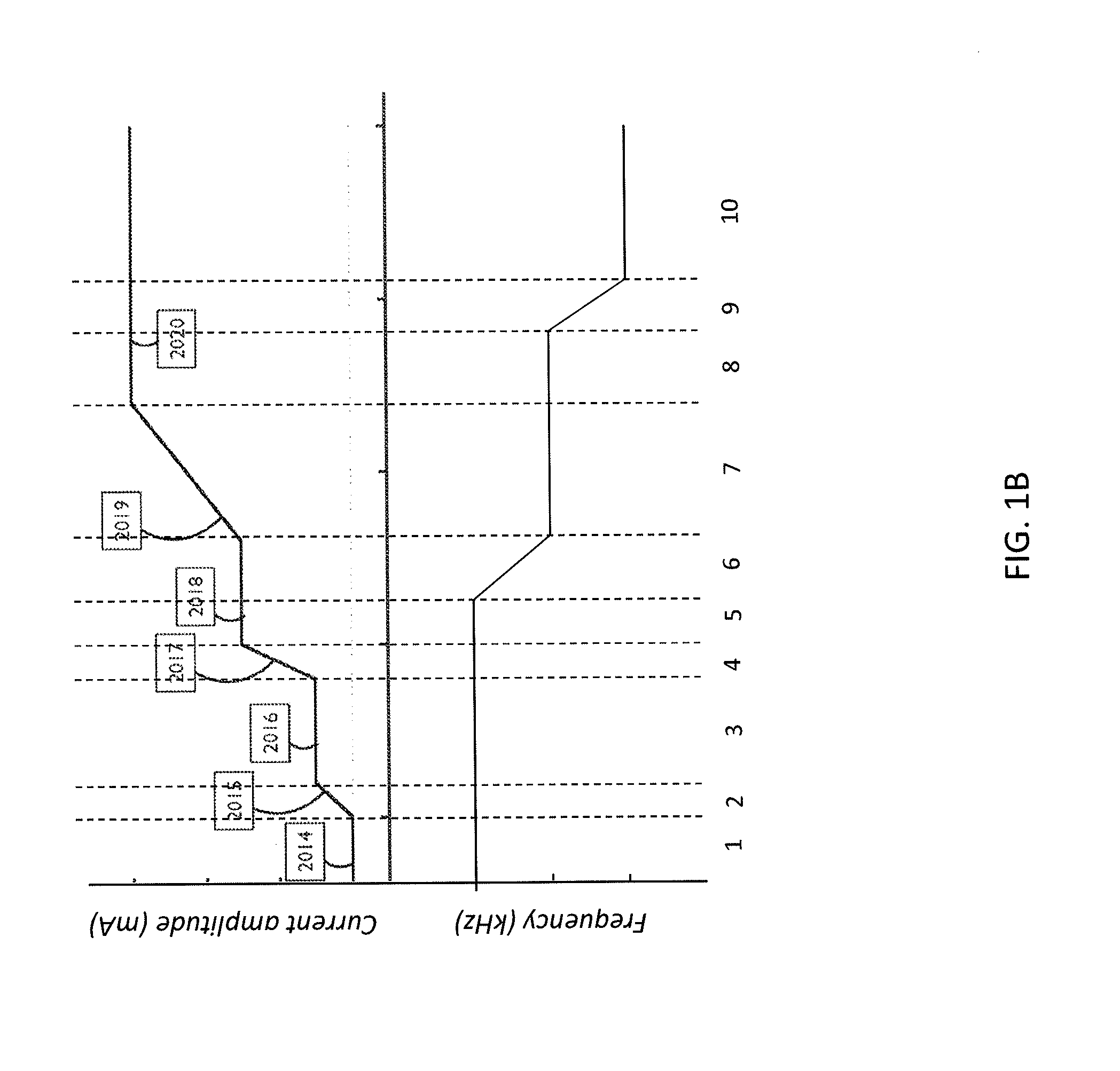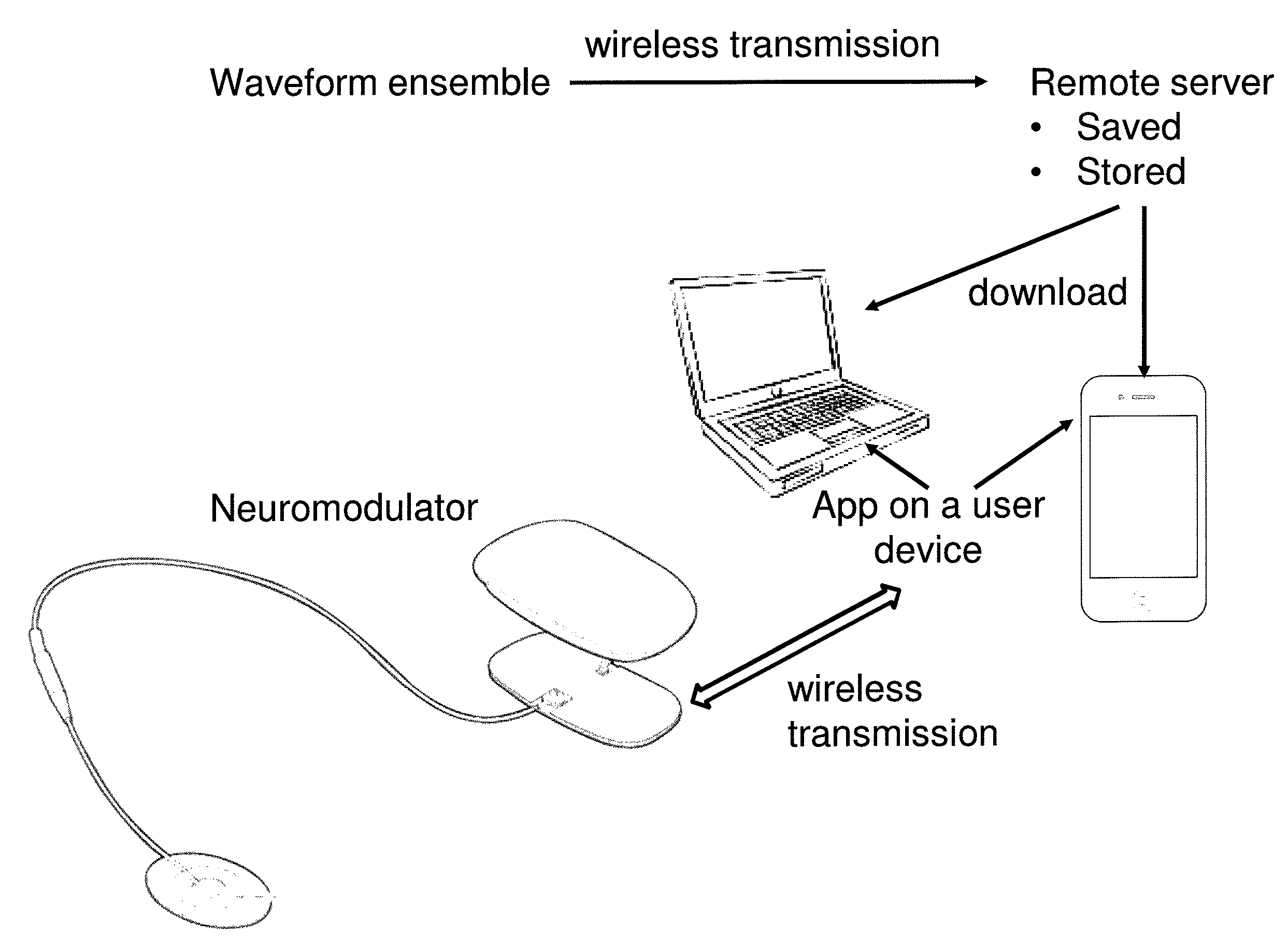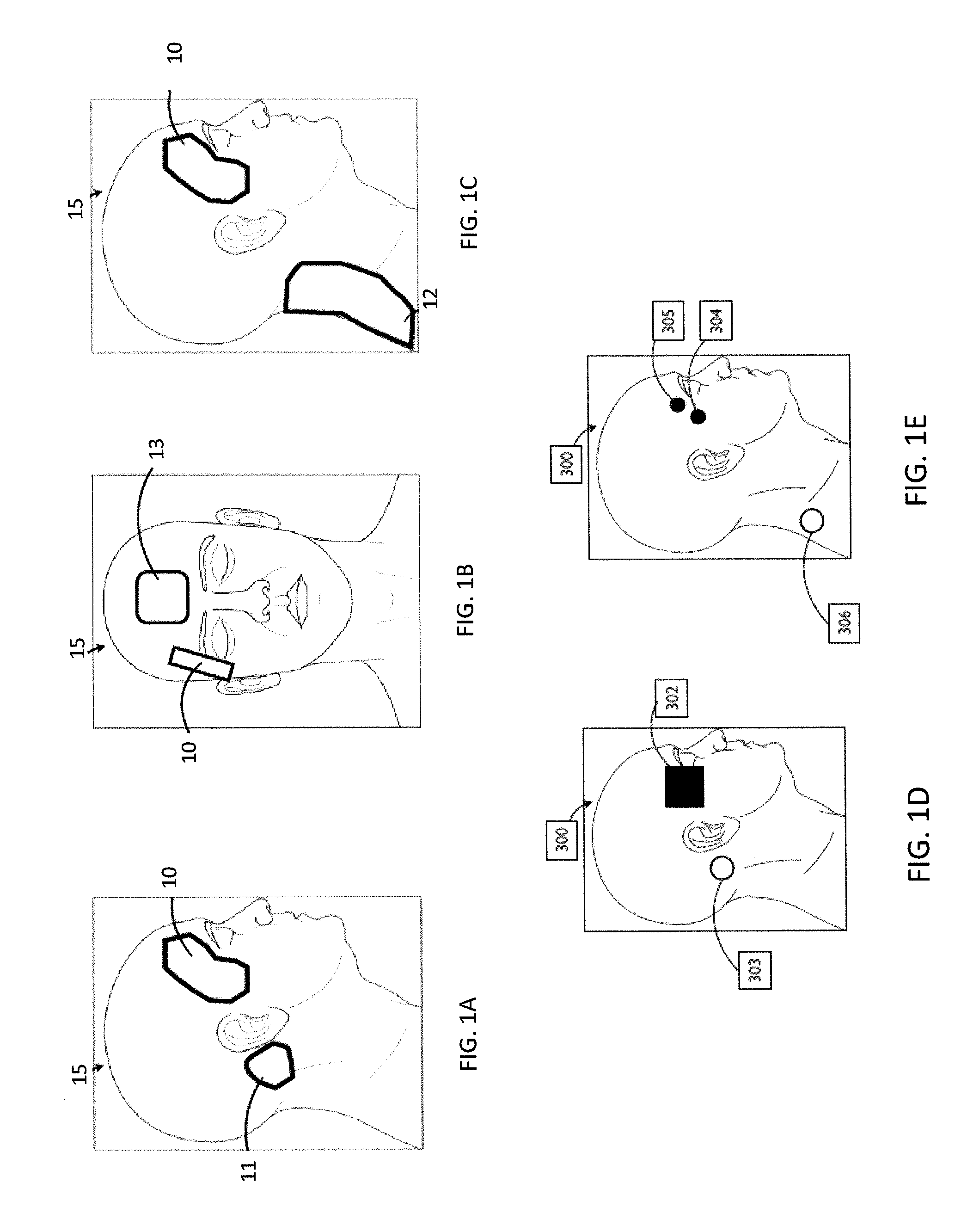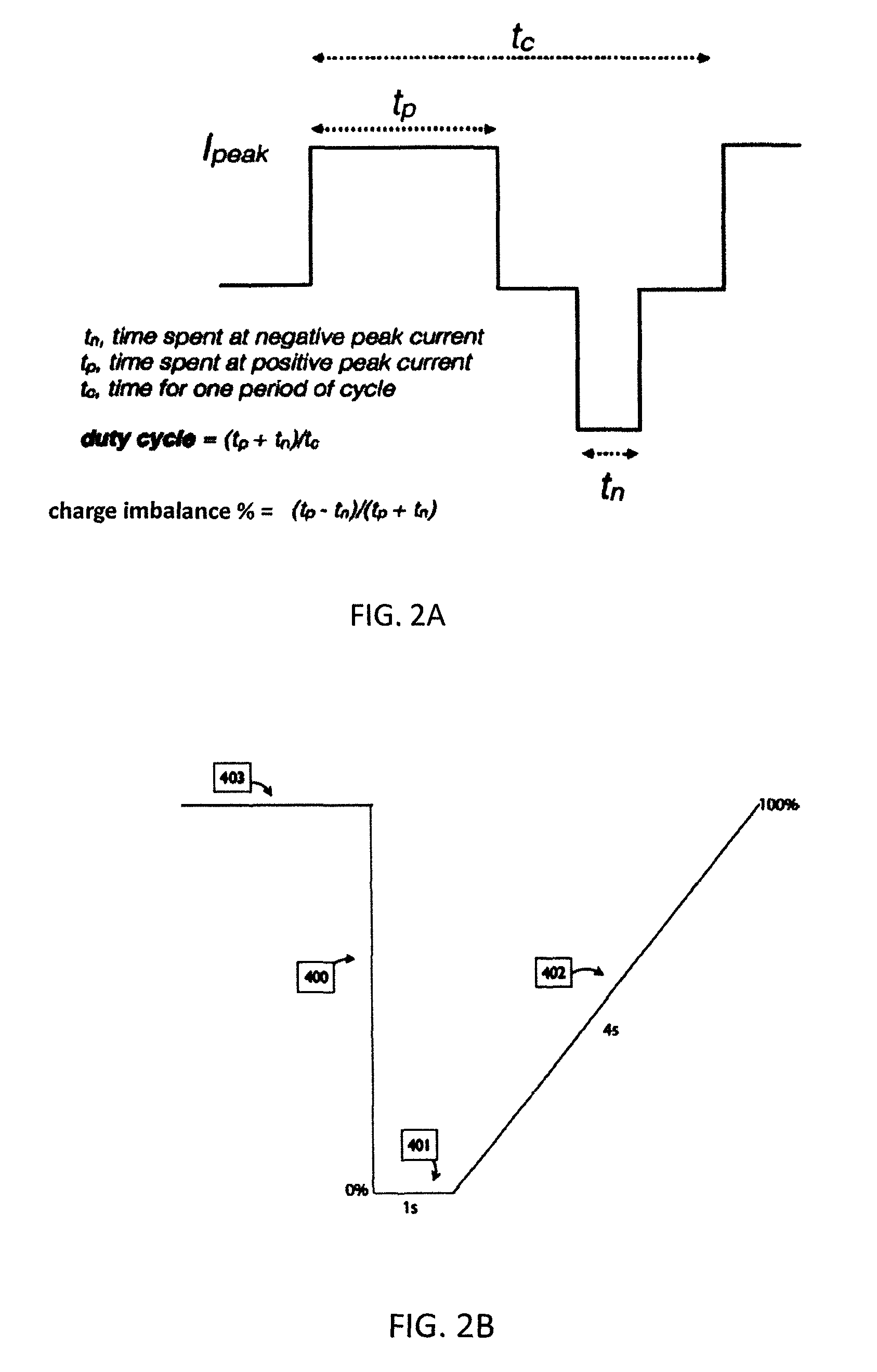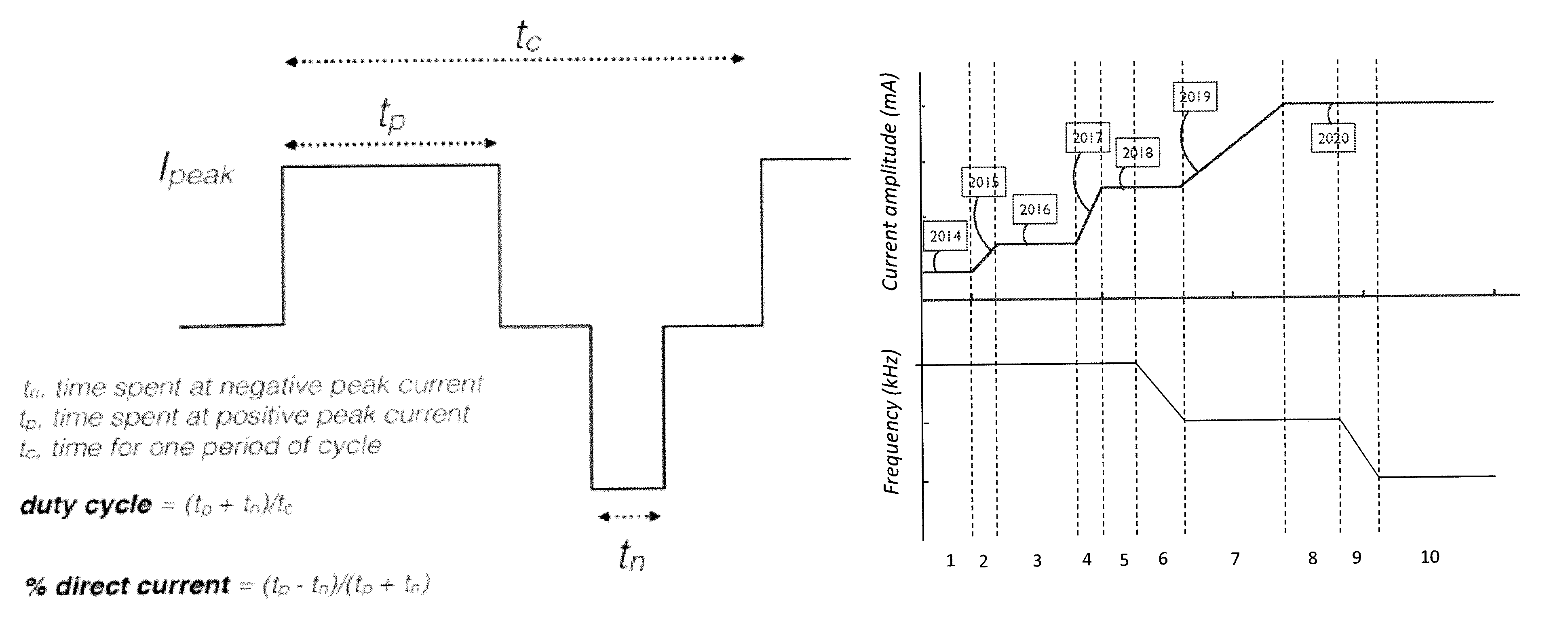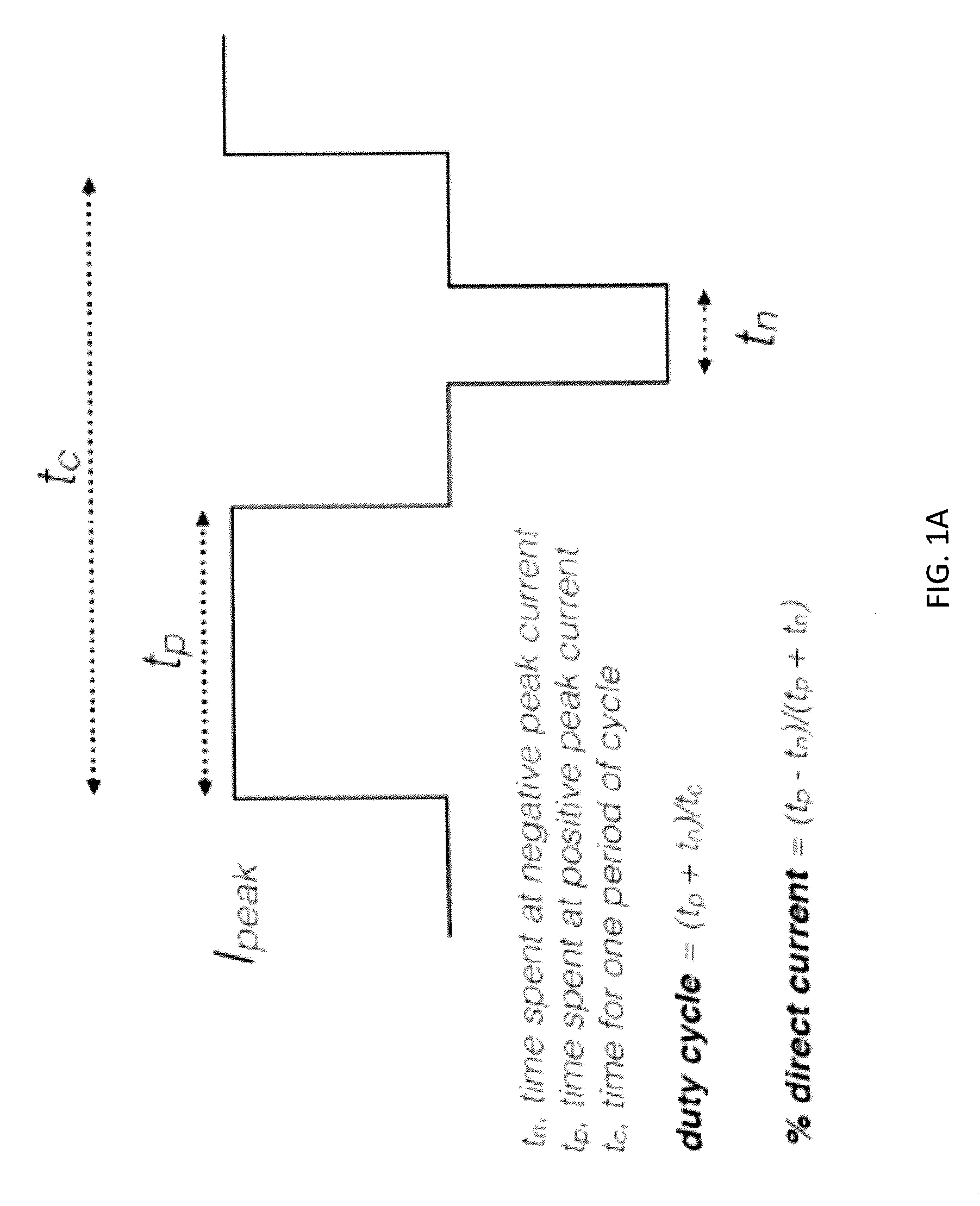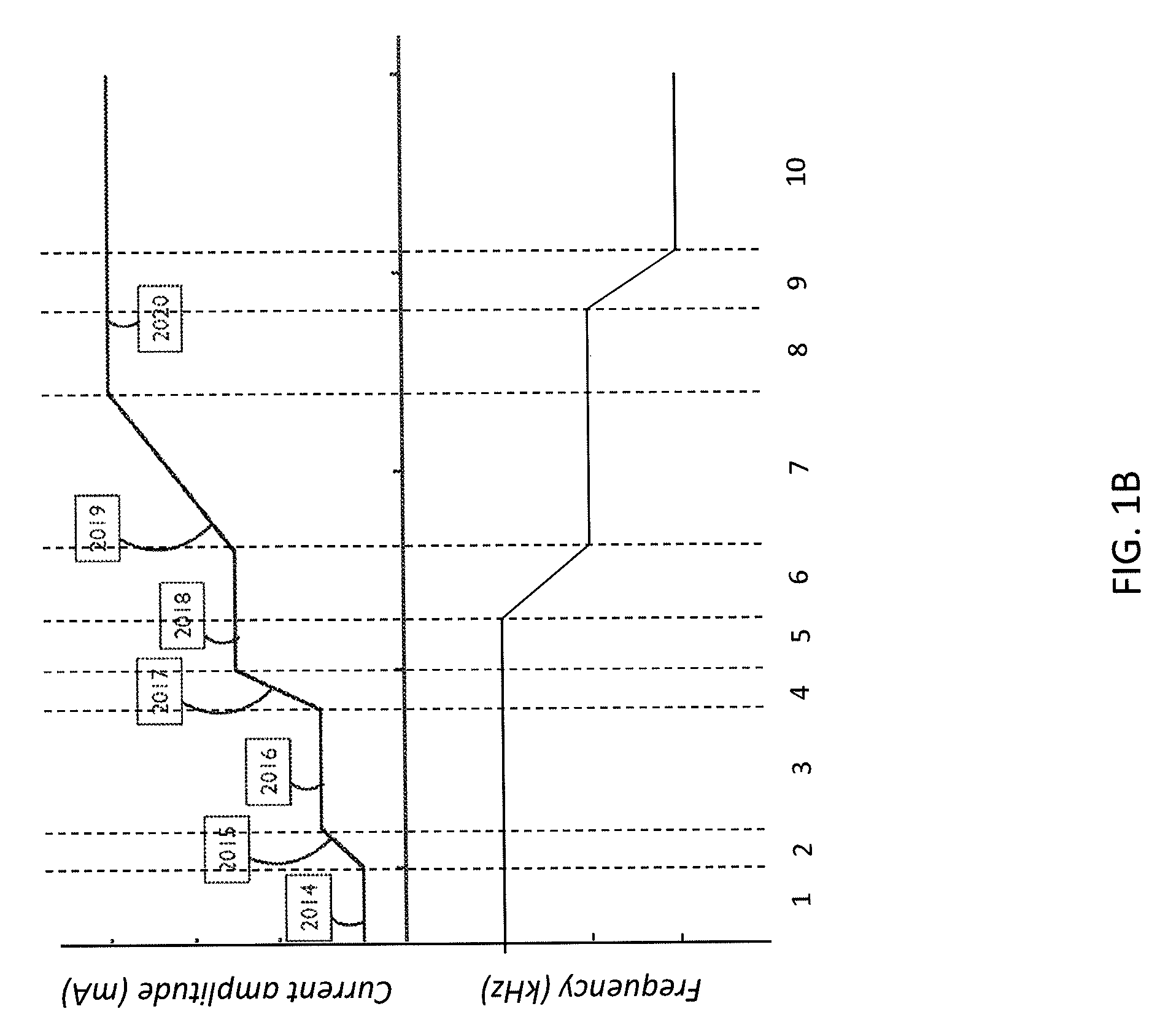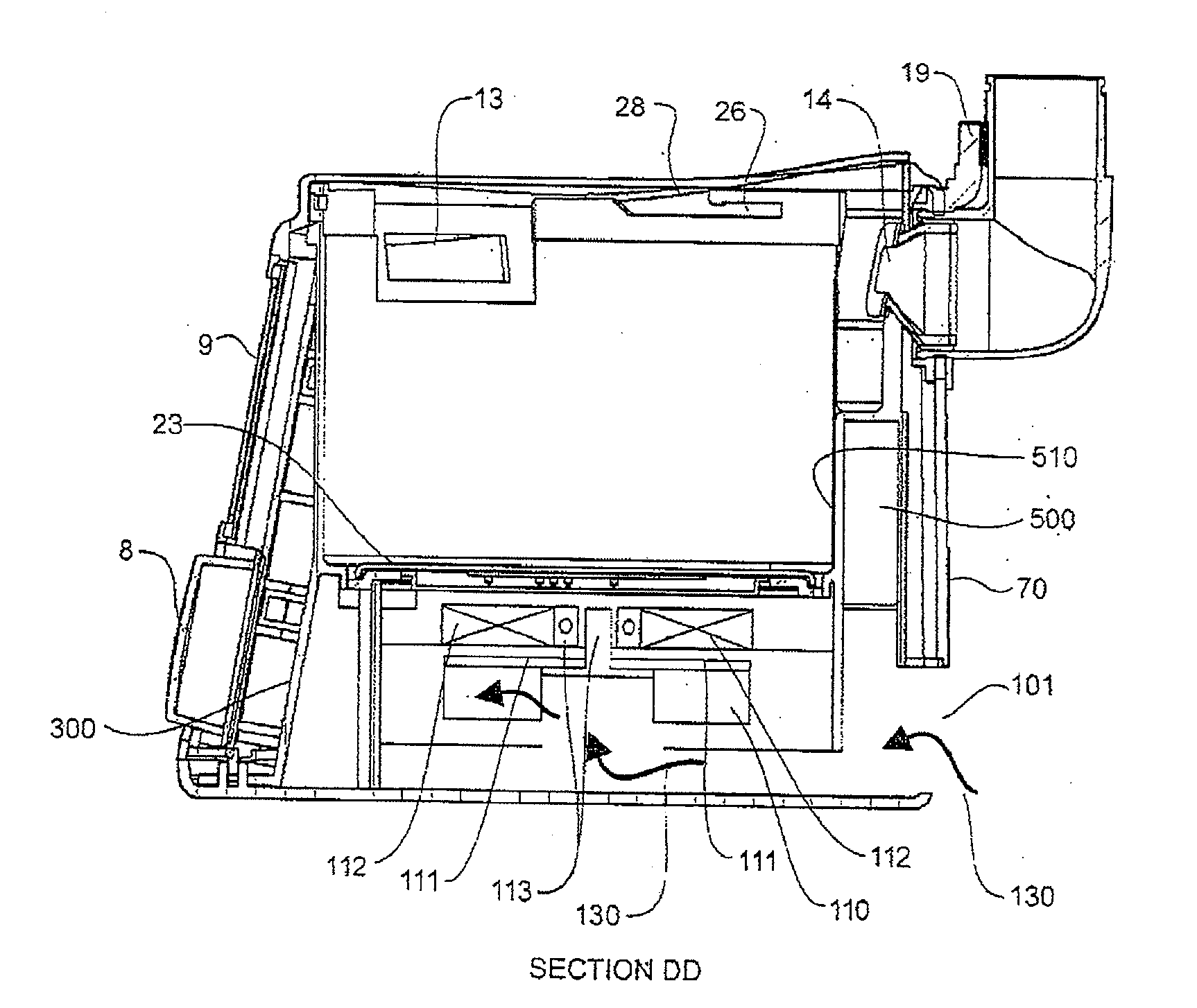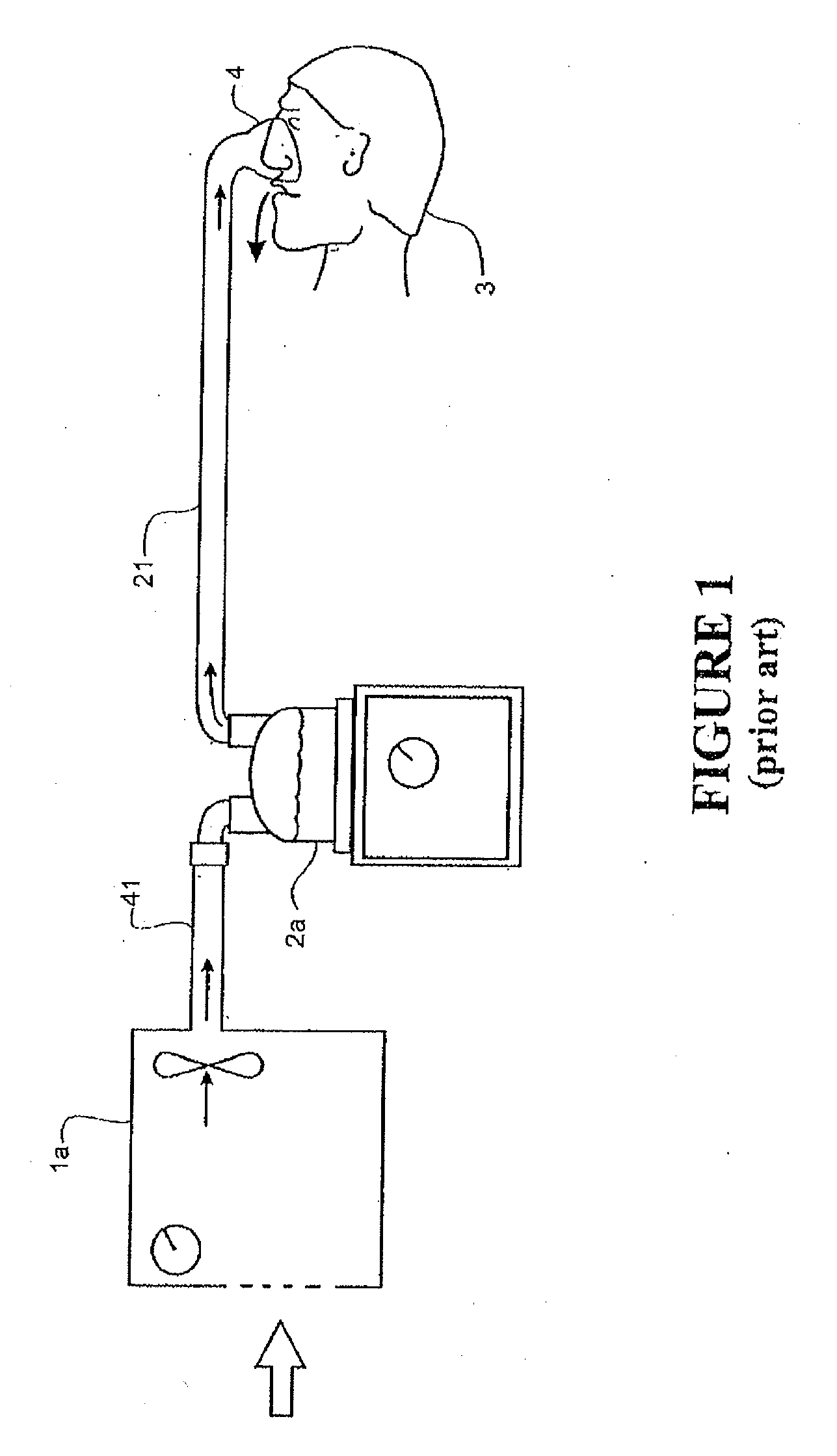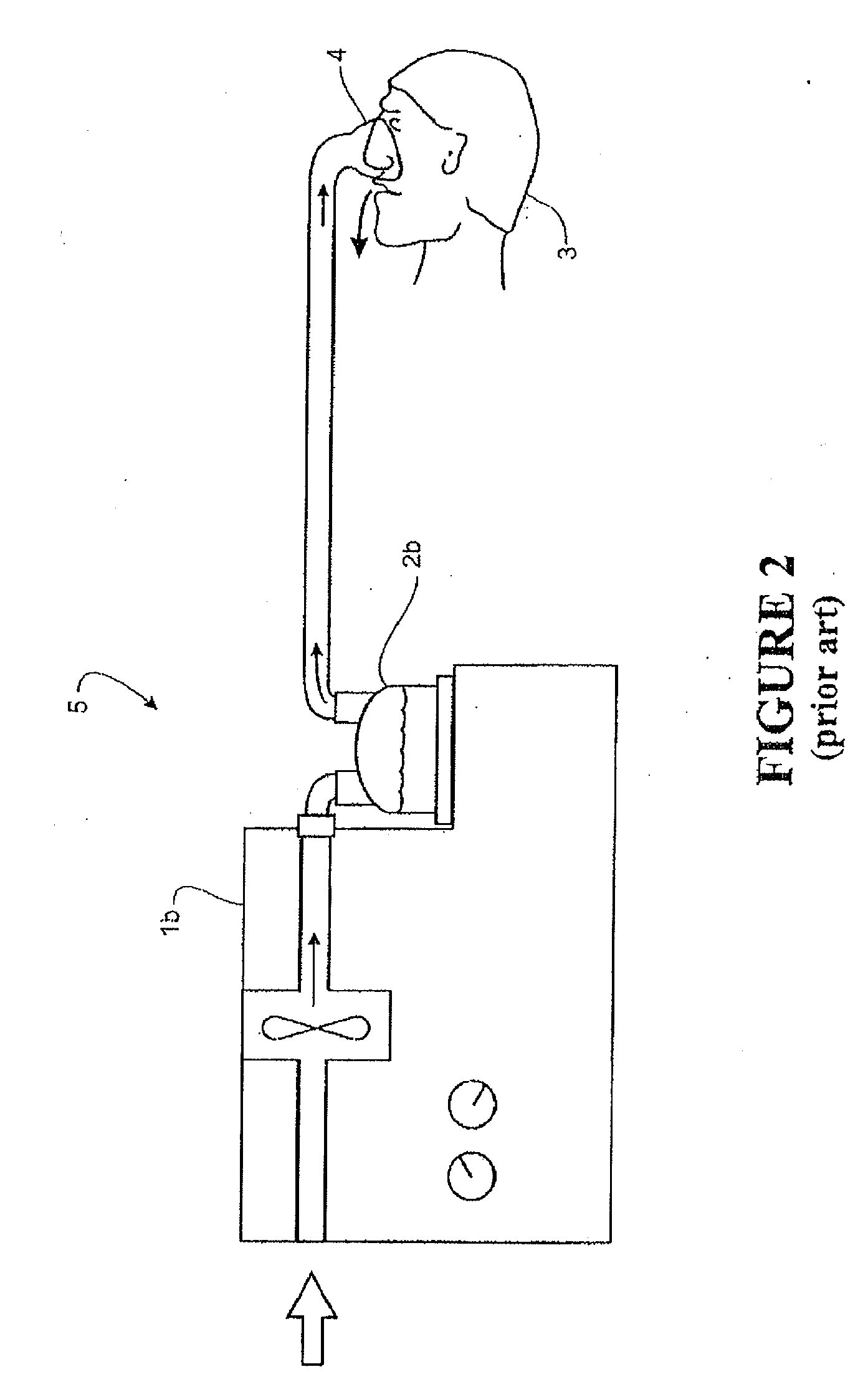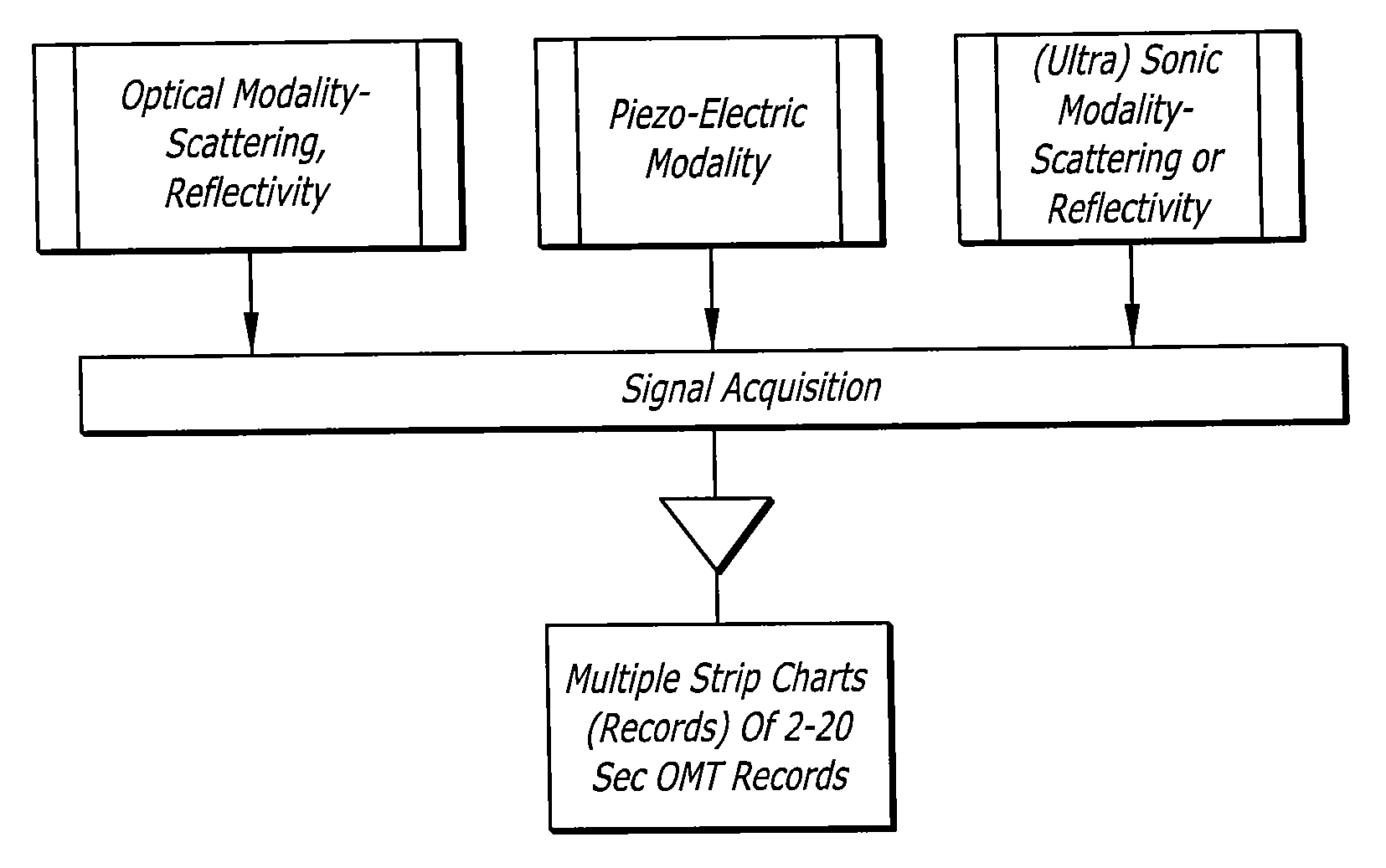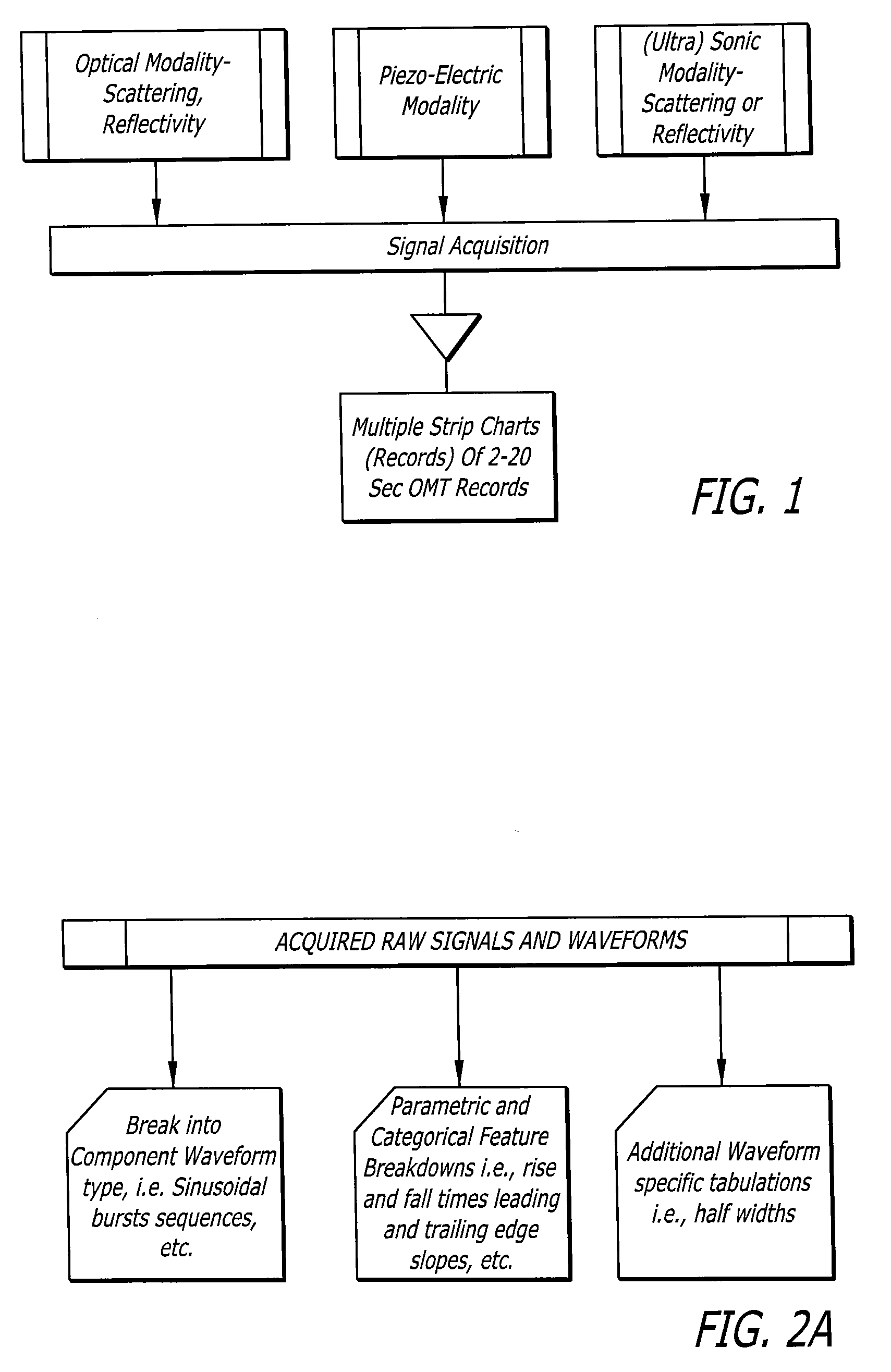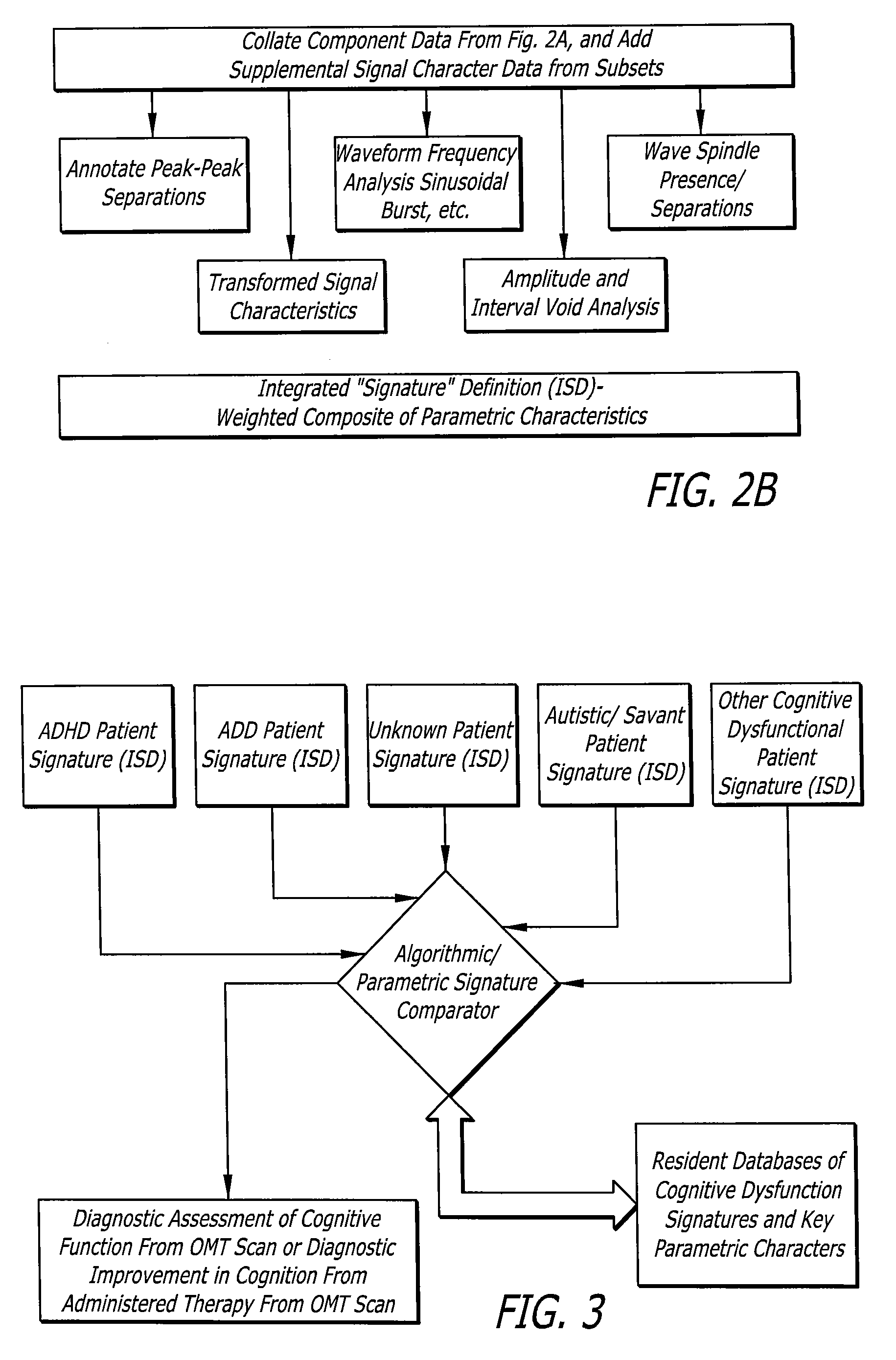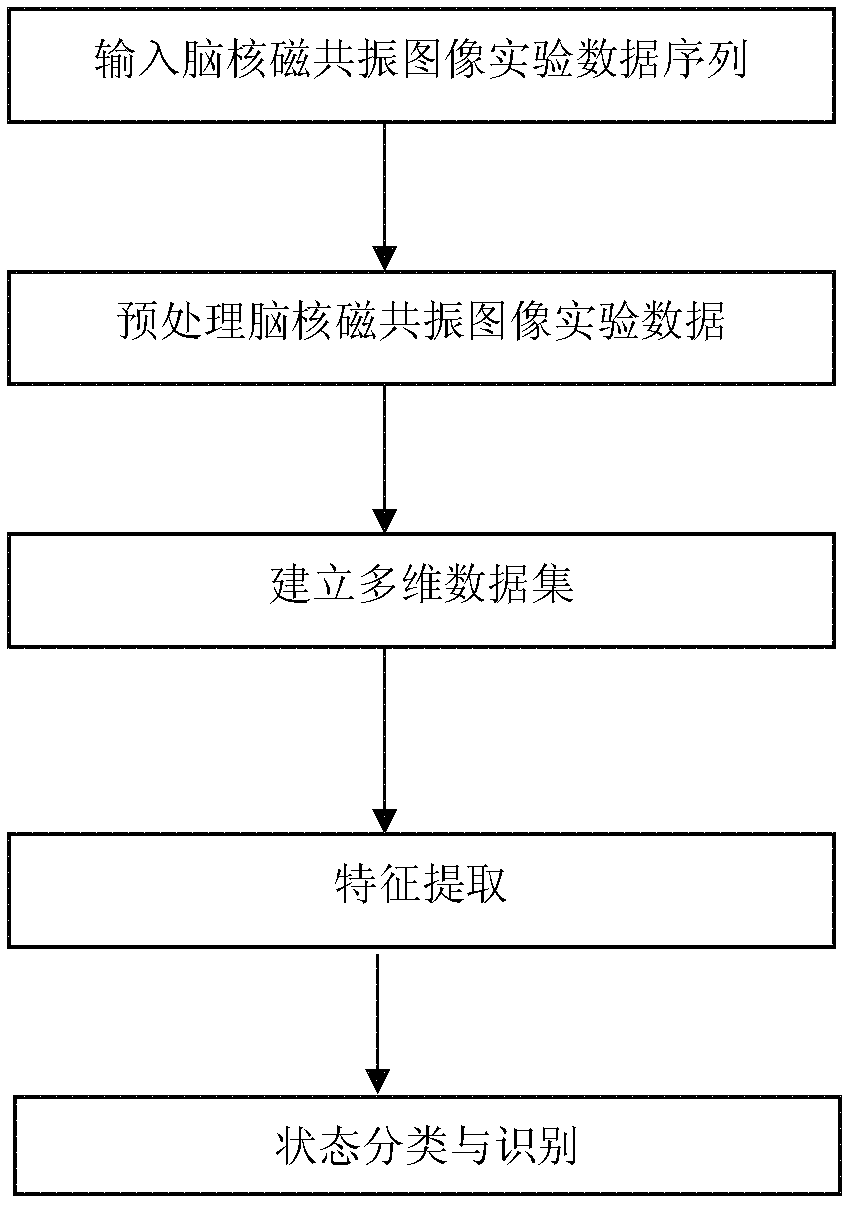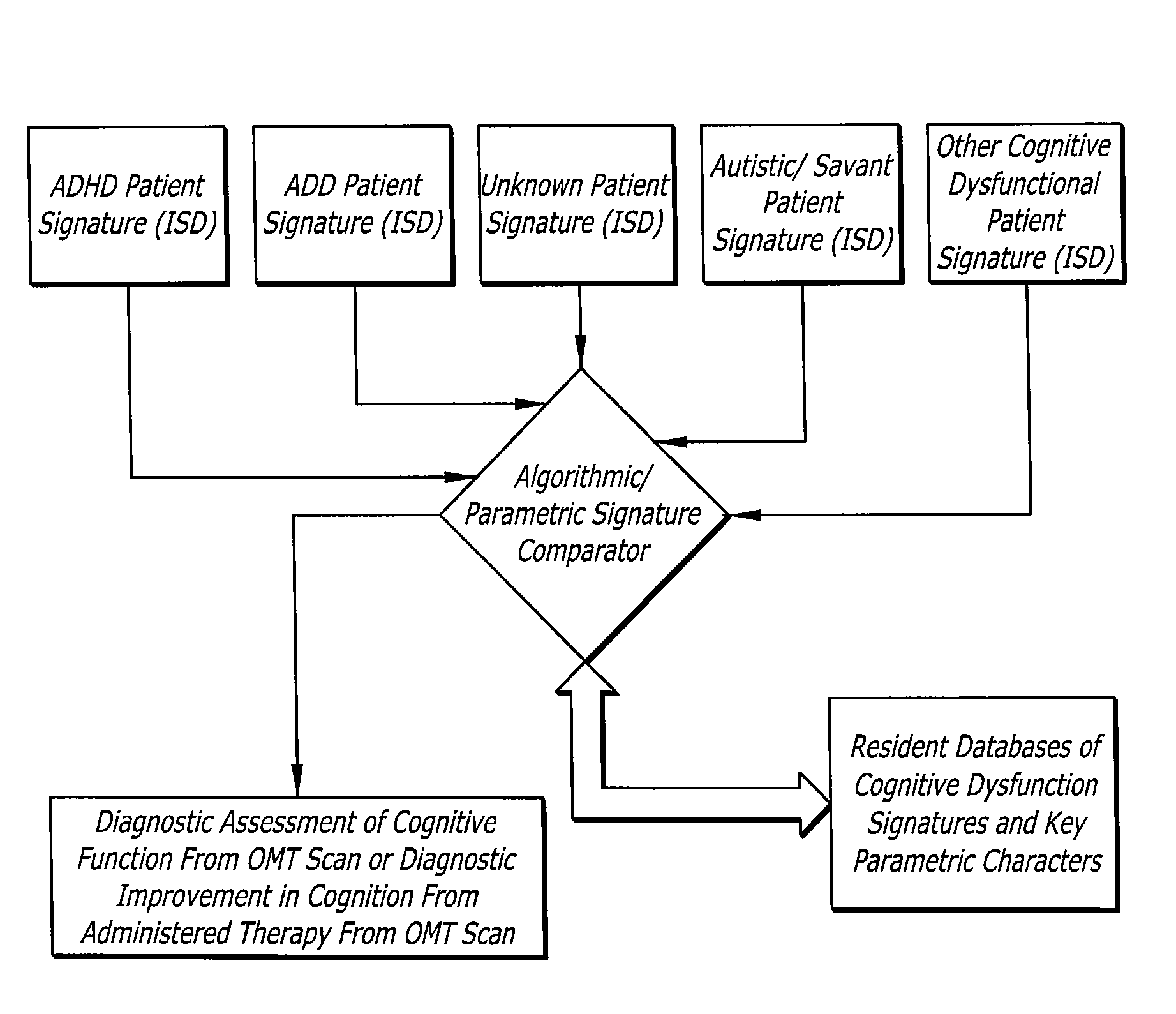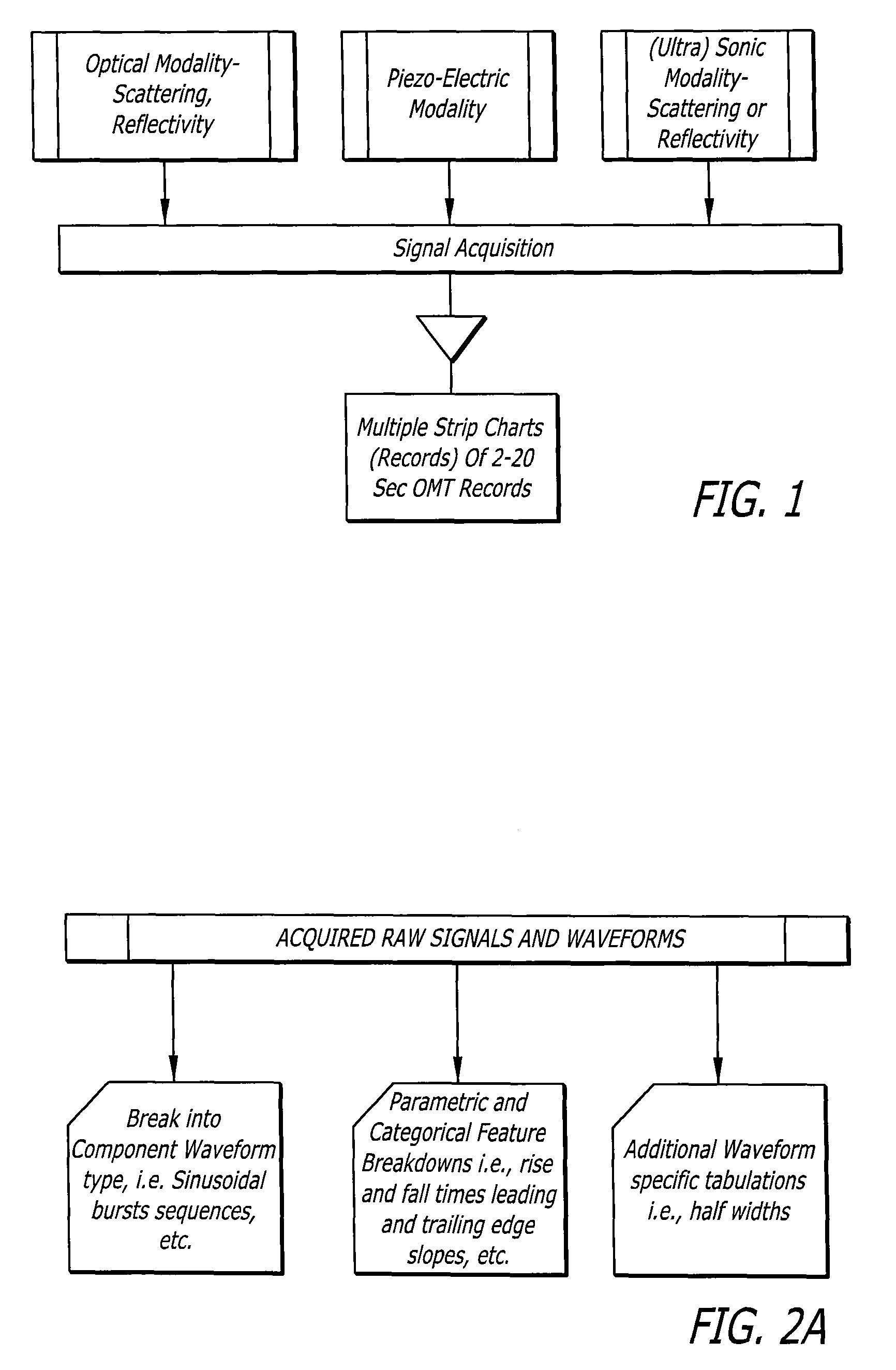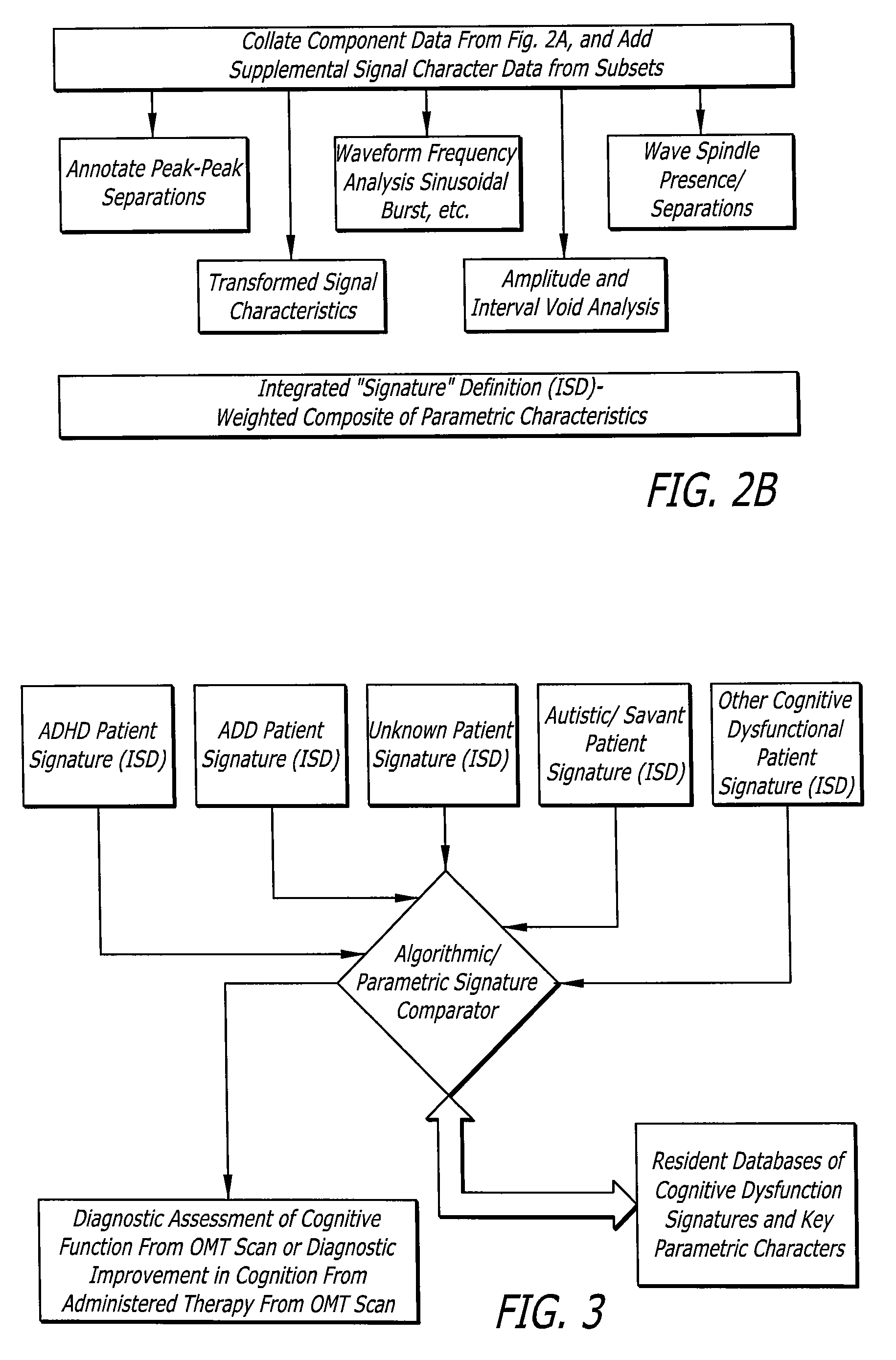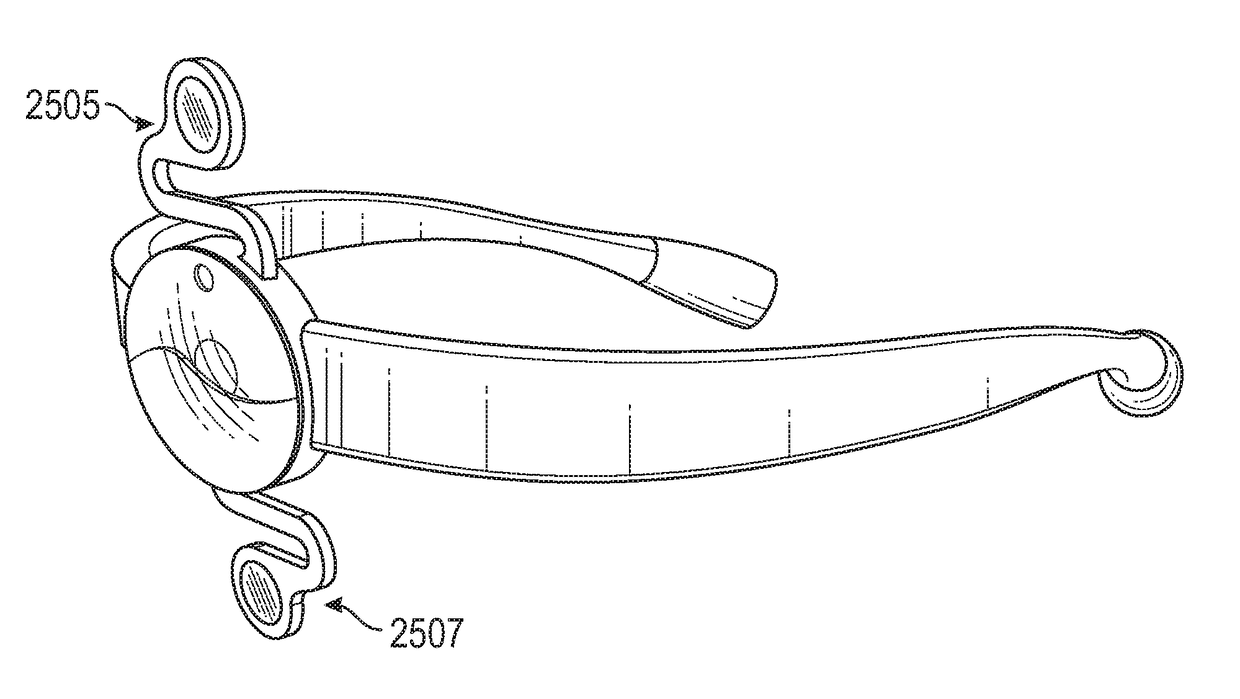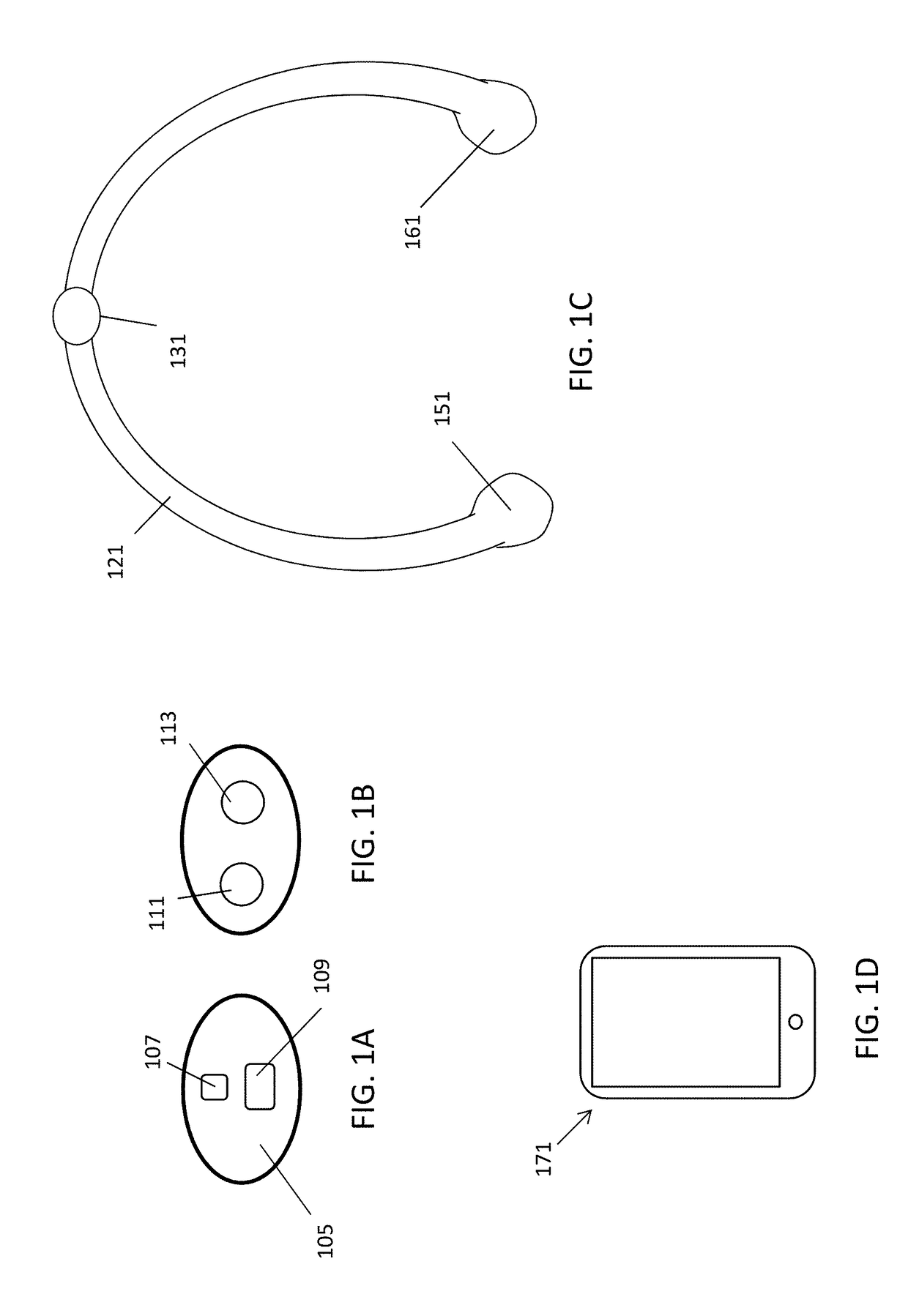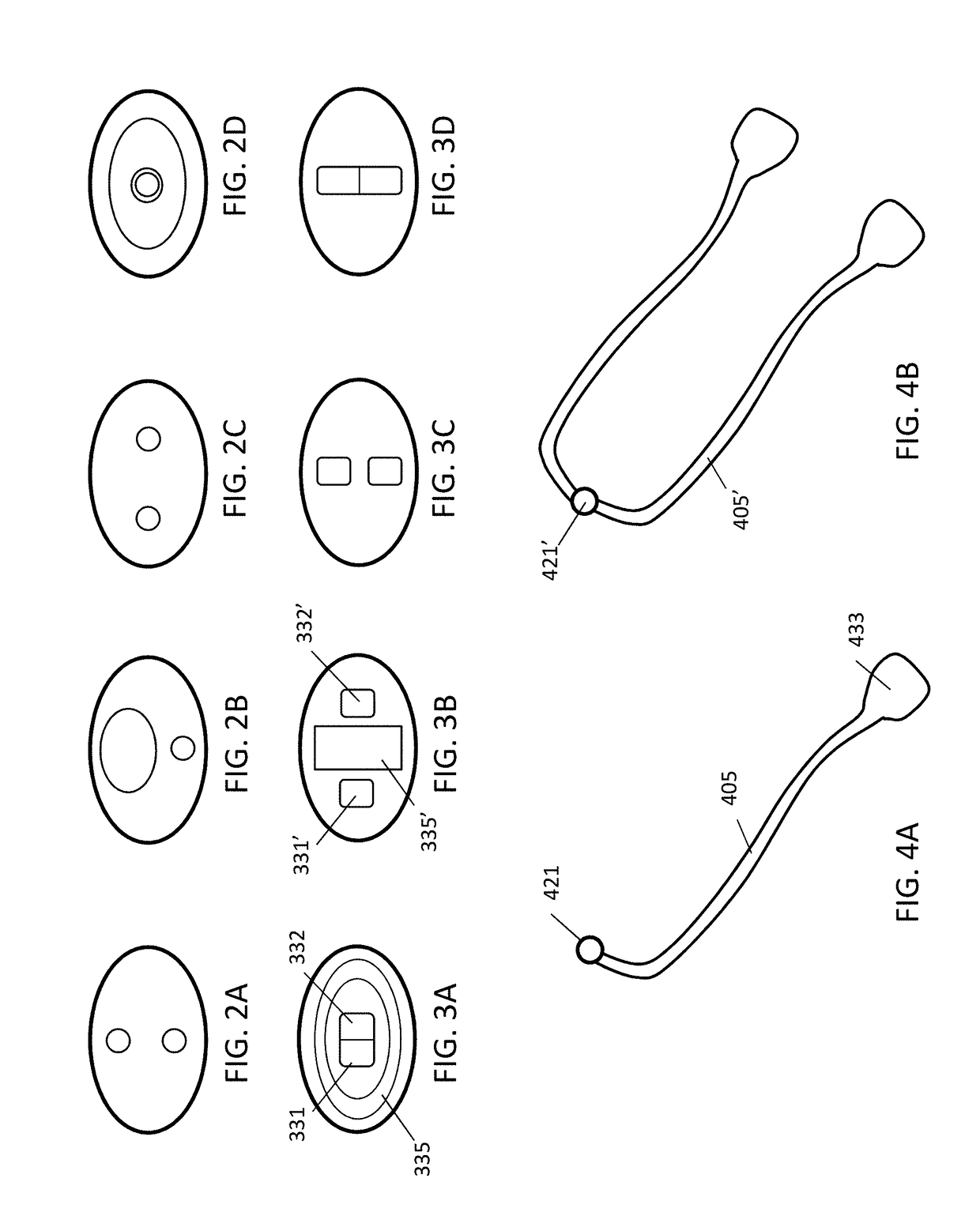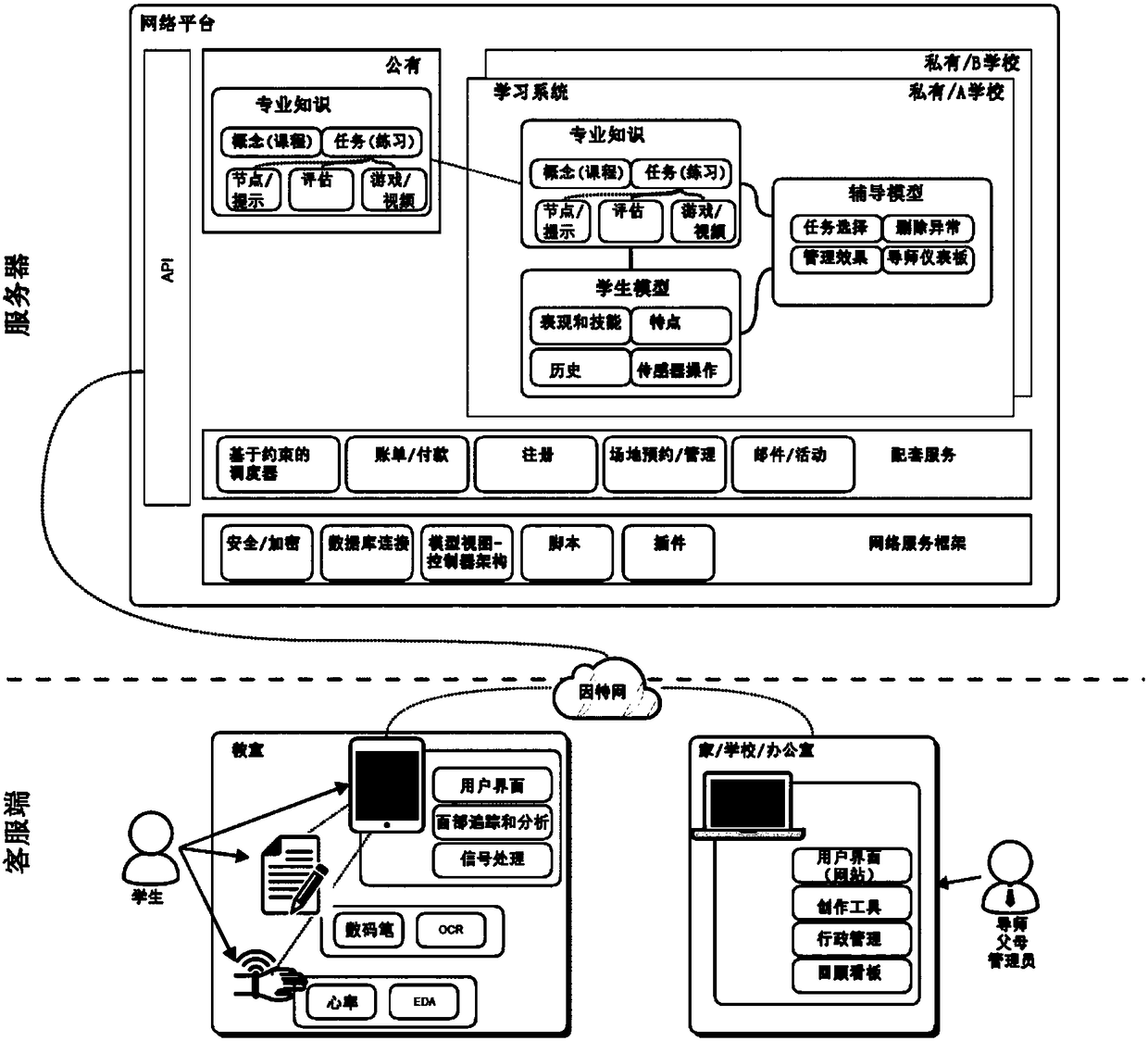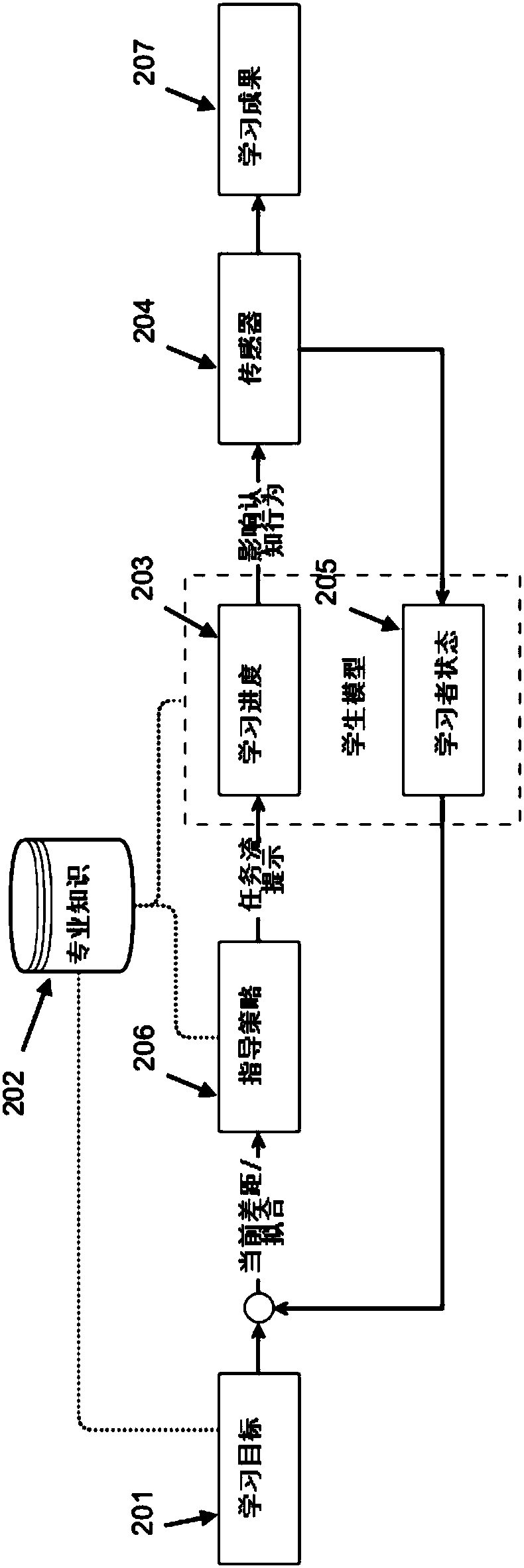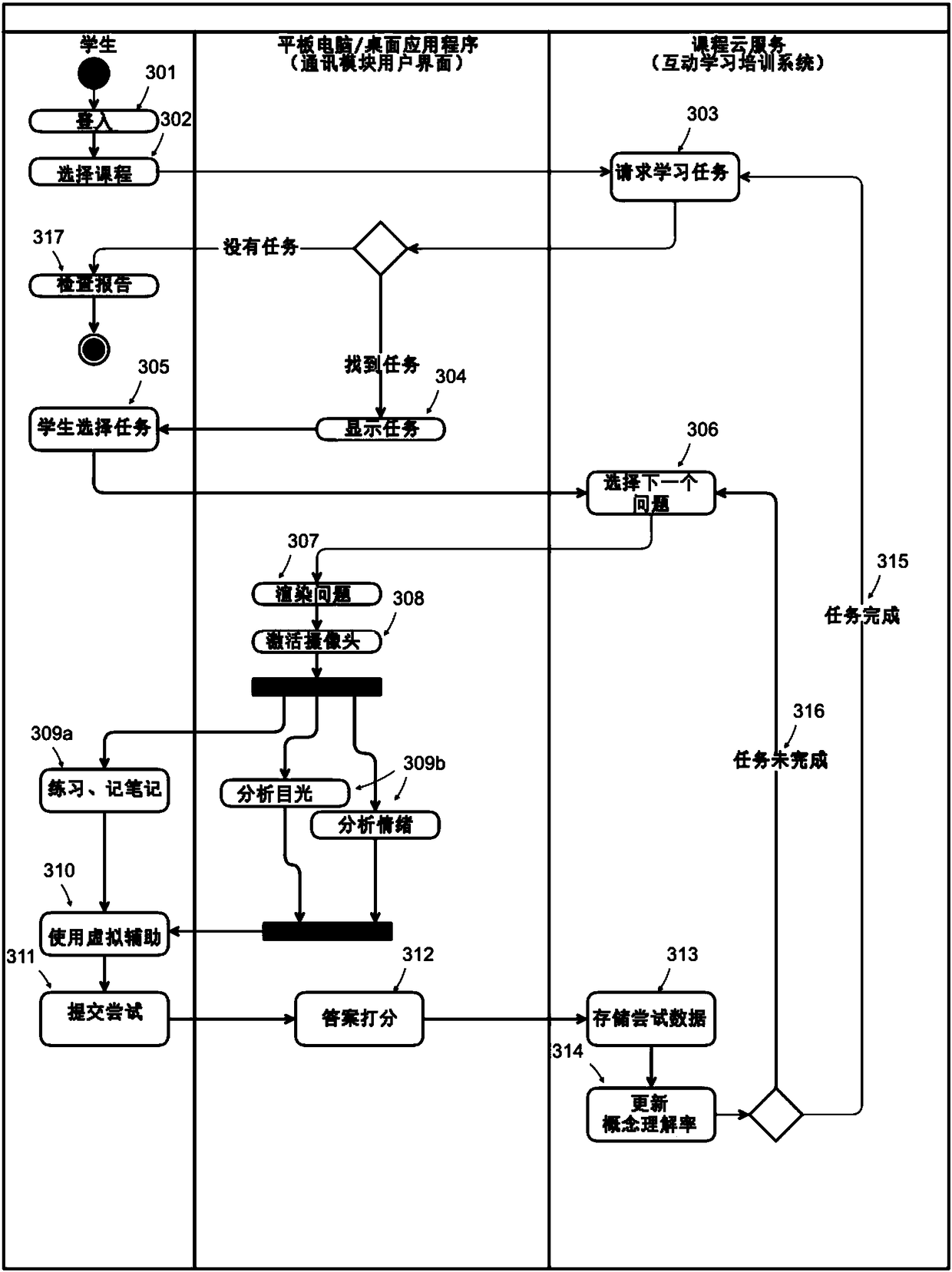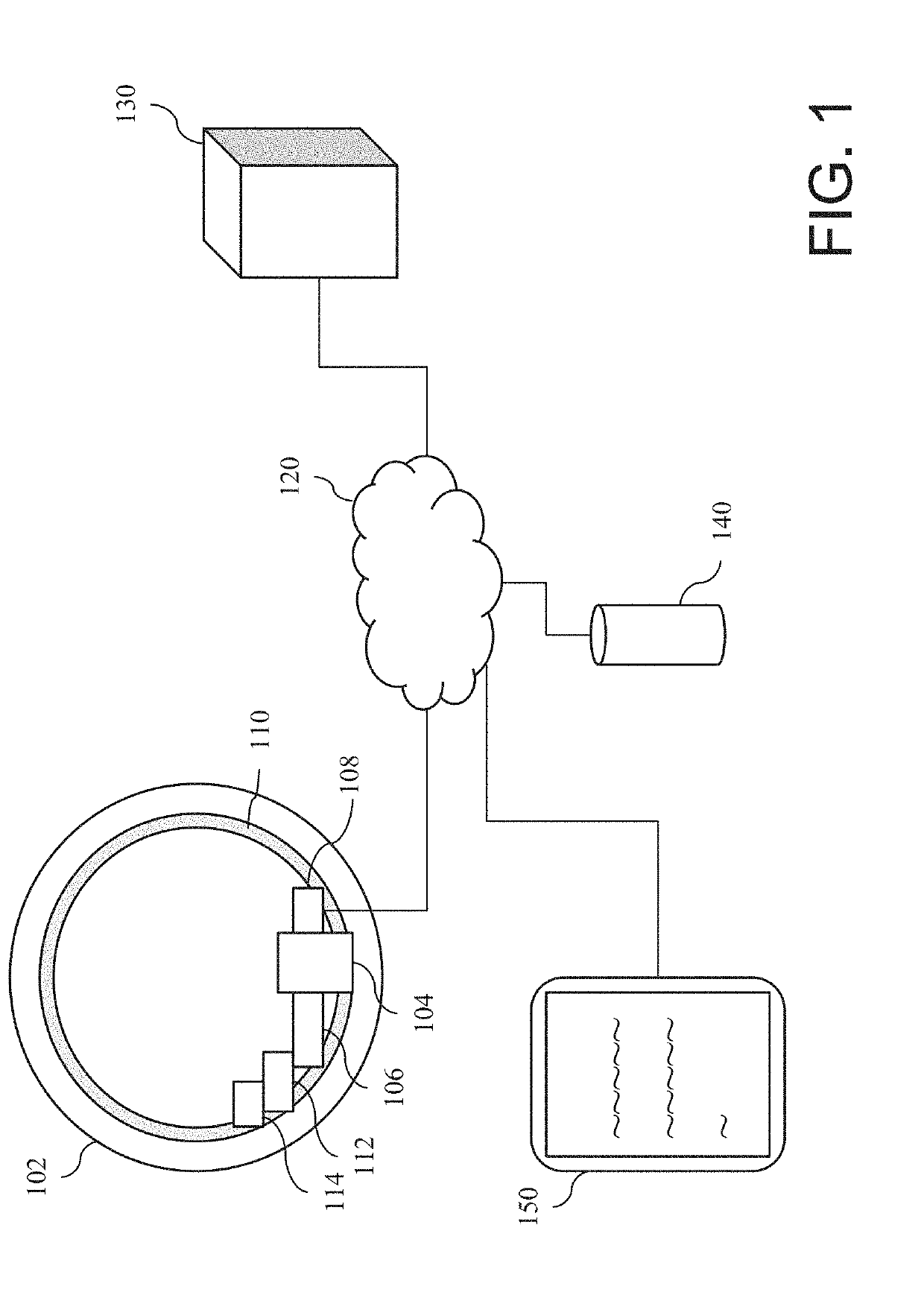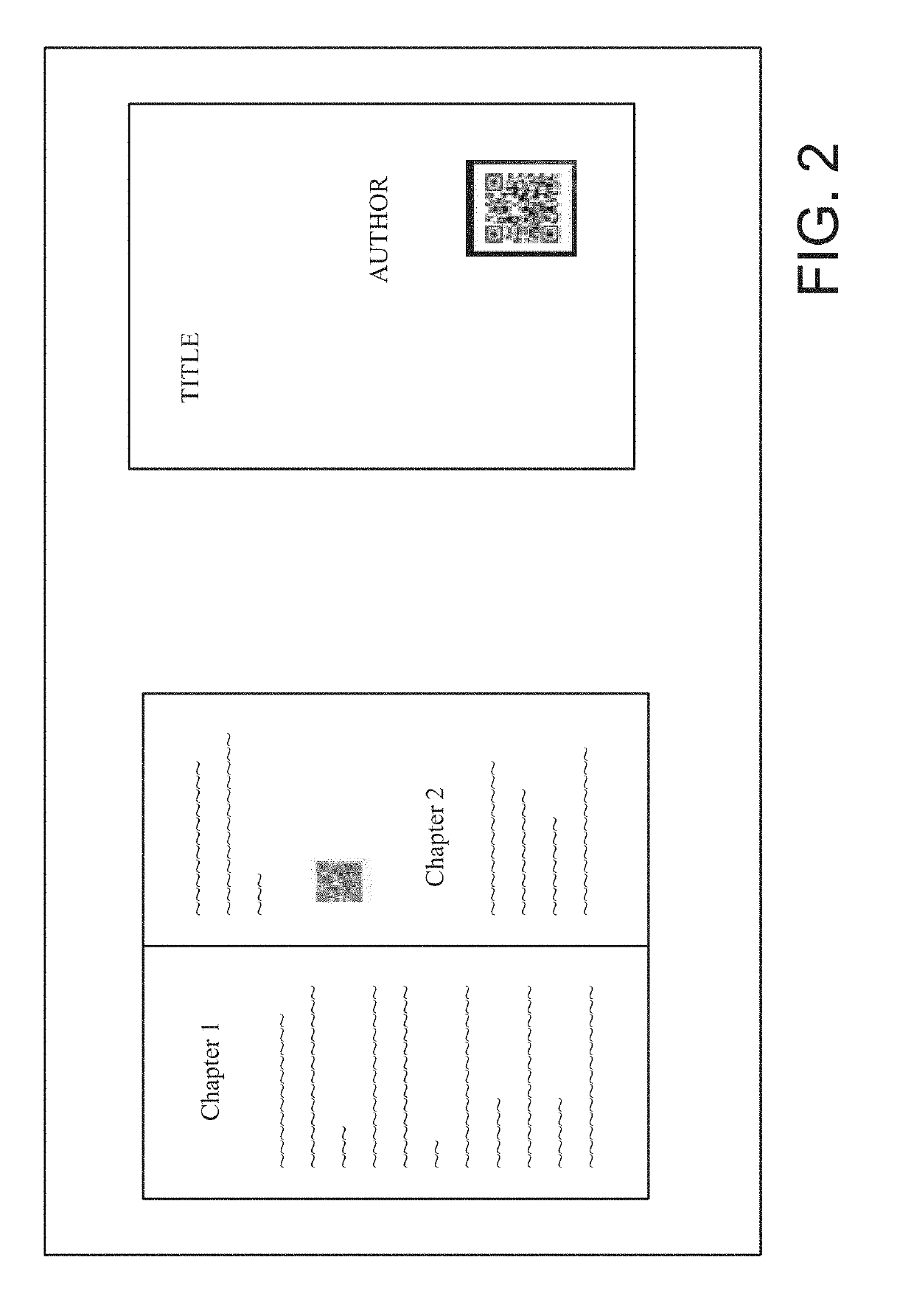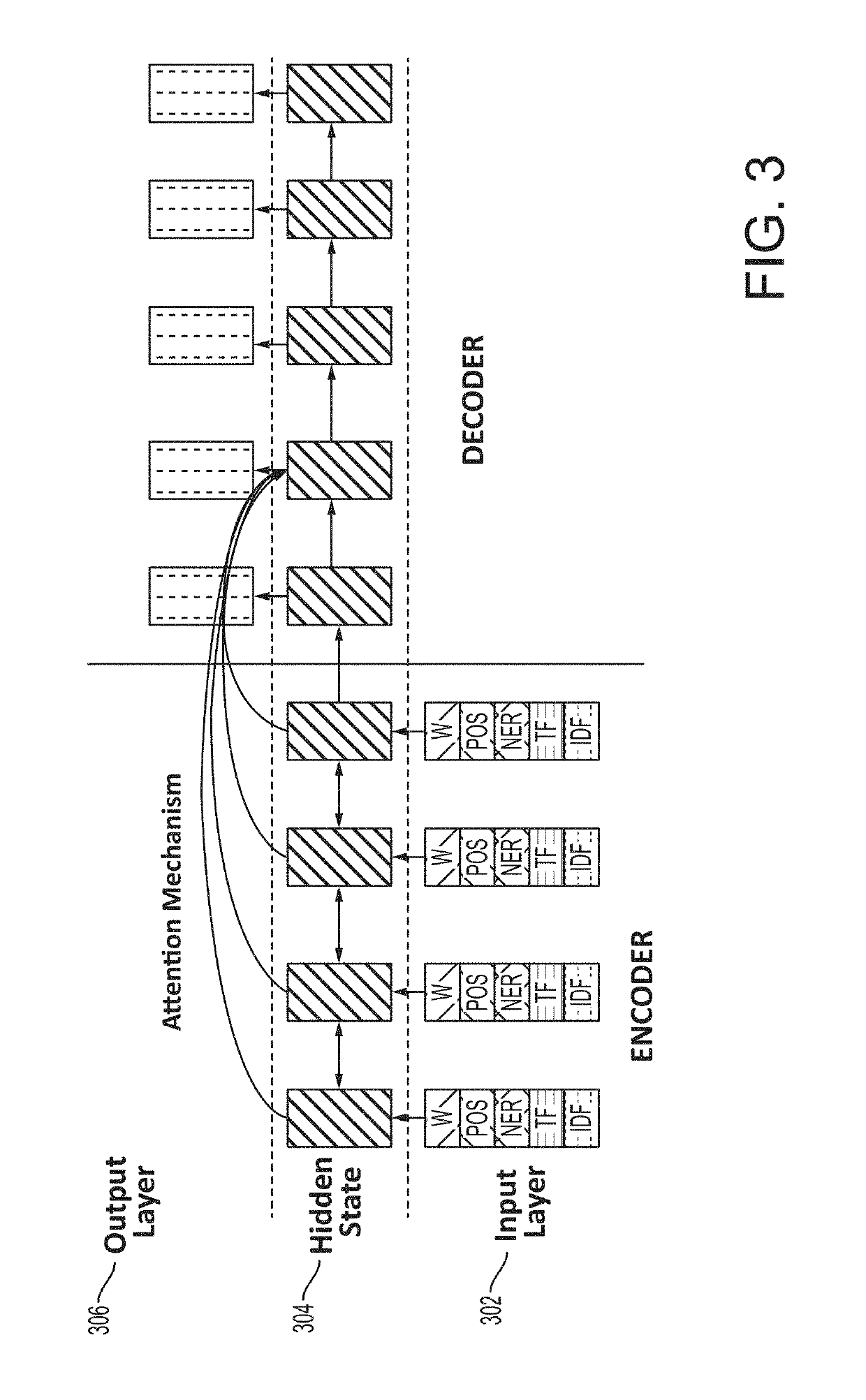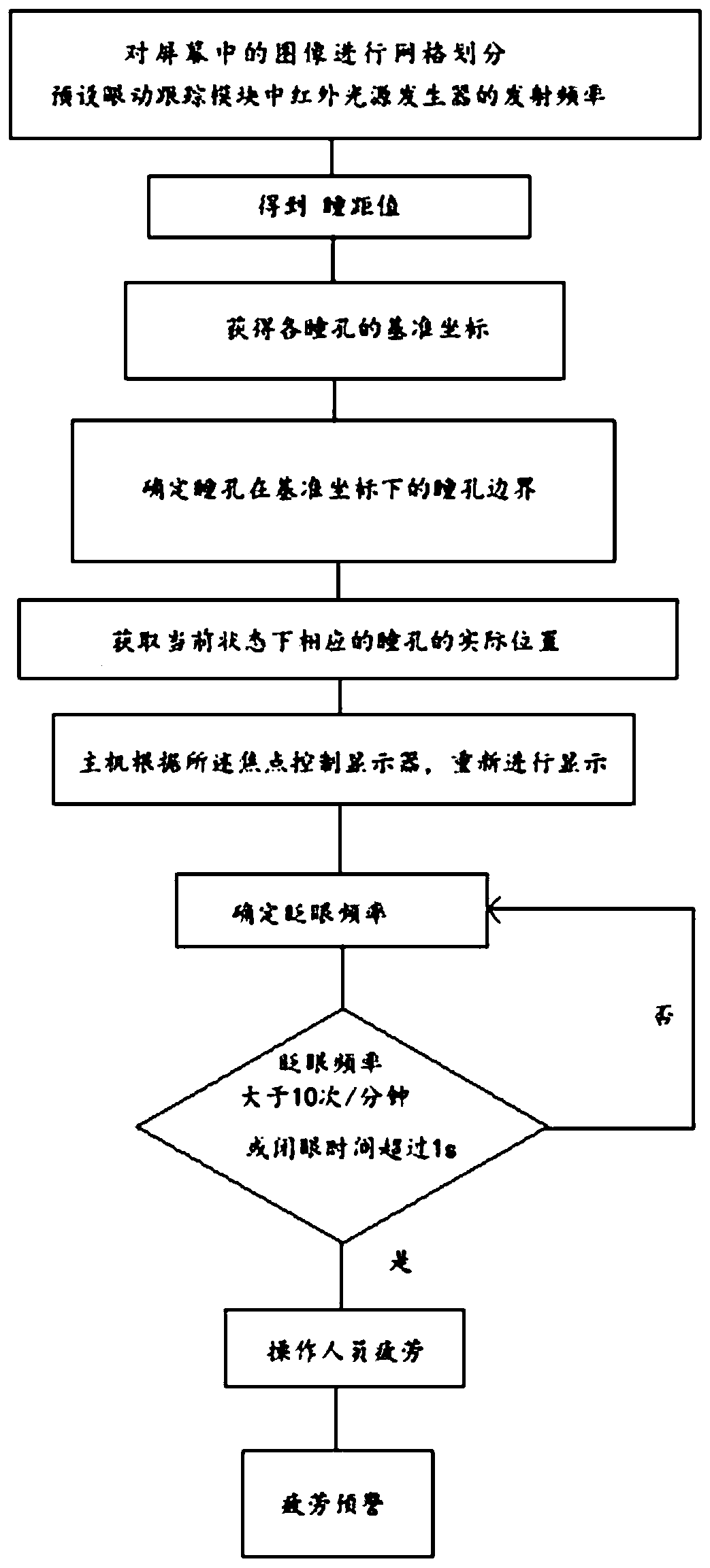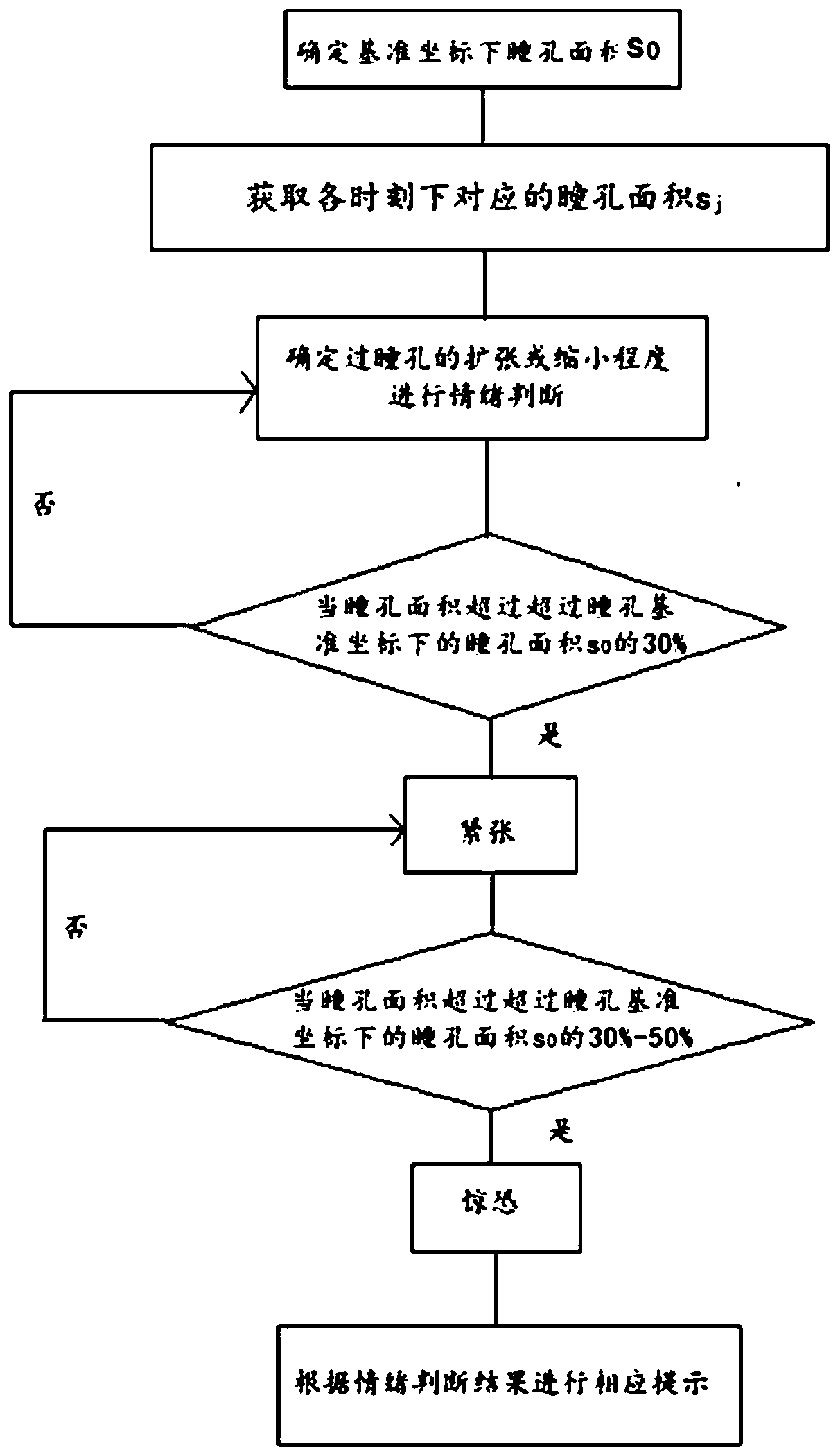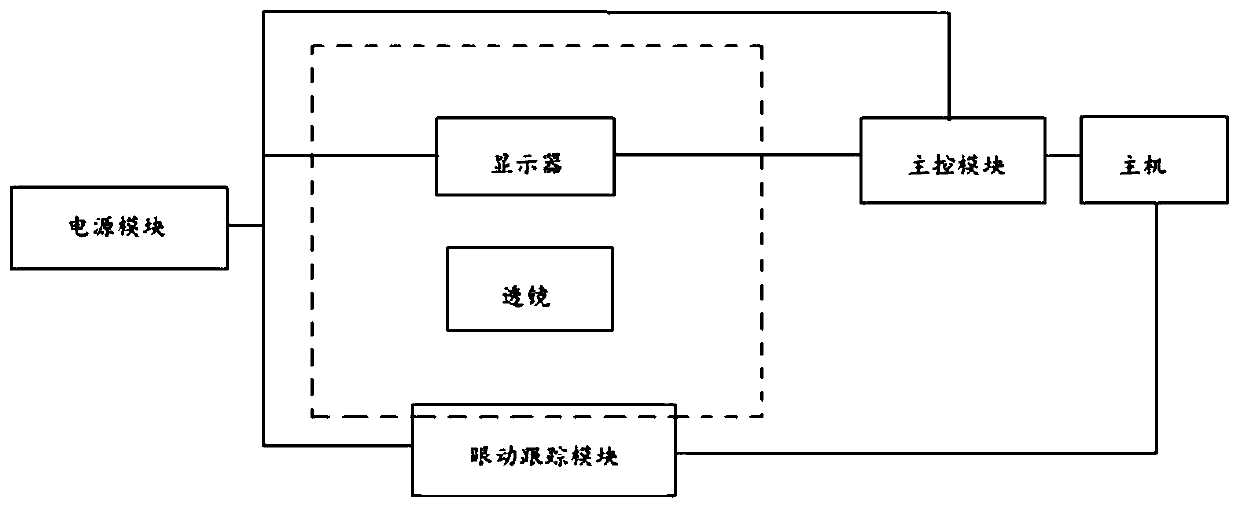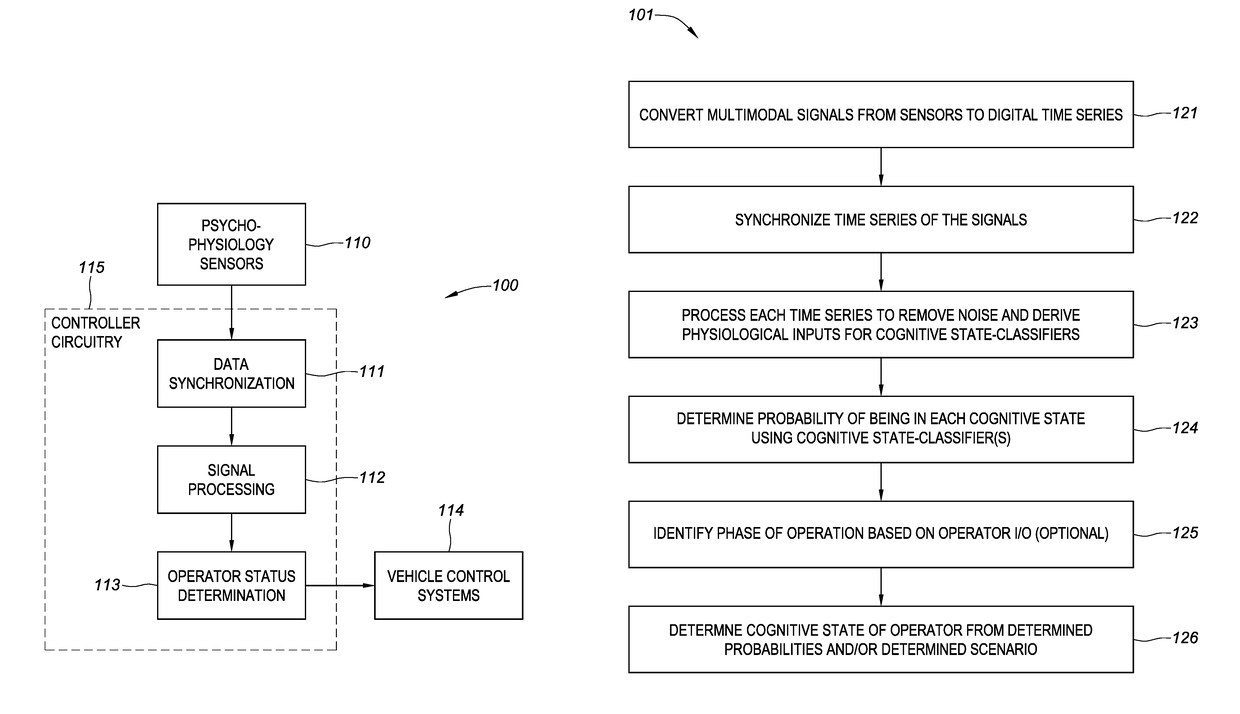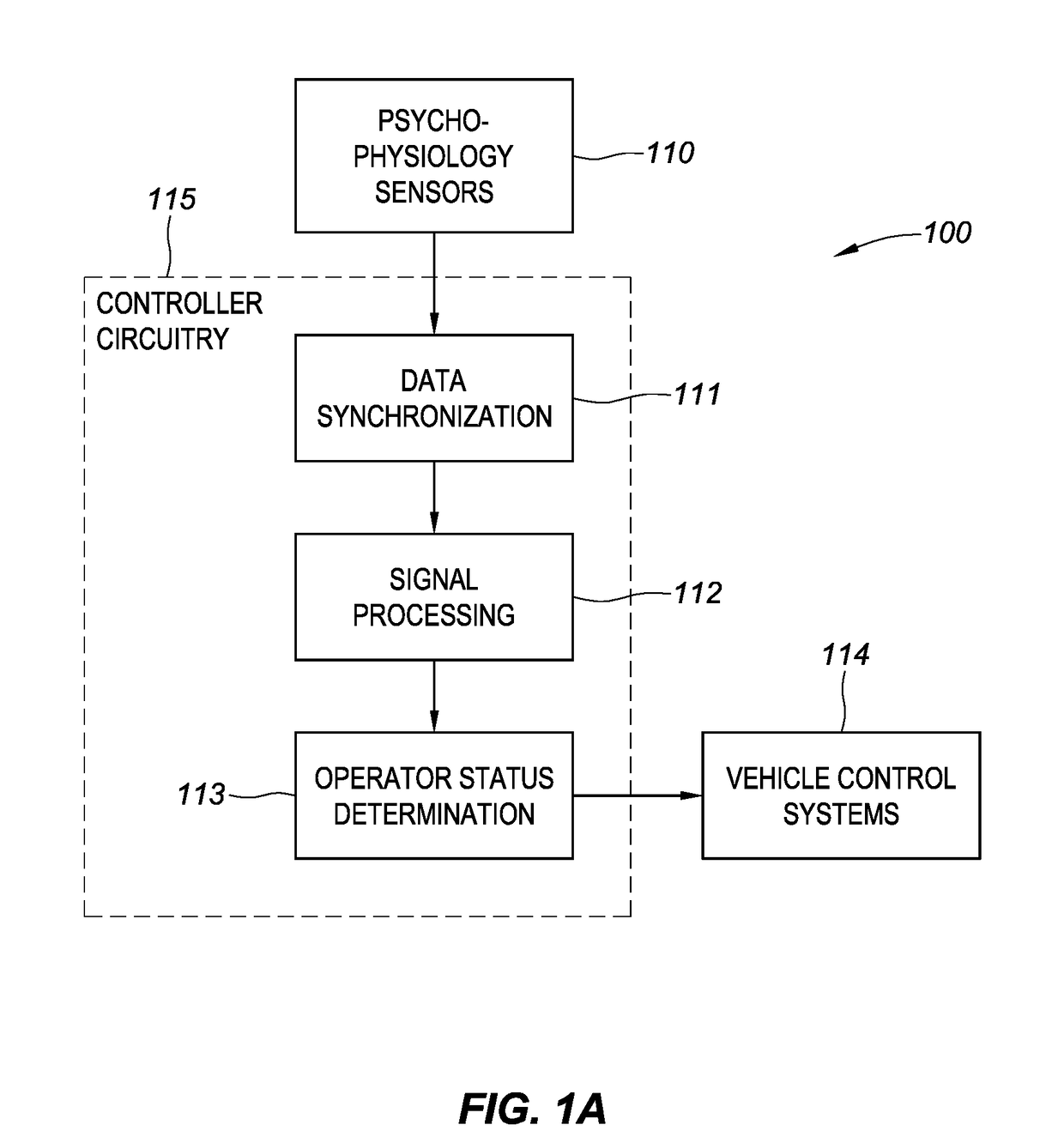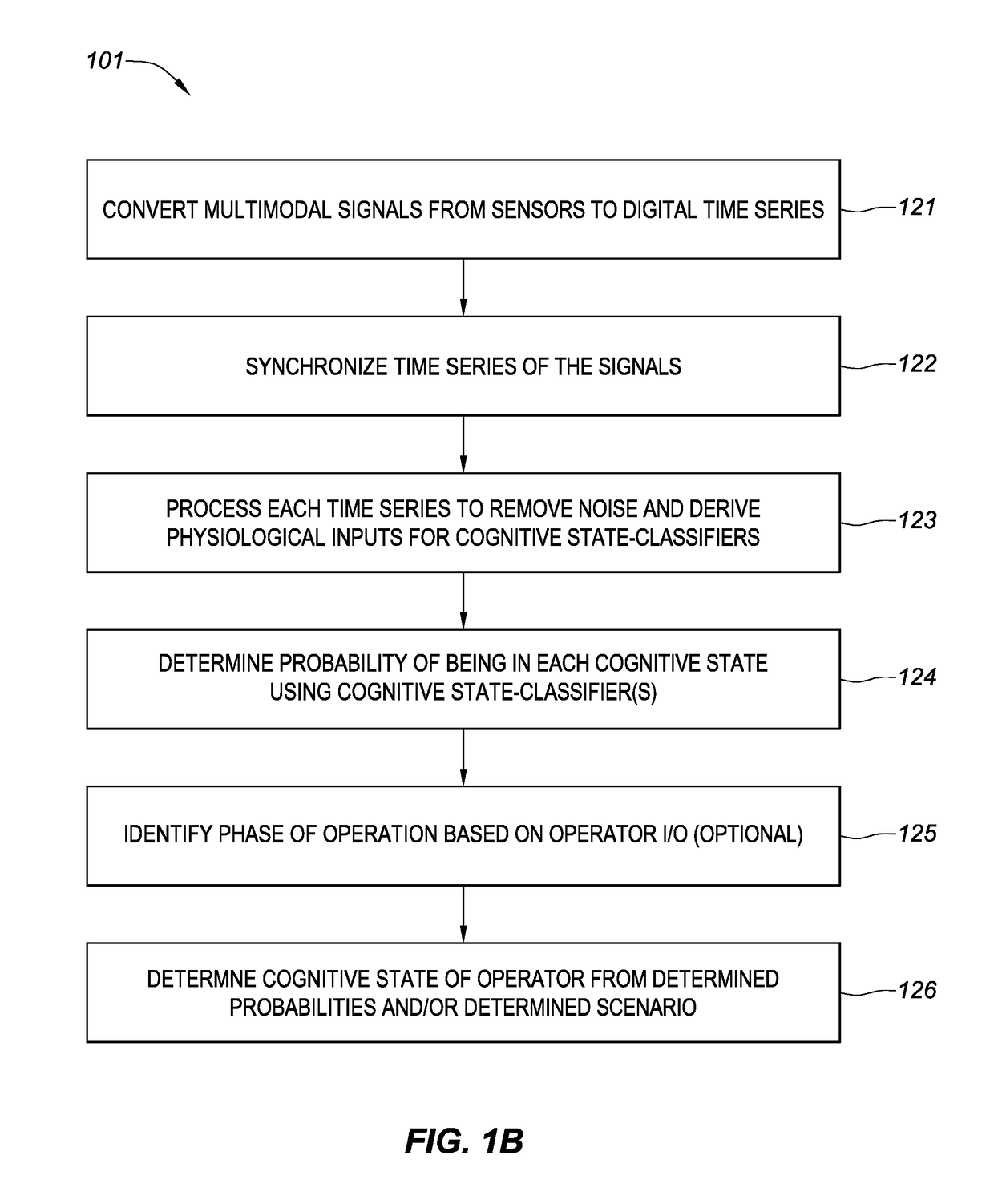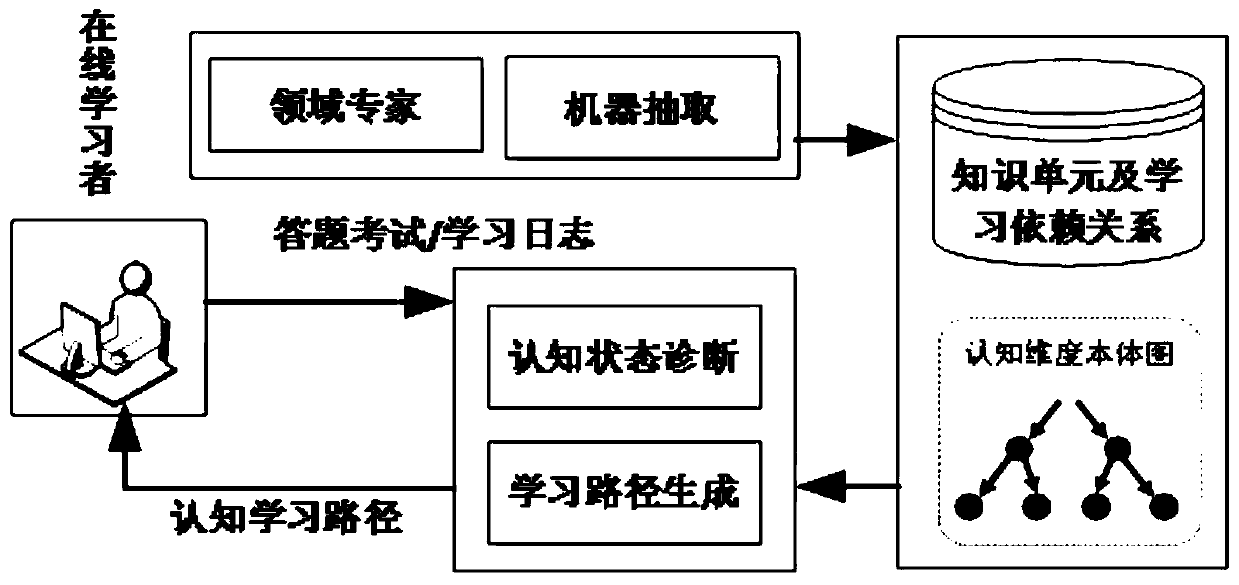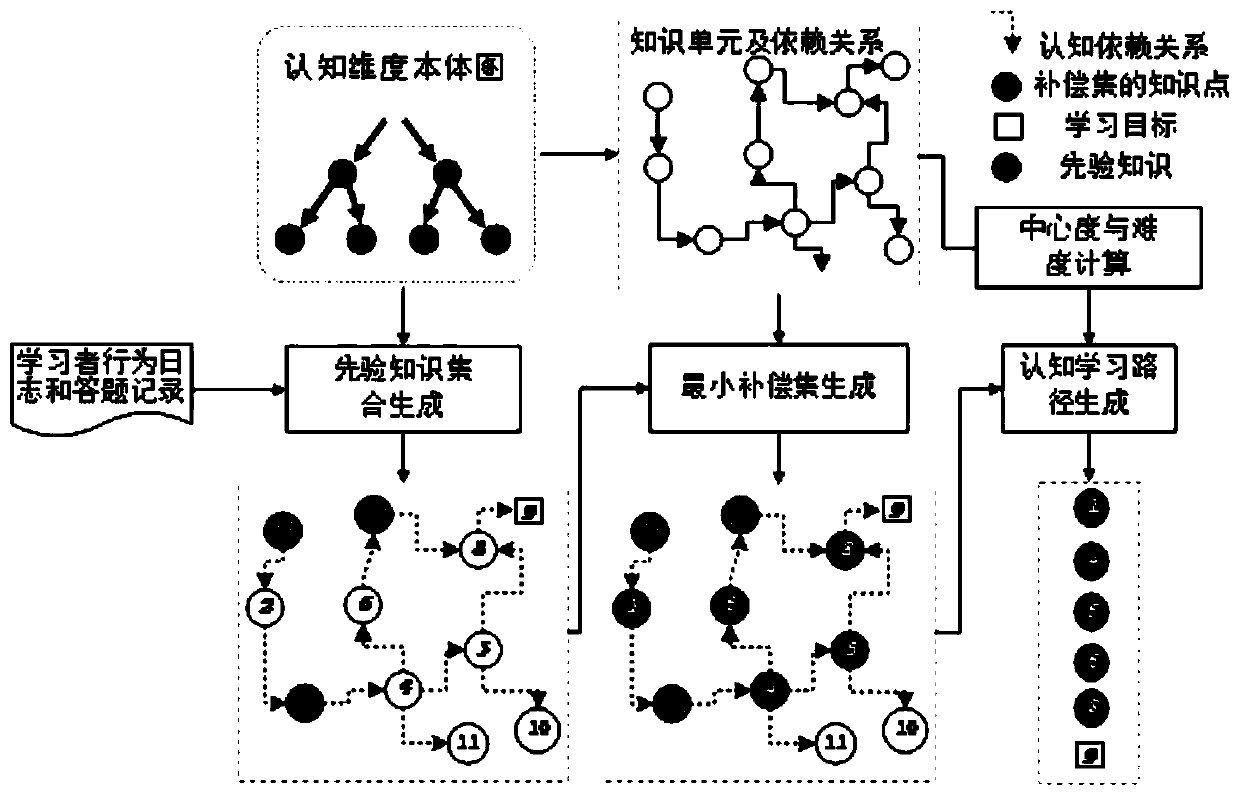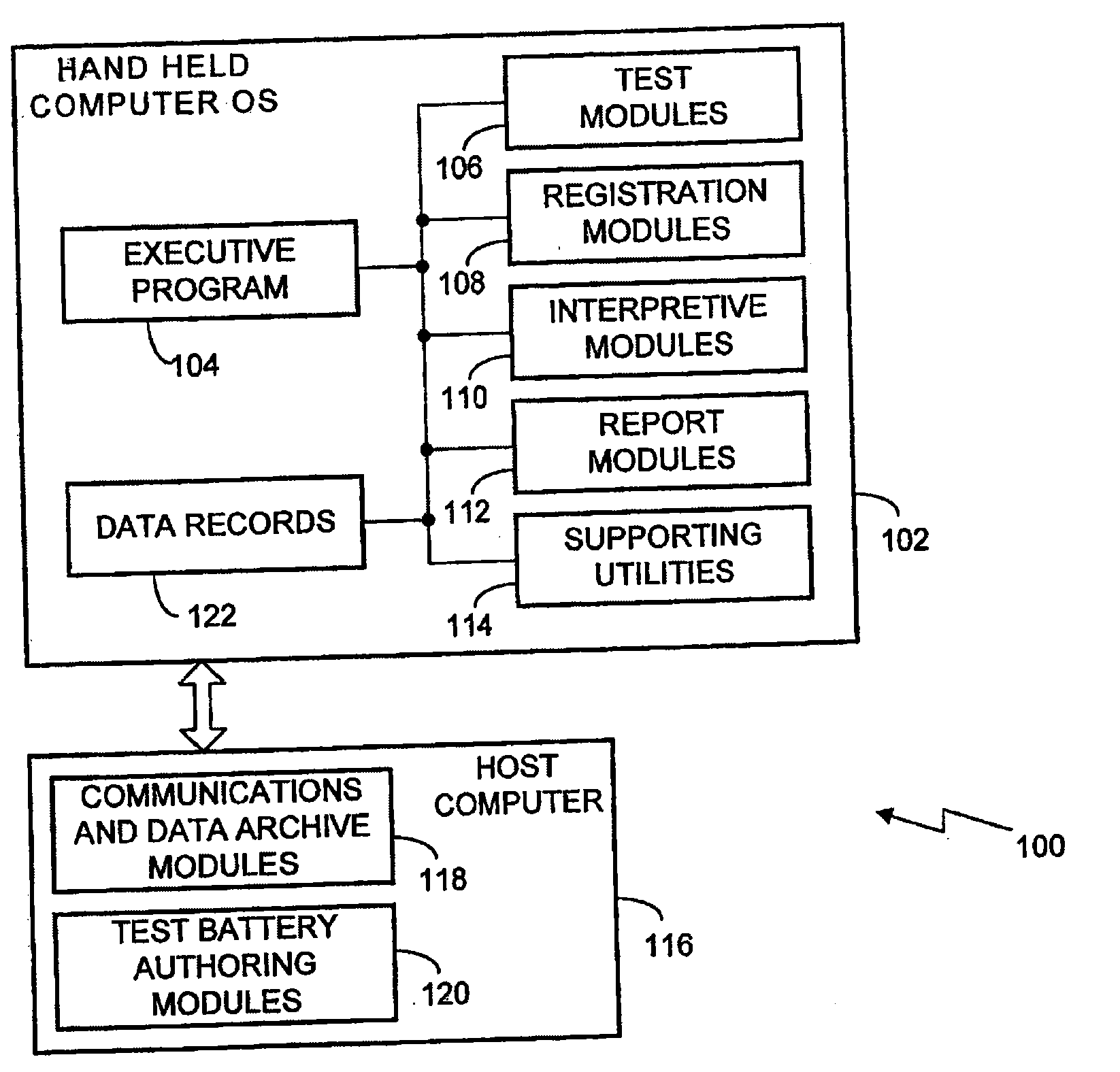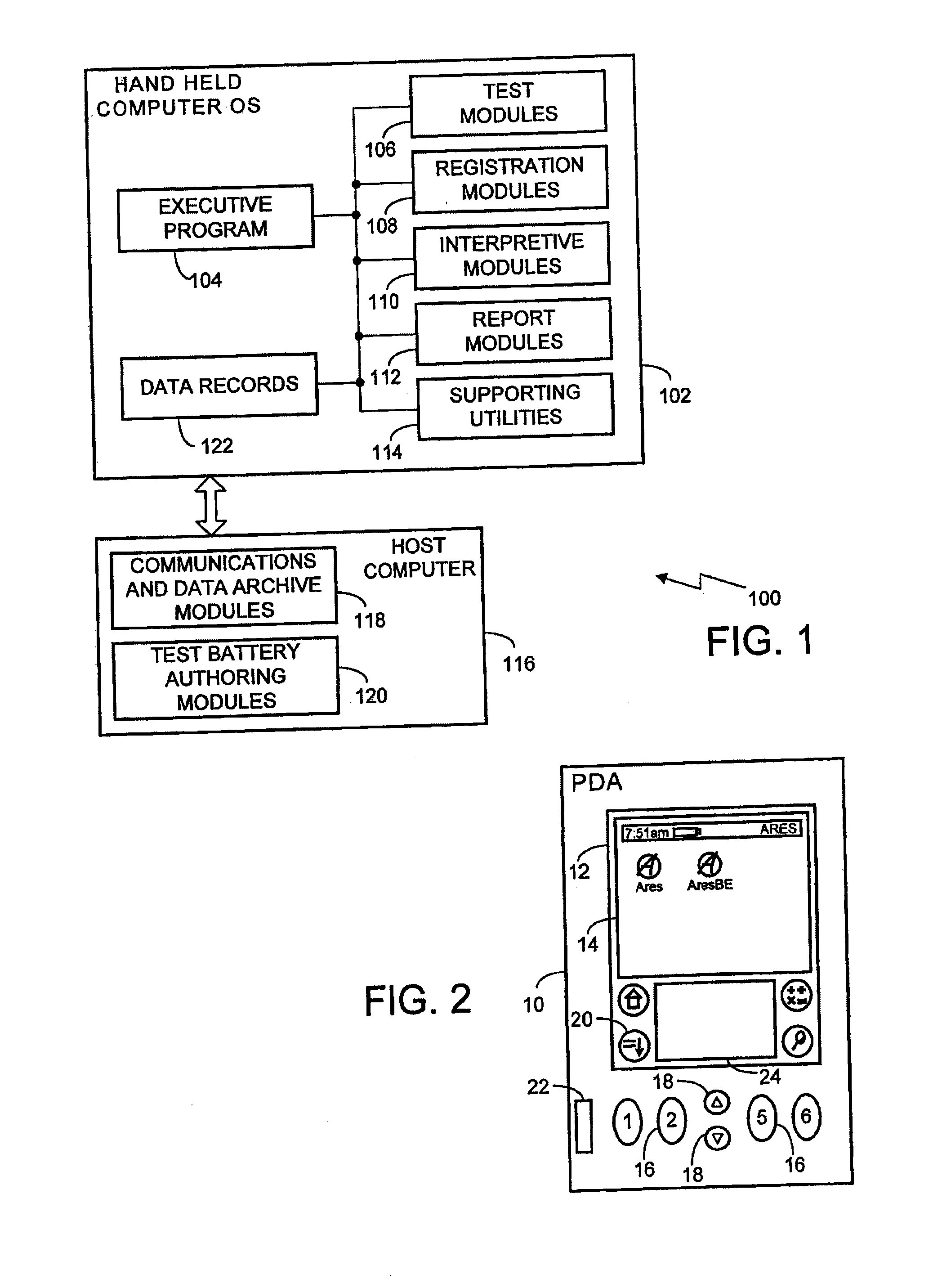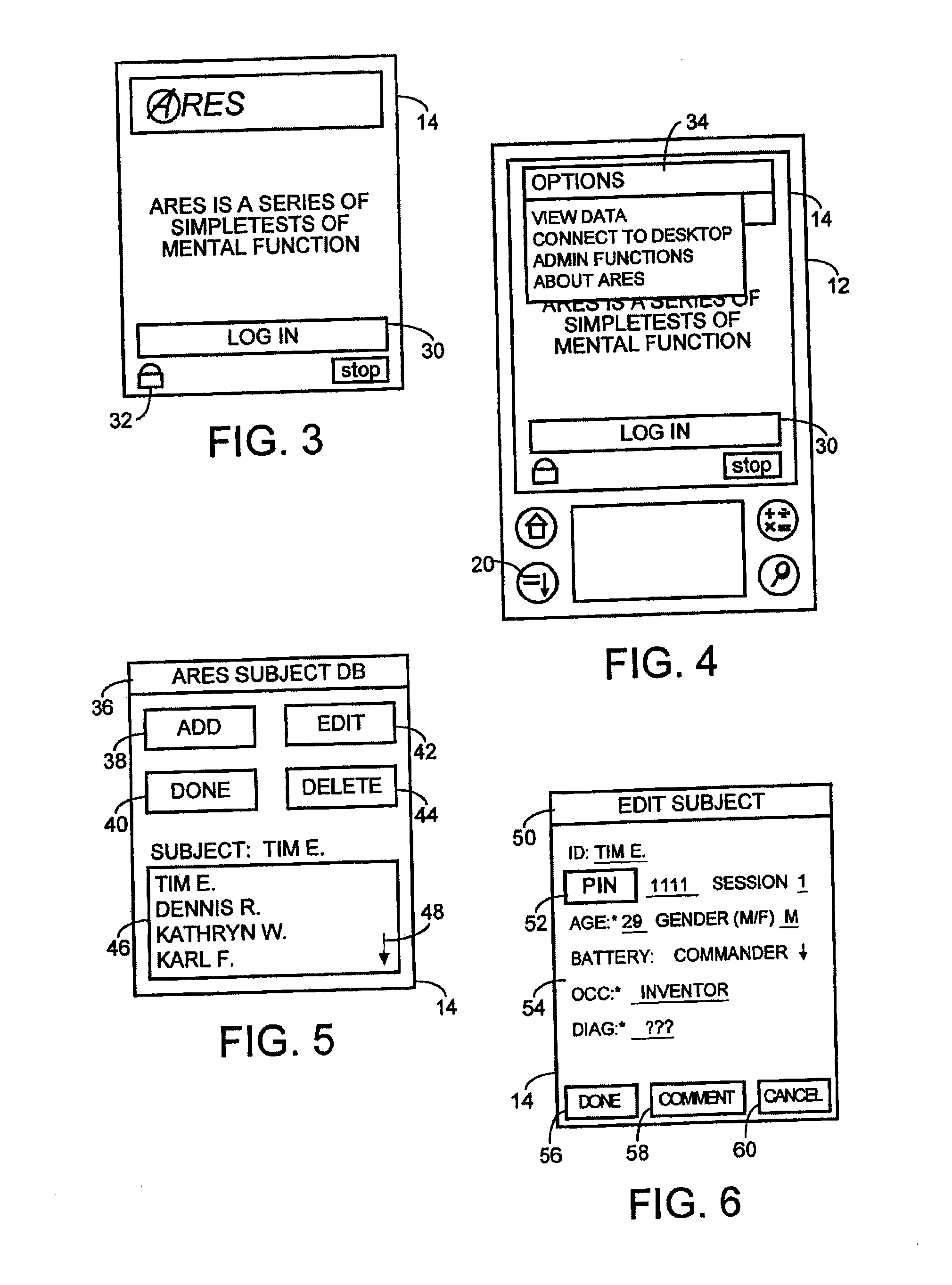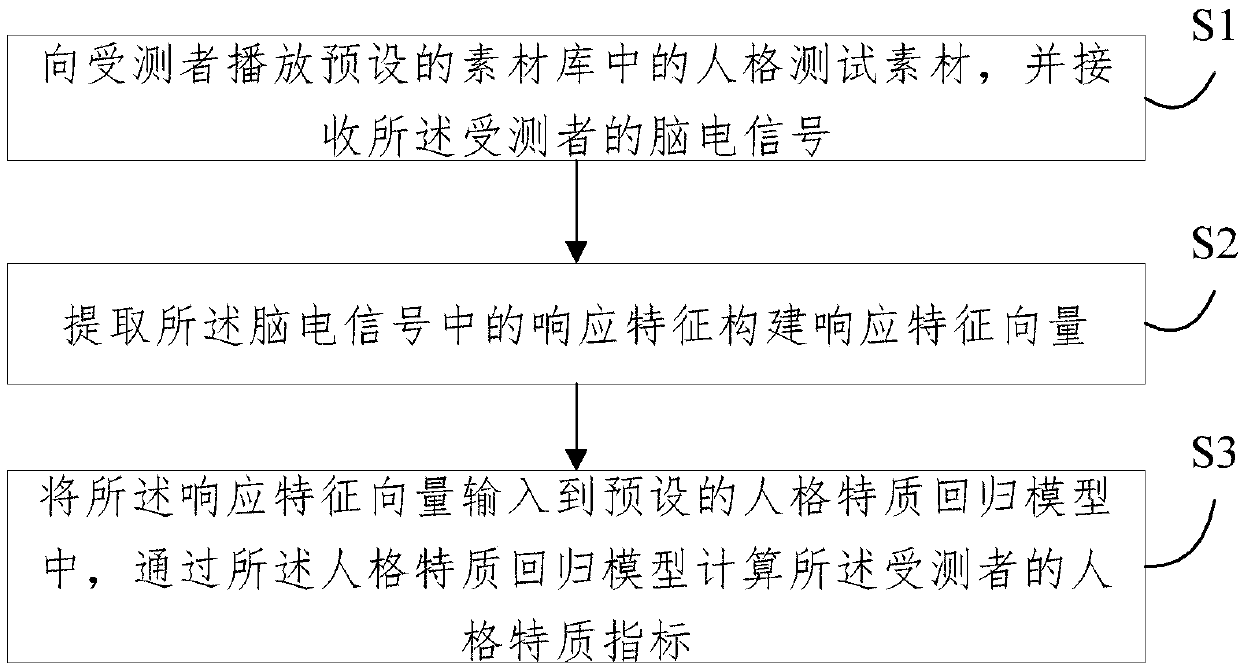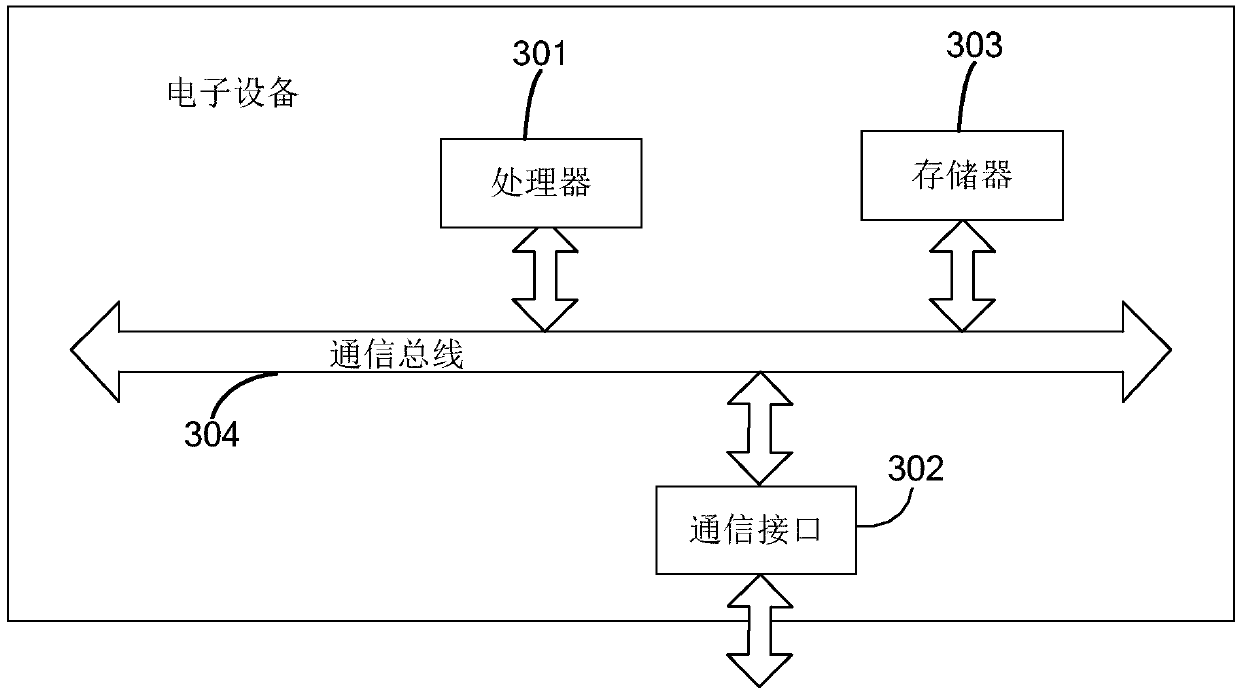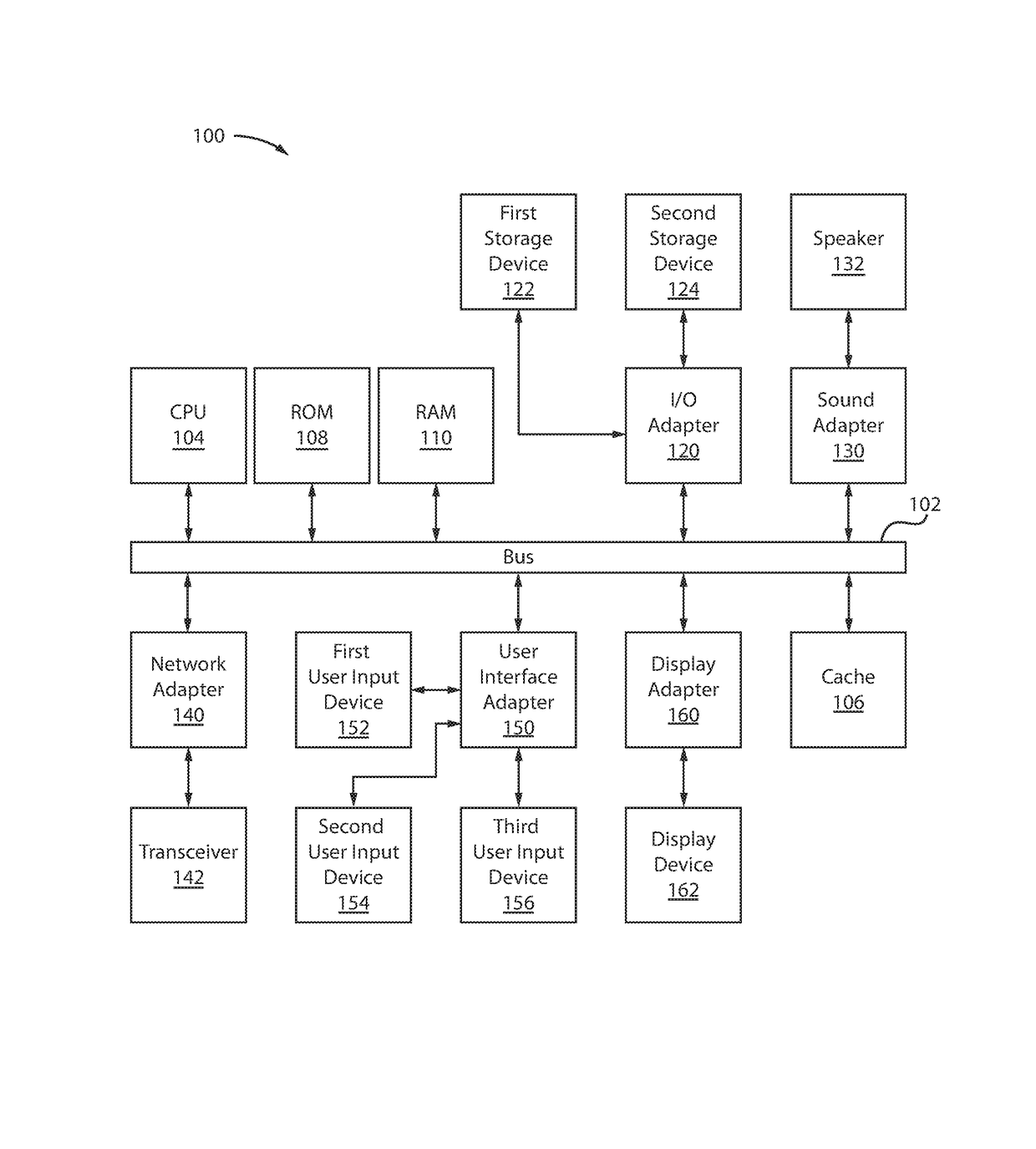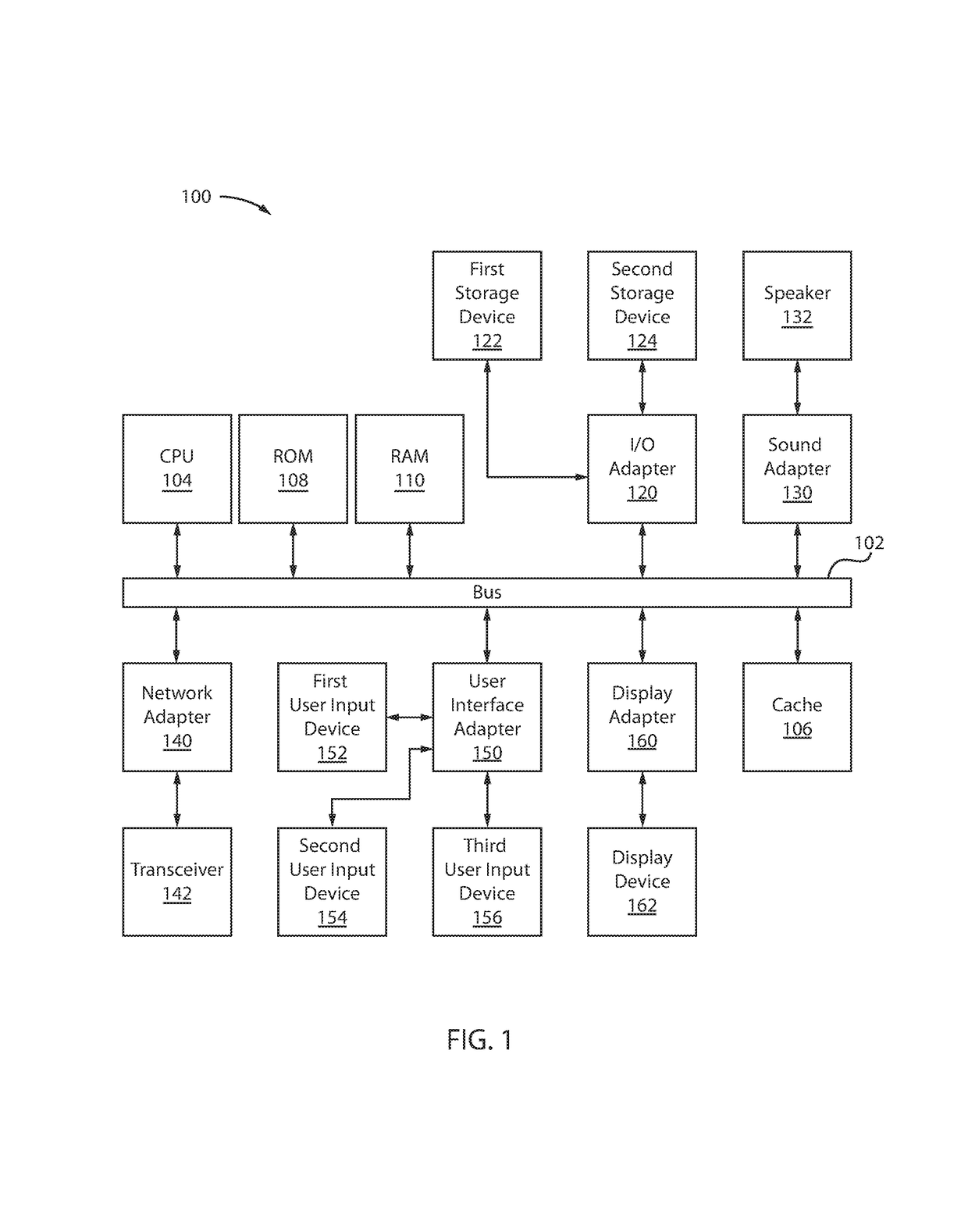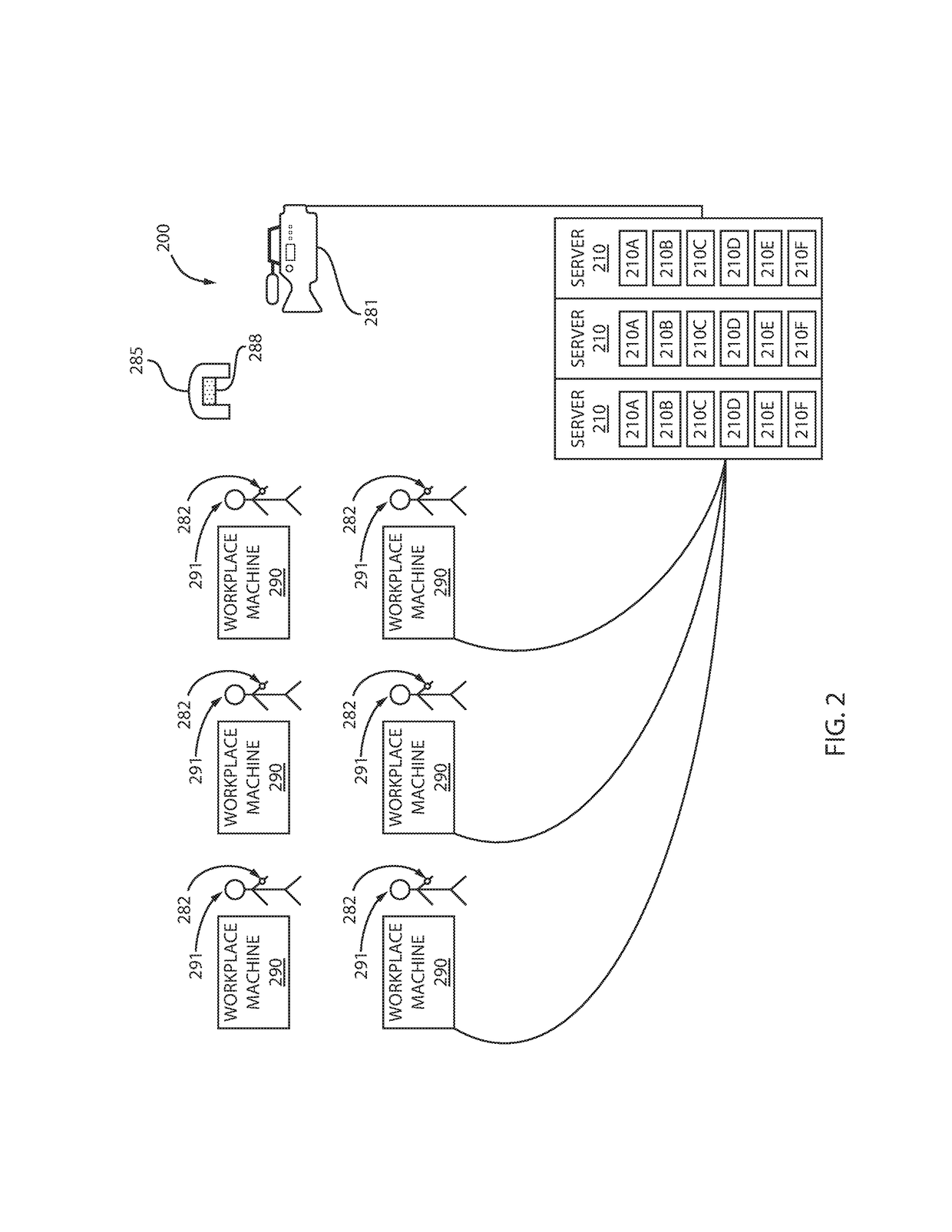Patents
Literature
97 results about "Cognitive status" patented technology
Efficacy Topic
Property
Owner
Technical Advancement
Application Domain
Technology Topic
Technology Field Word
Patent Country/Region
Patent Type
Patent Status
Application Year
Inventor
Definition of Cognitive status. Cognitive status means an individual's level of awareness with perception, reasoning, judgment, intuition, and memory.
Apparatuses and methods for neuromodulation
ActiveUS20170224990A1Enhance concurrent sensory experienceIncrease in tempo and pitchExternal electrodesArtificial respirationElectricityPower flow
Apparatuses (e.g., devices, systems), and methods for transdermal electrical stimulation (TES). Apparatuses described herein can be self-contained, lightweight, and wearable. The apparatuses and methods described herein be configured to apply an ensemble current waveform between the two or more electrodes, wherein the ensemble current waveform comprises a series of component waveforms that are sequentially applied, and wherein each component waveform is different from a component waveform immediately before it and wherein transitions between the component waveforms temporally correlates with transitions in the sensory experience. Also described are neurostimulators for application of transdermal electrical stimulation (TES) and methods of using them for comfortably inducing a cognitive effect. Also described are Methods and apparatuses for amplitude modulation of all or a portion of an ensemble waveform to modify a user's cognitive state by transdermal electrical stimulation (TES).
Owner:THYNC GLOBAL INC
System And Method For The Real-Time Evaluation Of Time-Locked Physiological Measures
In one embodiment, a method is provided for classifying cognitive activity in an individual. In the method, a candidate time interval is identified from a first type of physiological data within which cognitive processing is expected to occur for the individual. In addition, a second type of physiological data is obtained that comprises data representative of a cognitive state of the individual. Further, the data representative of a cognitive state of the individual is extracted from the second type of physiological data based on the identified candidate time interval.
Owner:DESIGN INTERACTIVE +1
Transdermal electrical stimulation devices for modifying or inducing cognitive state
InactiveUS9002458B2Increased subjective feelingImprove mental focusExternal electrodesArtificial respirationElectricityMedicine
Portable transdermal electrical stimulation (TES) applicators for modifying a subject's cognitive state. In general, the portable applicators described are specifically configured and adapted to be lightweight and may be wearable, and to deliver a high-intensity TES able to evoke or enhance a predetermined cognitive effect. These TES applicators may include a pair of electrodes and a TES control module comprising a processor, a timer and a waveform generator. TES control module is adapted to deliver a biphasic electrical stimulation signal of 10 seconds or longer between the first and second electrodes having a frequency of 400 Hz or greater, a duty cycle of greater than 10 percent, an intensity of 3 mA or greater, with a DC offset.
Owner:THYNC GLOBAL INC
Affect-sensitive intelligent tutoring system
ActiveUS20120052476A1Good conditionMinimizing frustrationElectrical appliancesFrustrationCognitive status
An Intelligent Tutoring System (ITS) system is provided that is able to identify and respond adaptively to the learner's or student's affective states (i.e., emotional states such as confusion. frustration, boredom, and flow / engagement) during a typical learning experience, in addition to adapting to the learner's cognitive states. The system comprises a new signal processing model and algorithm, as well as several non-intrusive sensing devices, and identifies and assesses affective states through dialog assessment techniques, video capture and analysis of the student's face, determination of the body posture of the student, pressure on a pressure sensitive mouse, and pressure on a pressure sensitive keyboard. By synthesizing the output from these measures, the system responds with appropriate conversational and pedagogical dialog that helps the learner regulate negative emotions in order to promote learning and engagement.
Owner:GRAESSER ARTHUR CARL +1
Cognitive state alteration system integrating multiple feedback technologies
ActiveUS20170039045A1Eliminate the effects ofNervous disorderMetabolism disorderIntegratorInformation analysis
A cognitive alteration system includes a storage unit at least to store one or more scripts, each to control a cognitive alteration process where the process occurs within at least one of: a dedicated session and a follow-up open time period and where the storage unit stores both a script per dedicated session and a script per follow-up open time period for the process; a script handler at least to run at least one script; at least one of a wearable and a non-wearable element to sense an attribute of a subject or to provide an output to the subject during one of the dedicated session and the follow-up open time period; an information analyzer at least to perform analysis of the readings of the at least one element, an integrator to integrate the analysis and a script updater to update at least one of the scripts.
Owner:PSYABLE TECH LTD
Transdermal electrical stimulation methods for modifying or inducing cognitive state
InactiveUS20150005840A1Quick transitionIncrease heightElectrotherapyArtificial respirationElectricityMental state
Methods of modifying a subject's cognitive state by applying transdermal electrical stimulation (TES). In particular, described herein are methods of applying TES using a pair of electrodes each positioned at a particular location on the skin of the subject's head, or the head and neck, to evoke a predetermined cognitive state using a TES applicator. In particular, described herein are methods of enhancing attention, alertness, or mental focus or of enhancing a calm or relaxed mental state by applying high-intensity TES across electrodes positioned on the subject's temple and either the mastoid region or on the subject's neck. The subject may control the application directly and TES may be applied by a portable, including wearable, TES applicator.
Owner:THYNC GLOBAL INC
Transdermal electrical stimulation devices for modifying or inducing cognitive state
InactiveUS20150005841A1Quick transitionIncrease heightExternal electrodesArtificial respirationElectricityComputer module
Portable transdermal electrical stimulation (TES) applicators for modifying a subject's cognitive state. In general, the portable applicators described are specifically configured and adapted to be lightweight and may be wearable, and to deliver a high-intensity TES able to evoke or enhance a predetermined cognitive effect. These TES applicators may include a pair of electrodes and a TES control module comprising a processor, a timer and a waveform generator. TES control module is adapted to deliver a biphasic electrical stimulation signal of 10 seconds or longer between the first and second electrodes having a frequency of 400 Hz or greater, a duty cycle of greater than 10 percent, an intensity of 3 mA or greater, with a DC offset.
Owner:THYNC GLOBAL INC
Real-time human collaboration monitoring and intervention
A method of and apparatus for monitoring and intervening in, in real time, a collaboration between a plurality of subjects comprising measuring indicia of physiological and cognitive states of each of the plurality of subjects, communicating the indicia to a monitoring computer system, with the monitoring computer system, comparing the indicia with one or more models of previous collaborative performance of one or more of the plurality of subjects, and with the monitoring computer system, employing the results of the comparison to communicate commands or suggestions to one or more of the plurality of subjects.
Owner:NAT TECH & ENG SOLUTIONS OF SANDIA LLC
Cognitive state evaluation for vehicle navigation
Disclosed embodiments provide cognitive state evaluation for vehicle navigation. The cognitive state evaluation is accomplished using a computer, where the computer can perform learning using a neural network such as a deep neural network (DNN) or a convolutional neural network (CNN). Images including facial data are obtained of a first occupant of a first vehicle. The images are analyzed to determine cognitive state data. Layers and weights are learned for the deep neural network. Images of a second occupant of a second vehicle are collected and analyzed to determine additional cognitive state data. The additional cognitive state data is analyzed, and the second vehicle is manipulated. A second imaging device is used to collect images of a person outside the second vehicle to determine cognitive state data. The second vehicle can be manipulated based on the cognitive state data of the person outside the vehicle.
Owner:AFFECTIVA
Augmented tutoring
An augmented tutoring system is provided that includes a simulation device, at least one sensor and a controller. The simulation device is adapted to provide a simulation that has an objective to accomplish by a student, wherein to achieve the objective a plurality of tasks must be correctly completed. The at least one sensor is adapted to monitor a cognitive state of the student while engaged with the simulation. The controller is adapted to process cognitive state information from the at least one sensor and to process student progress information relating to the completion of each of the tasks. The controller is further adapted to provide feedback to the student based at least in part on the processed cognitive state information and the processed task completion information.
Owner:HONEYWELL INT INC
Methods and apparatuses for transdermal stimulation of the outer ear
ActiveUS20170368329A1Increase alertnessRaise attentionMedical devicesSpeech recognitionElectricityCognitive status
Owner:IST LLC
Word cognitive state model-based adaptive learning system and method
ActiveCN106897950AExpansion of learning resourcesMeet learning needsData processing applicationsSpeech recognitionAdaptive learningState model
The invention relates to a word cognitive state model-based adaptive learning system and method. The system comprises a mobile terminal, a computer terminal and a server end; the system further comprises a domain knowledge and extension resource module, a cognitive objective introduction module, a cognitive state analysis module, an adaptive learning module and a background database. The method comprises the steps of domain knowledge and extension resource structuralization, cognitive objective introduction and learning activity design, word learning and breakthrough making, learner cognitive state analysis and adaptive content recommendation. The word cognitive state model-based adaptive learning system and method of the invention are applicable to students who can learn English, can analyze the interactive data of the learners, evaluate the cognitive states of the learners, provide accurate recommendations which are suitable for the cognitive states and capacities of the learners in word learning, and minimize the cognitive burden brought by vocabularies which have been already mastered by the learners or vocabularies which are excessively difficult so as to reduce learning burden and improve learning efficiency.
Owner:BEIJING NORMAL UNIVERSITY
System and Method for Improving Student Learning by Monitoring Student Cognitive State
ActiveUS20160203726A1Changing complexityComplexity rateElectroencephalographyElectrocardiographyCognitive appraisalCognitive status
A system and method for improving student learning includes learning material that is presented to a student and a device that is used to acquire physiological data from the student in real time during a learning session. A cognitive assessment algorithm determines a cognitive state of the student using the physiological data, and a learning action algorithm modifies the presentation of the learning material in response to the student's cognitive state. The learning material can include lectures, questions asked of the student or problems or activities being completed by the student. In one embodiment, the device directly measures the brain activity of the student to determine the student's cognitive state. The cognitive state of the student can include the student's cognitive load, engagement or fatigue.
Owner:QUANTUM APPLIED SCI & RES
Methods and apparatuses for amplitude-modulated ensemble waveforms for neurostimulation
ActiveUS20150328461A1Optimized for speedOptimize power usageElectrotherapyMedical devicesElectricityEngineering
Methods and apparatuses for amplitude modulation of all or a portion of an ensemble waveform to modify a user's cognitive state by transdermal electrical stimulation (TES). An ensemble current waveform may include a sequence of component biphasic current waveforms in which one or more parameters (such as frequency, current amplitude, percent duty cycle, and percent charge imbalance) vary between sequential component waveforms. These ensemble waveforms may be specifically configured to evoke a particular cognitive state when applied by TES. In particular, described herein are methods for applying amplitude modulation to all or a sub-set of the component waveforms in the ensemble waveform which may dramatically enhance the efficiency and effectiveness of the TES. Also described herein are methods and apparatuses for applying amplitude modulation to all or a portion of an ensemble waveform without truncating pulses of the component waveforms forming the ensemble waveform.
Owner:THYNC GLOBAL INC
Methods for user control of neurostimulation to modify a cognitive state
ActiveUS9399126B2Strong and reliable cognitive effectAvoid damageExternal electrodesArtificial respirationUser deviceHand held
Methods for allowing a user to control a neuromodulator to modify a cognitive state being experienced by the user. The user may select a waveform ensemble from a hand-held user device having an interface, and the user may adjust the perceived intensity of the applied waveform ensemble with the user device while the waveform ensemble is being applied. Also described are methods of managing communication between the hand-held user device (such as a smartphone or the like) and a wearable neurostimulator. Methods of displaying and visually tracking and controlling the applied waveform ensemble are also described herein.
Owner:THYNC GLOBAL INC
Methods and apparatuses for control of a wearable transdermal neurostimulator to apply ensemble waveforms
ActiveUS9393430B2Efficiency advantageRelieve painElectrotherapyMedical devicesElectricityCognitive status
Owner:THYNC GLOBAL INC
Method and apparatus for increasing therapy compliance
ActiveUS20110162649A1Improve complianceEnhanced interactionRespiratorsMedical devicesCognitive statusBreathing
Owner:FISHER & PAYKEL HEALTHCARE LTD
Methods and techniques to measure, map and correlate ocular micro-movement and ocular micro-tremor (OMT) signals with cognitive processing capabilities
InactiveUS20090198148A1Promote resultsCharacter and pattern recognitionDiagnostic recording/measuringMedicineCognition
An apparatus and method of collecting elements of and assembling various portions of ocular micro motions such as ocular micro-tremor (OMT) movements of the eye, and correlating them directly with OMT waveforms acquired from both known and unknown states of cognition and cognitive function. Comparing newly acquired waveforms from patients with undiagnosed cognitive dysfunctions, permits an individual or caregiver the ability to identify those unknown issues or cognitive states based on matching or relating statistically elements of their waveform with categories of other known cognitive processing normals and abnormals, functional and dysfunctional individuals. It also allows for measuring the effects of therapeutic agents (psychological or pharmacological) by relating them to measurable changes in cognitive function as a result of correlated changes in waveforms.
Owner:LONKY MARTIN L
Cerebrum cognitive status recognition method based on cerebral function imaging
InactiveCN102663414ATo achieve the purpose of identifying the cognitive state of the brainEasy to analyzeImage analysisCharacter and pattern recognitionFeature vectorData set
The invention discloses a cerebrum cognitive status recognition method based on cerebral function imaging, comprising the following steps of: inputting experimental data series of cerebral nuclear magnetic resonance images; preprocessing the experiment data of the cerebral nuclear magnetic resonance images; establishing a multidimensional data set which includes a cerebrum coordinate dimension, acerebrum area dimension, an experiment time sequence dimension and a cognitive status dimension; extracting features; classifying and identifying the statuses. The invention extracts feature vectors from cerebral images of cerebra knowing the task statuses to train a support vector classifier, and classify the cognitive status for the feature vectors of an unknown cerebral image using the classifier. If the unknown cerebral image belongs to some category, then the cognitive state the category belongs to is identified as the cognitive status of the unknown cerebral image, thereby achieving theaim of cerebrum cognitive status recognition. The multidimensional data set of cerebral images of the invention are used for secondary analysis, treatment and integration of the cerebral images, thereby enabling the data calculation and analysis of the cerebral images to be more convenient, faster and more visual.
Owner:SHANDONG UNIV
Methods and techniques to measure, map and correlate ocular micro-movement and ocular micro-tremor (OMT) signals with cognitive processing capabilities in ADD/ADHD individuals
InactiveUS7959578B2Character and pattern recognitionDiagnostic recording/measuringMedicineCognitive status
An apparatus and method of collecting elements of and assembling various portions of ocular micro motions such as ocular micro-tremor (OMT) movements of the eye, and correlating them directly with OMT waveforms acquired from both known and unknown states of cognition and cognitive function. Comparing newly acquired waveforms from patients with undiagnosed cognitive dysfunctions, permits an individual or caregiver the ability to identify those unknown issues or cognitive states based on matching or relating statistically elements of their waveform with categories of other known cognitive processing normals and abnormals, functional and dysfunctional individuals. It also allows for measuring the effects of therapeutic agents (psychological or pharmacological) by relating them to measurable changes in cognitive function as a result of correlated changes in waveforms.
Owner:LONKY MARTIN L
Transdermal electrical stimulation at the neck to induce neuromodulation
ActiveUS9956405B2Minimize discomfortAffects efficacyExternal electrodesSleep inducing/ending devicesElectricityCognitive status
Described herein are methods and apparatuses for the application of transdermal electrical stimulation (TES) in order to modulate a user's cognitive state to induce a state of calm or relaxation. The apparatuses described herein include neck-worn devices having electrodes (or configured to connect to electrodes, including automatically self-connecting to electrodes) adapted to couple to the midline of the back of user's neck. A neck-worn controller may be configured as a cord, band, wire, torc, necklace, loop, strap, or the like, and may be rigid or semi-rigid and may be worn at least partially around the subject's neck. The controller may controllably apply one or more waveforms to the electrodes of the electrode pad (e.g., patch) to deliver TES adapted to induce or enhance a relaxed cognitive state.
Owner:THYNC GLOBAL INC
Method and system for delivering and managing learning programs
InactiveCN108428202AInput/output for user-computer interactionMental therapiesCognitive statusPostural orientation
A system for delivering learning programmes comprising optical sensors for capturing a subject's facial expression, eye movements, point-of-gaze, and head pose during a learning session; a data repository comprising task data 5 entities; a module for estimating the subject's affective and cognitive states using the captured sensory data; and a module for selecting a task data entity for presentment to the subject after each completion of a task data entity based on a probability of the subject's understanding of the associated knowledge; wherein the probability of the subject's understanding is computed using the subject's 10 estimated affective cognitive states. The system can also be applied in neurocognitive disorder diagnosis tests. The subject's affective and cognitive states estimation based on the captured sensory data during a diagnosis test is feedback to the system to drive the course of the test, adaptively change the test materials, and influence the subject's emotions.
Owner:FIND SOLUTION ARTIFICIAL INTELLIGENCE LTD
Smart contact lens system with cognitive analysis and aid
ActiveUS20190332168A1Input/output for user-computer interactionNon-optical adjunctsCommunication interfacePhysiological movement
A smart lens system may include a hardware processor coupled to a smart contact lens, which may include a microprocessor, an image capturing sensor, and a wireless communication interface. The smart lens system may determine reading factors associated with a user with respect to the user reading content item, based on data related to the user's physiological movements captured by the smart contact lens. The reading factors may include a user's cognitive state determined at least from analyzing data representing the user's physiological movements. Responsive to determining that the user's cognitive state is above a threshold value, the smart lens system may generate an assistive action associated with the content item and transmit a signal to at least one assistive device to perform the assistive action. The assistive device performs the assistive action responsive to receiving the signal.
Owner:IBM CORP
Brain cognitive state judgment method based on non-negative tensor projection operator decomposition algorithm
InactiveCN103425999APreserve spatial structure informationStrong orthogonalityCharacter and pattern recognitionCompositional dataCognitive status
Disclosed is a brain cognitive state judgment method based on a non-negative tensor projection operator decomposition algorithm. The method includes the steps of S1, collecting brain functional magnetic resonance images under different cognitive tasks to form a data sample set, carrying out preprocessing, and forming a sample set according to tensor modes, wherein the sample set is divided into a training set and a testing set according to the cognitive tasks, and the training set comprises functional magnetic resonance data in similar proportion of different cognitive states, S2, computing non-negative tensor projection operator decomposition of the training sample set to solve out a non-negative feature transformation matrix, projecting training samples to a non-negative tensor feature sub-space for dimensionality reduction to obtain a non-negative feature tensor set of the training set, S3, using lower-dimension non-negative feature tensor data after dimensionality reduction as input of an STM for training to solve out the optimum projection direction of the STM, and S4, projecting brain functional magnetic resonance data of tested samples to the non-negative tensor feature sub-space obtained through training to obtain non-negative feature tensors of the brain functional magnetic resonance data in the sub-space, and inputting the non-negative feature tensors of the tested samples to the trained STM to judge cognitive state types of the non-negative feature tensors.
Owner:XIDIAN UNIV
Virtual reality interaction method and device based on eye movement tracking
ActiveCN110502100AImprove comfortInput/output for user-computer interactionDiagnostic signal processingInteraction deviceCognitive status
The invention relates to a virtual reality interaction method and device based on eye movement tracking, being characterized in that eyeball movement is tracked in real time by measuring the positionsof visual attention focuses of eyes; and an infrared light source and an infrared camera are adopted for collecting eye movement information, and the positions of pupils are measured by tracking andcalculating the center positions of the pupils in an eye image, and the movement track of the pupils is established. Furthermore, the virtual reality interaction device based on eye movement trackingcan monitor the physiological or cognitive state and emotional changes, such as frightening and stimulation, of a user in real time by monitoring the changes of pupils, and can monitor eye movement tracks and the changes, such as the corresponding degree of dilation or reduction, of the pupils and feed the changes back to the main control module.
Owner:ACADEMY OF MILITARY MEDICAL SCI
System and Method for Human Operator and Machine Integration
ActiveUS20180189681A1Diagnostics using spectroscopyEvaluation of blood vesselsControl engineeringCognitive status
Aspects of the present disclosure are directed to devices, systems, and methods for optimized integration of a human operator with a machine for safe and efficient operation. Accordingly, aspects of the present disclosure are directed to systems, methods, and devices which evaluate and determine a cognitive state of an operator, and allocate tasks to either the machine and / or operator based on the cognitive state of the operator, among other factors.
Owner:NASA
Learning cognitive path generation method based on cognitive map
PendingCN110543572AAccurate modelingAccurate analysisData processing applicationsSpecial data processing applicationsPersonalized learningLearning unit
The invention discloses a learning cognitive path generation method based on a cognitive map. A cognitive learning path is recommended to a learner in combination with the cognitive dimension ontologyand the course knowledge graph; firstly, a cognitive map modeling and constructing method is provided; on the basis, for a learner and a target learning unit are given, firstly, the current cognitivestate of a learner is recognized according to a learning log; a cognitive learning path of the target knowledge unit is generated by combining the cognitive ability of the target knowledge unit; andrecommendation and generation of cognitive paths in personalized learning can be realized, wherein a cognitive dimension ontology diagram is designed, it is guaranteed that learners can analyze and diagnose the learning situation of each knowledge unit in a finer-grained mode, a learning target cognition path is generated based on the course knowledge graph, and the algorithm integrating the cognition dimension, the learning record and the learner cognition attribute can better provide more accurate personalized learning services for the learners.
Owner:杭州奇迹在线科技有限公司
Neurocognitive and psychomotor performance assessment and rehabilitation system
InactiveUS20120021391A1Cost efficientHighly attractive test platformComputer-assisted medical data acquisitionMedical automated diagnosisTest batteryFile system
Owner:ELSMORE TIMOTHY F +4
Personality assessment method and system based on neural response
ActiveCN109567830AAccurate assessmentAvoid questions that are influenced by the subject's subjective factorsDiagnostic signal processingSensorsTime rangePattern recognition
The embodiment of the invention provides a personality assessment method and system based on neural response. The personality assessment method comprises the steps that personality test materials in apreset material library are played to a tester, and the electroencephalogram signals of the tester are received; the response characteristic in the electroencephalogram signals is extracted to establish a response characteristic vector; and the response characteristic vector is input into a preset personality characteristic regression model, and the personality characteristic index of the testeris calculated through the personality characteristic regression model. The response characteristic is the average value of personality related electroencephalogram components of the tester within a preset time range after the tester watches the preset personality test materials. According to the personality assessment method, the personality characteristic related cognitive state of the tester isinduced through specific materials, and the electroencephalogram signals in the process are recorded, so that the personality characteristics of the tester are judged according to the electroencephalogram signals, and the personality characteristics can be assessed more accurately and truly based on objective electroencephalogram data.
Owner:TSINGHUA UNIV
System and method for wearable indication of personal risk within a workplace
Described herein is a method for alerting of personal risk in the workplace through a wearable indication signifying a risk condition that includes generating a set of workplace predictors of risk relating to accidents, injury, and industrial hygiene, based on at least one worker state that includes at least one of a physical state, a cognitive state, and an emotional state, and alerting a worker endangered by a predicted elevated risk to the existence of the predicted elevated risk by sending a perceivable alert to the worker. A system for alerting of personal workplace risk is also described.
Owner:IBM CORP
Features
- R&D
- Intellectual Property
- Life Sciences
- Materials
- Tech Scout
Why Patsnap Eureka
- Unparalleled Data Quality
- Higher Quality Content
- 60% Fewer Hallucinations
Social media
Patsnap Eureka Blog
Learn More Browse by: Latest US Patents, China's latest patents, Technical Efficacy Thesaurus, Application Domain, Technology Topic, Popular Technical Reports.
© 2025 PatSnap. All rights reserved.Legal|Privacy policy|Modern Slavery Act Transparency Statement|Sitemap|About US| Contact US: help@patsnap.com
